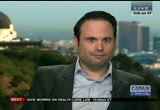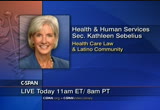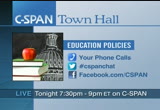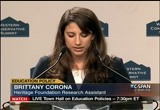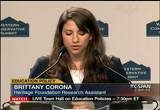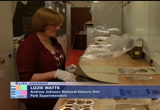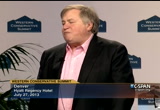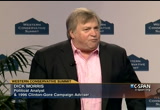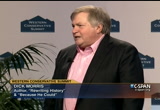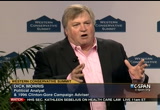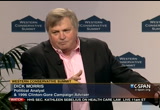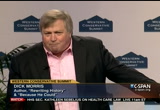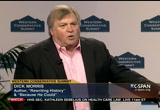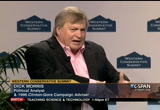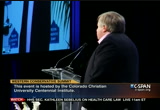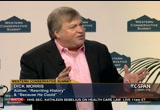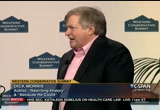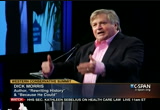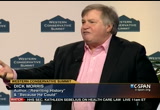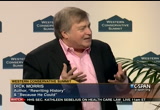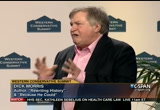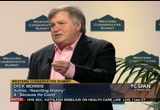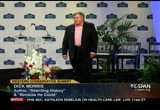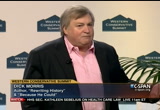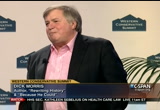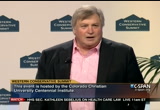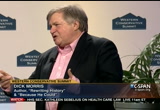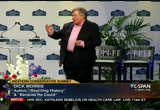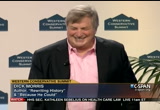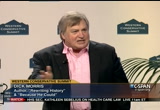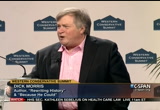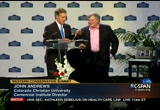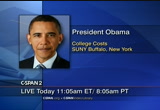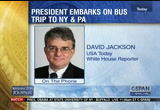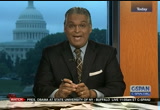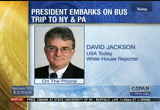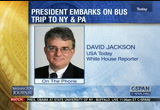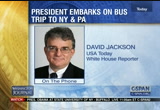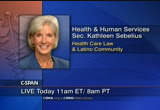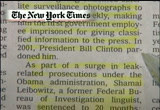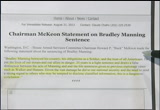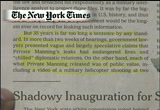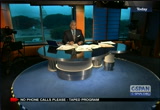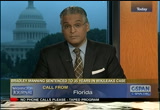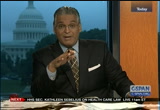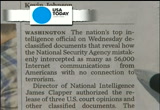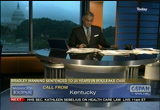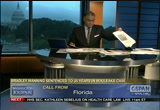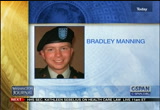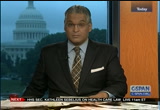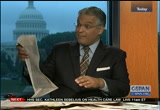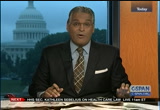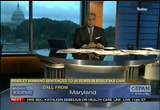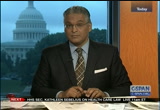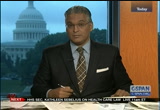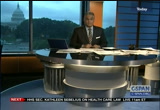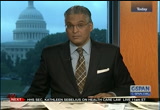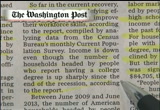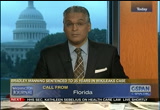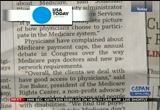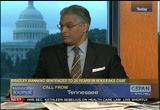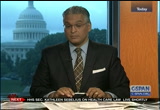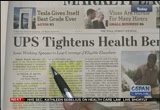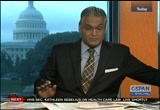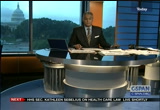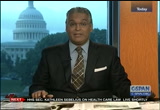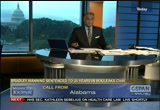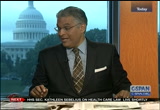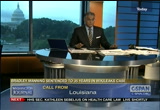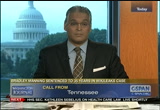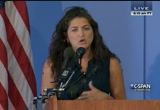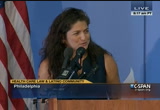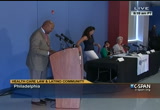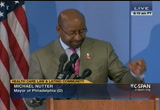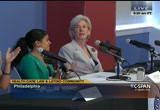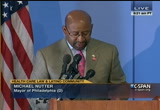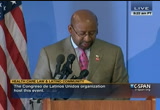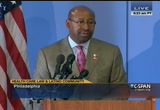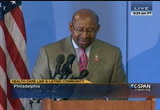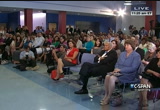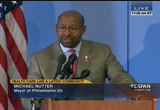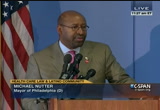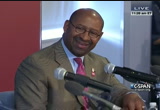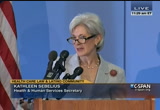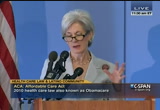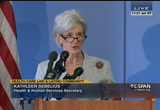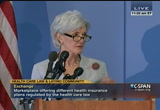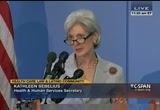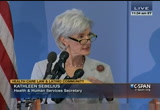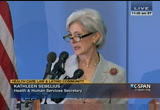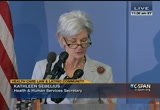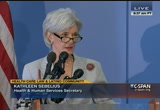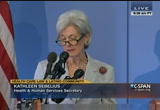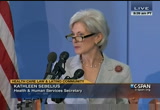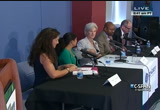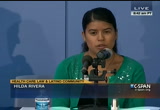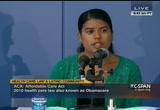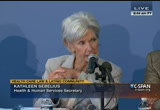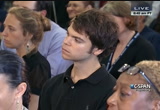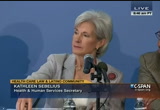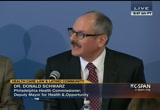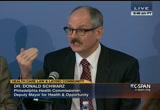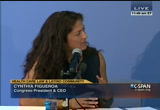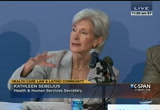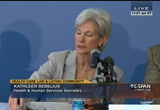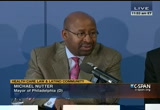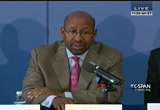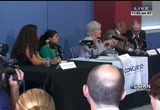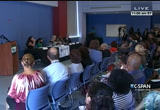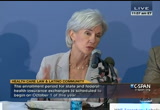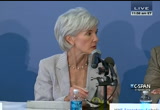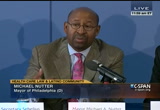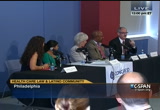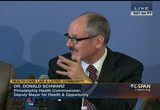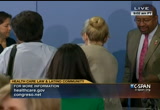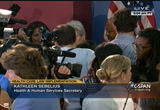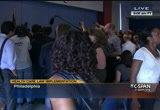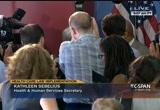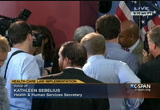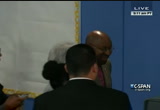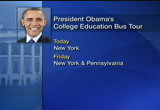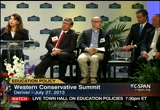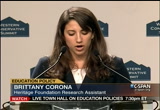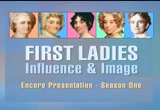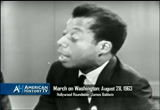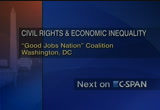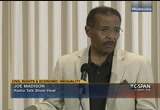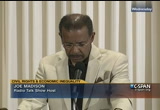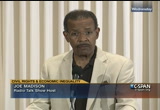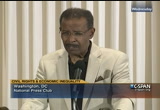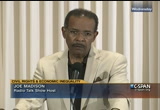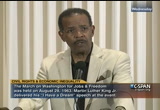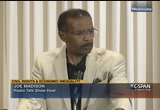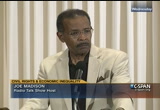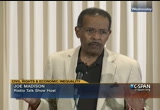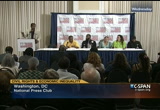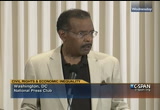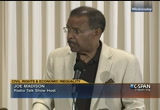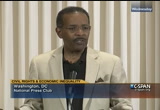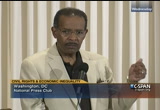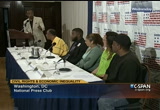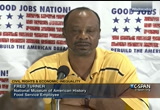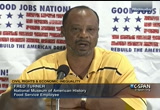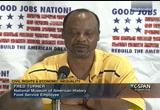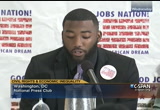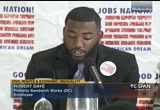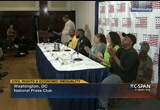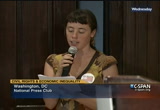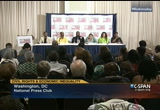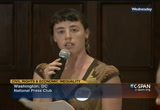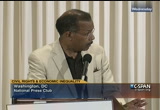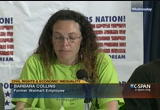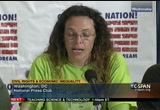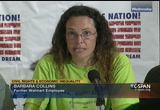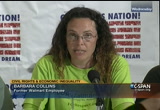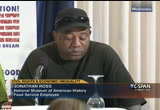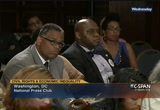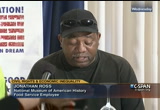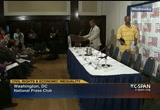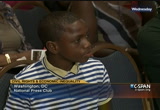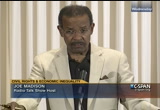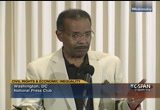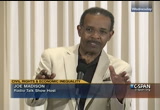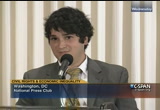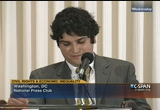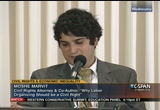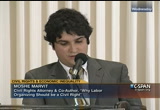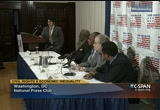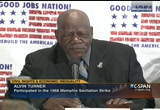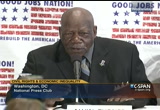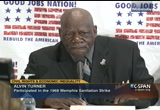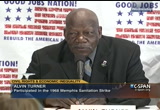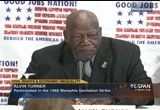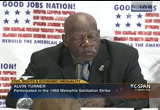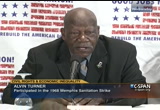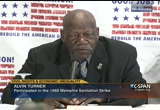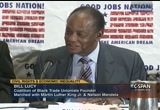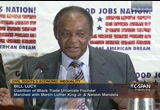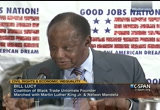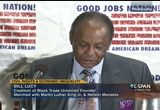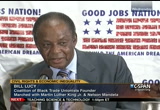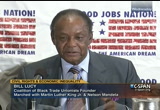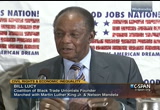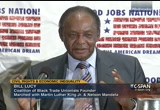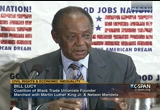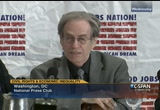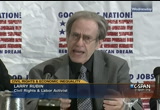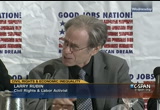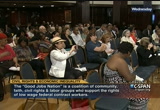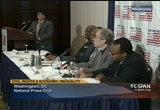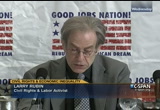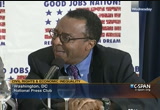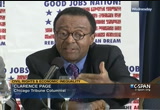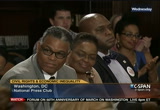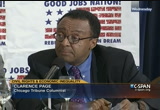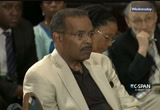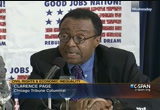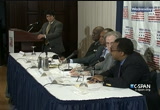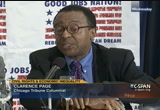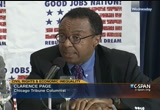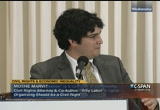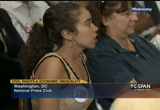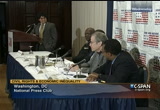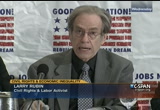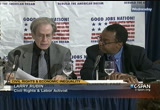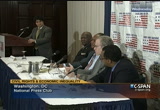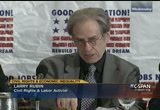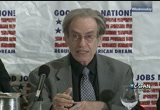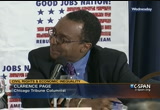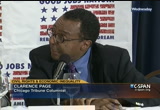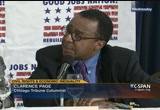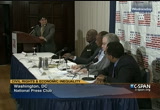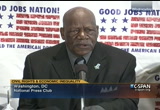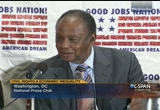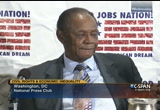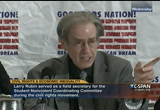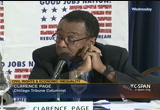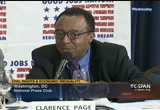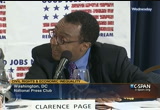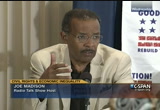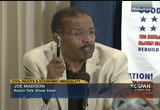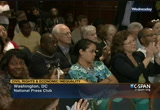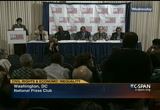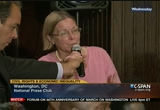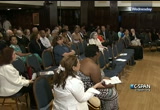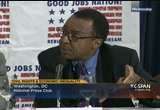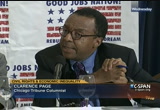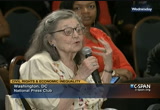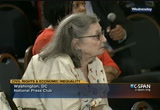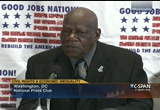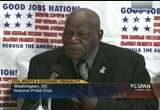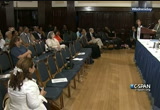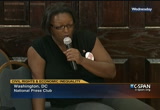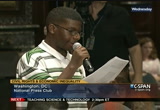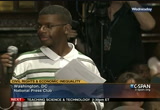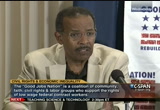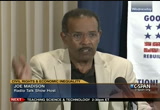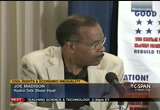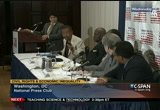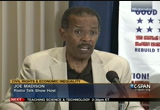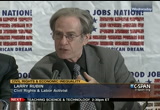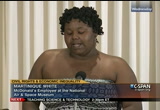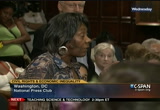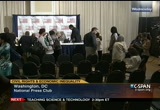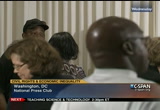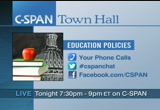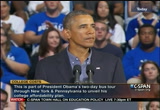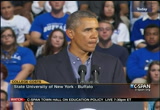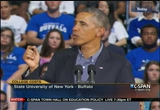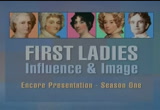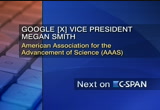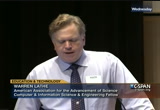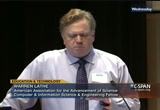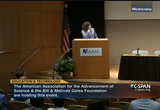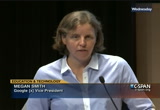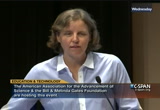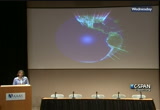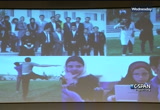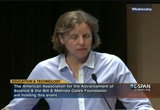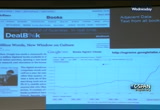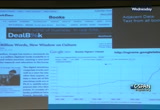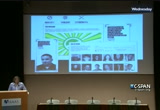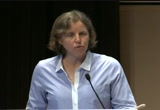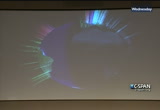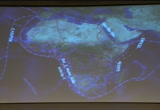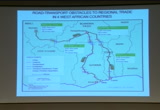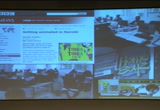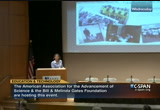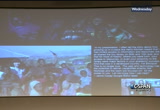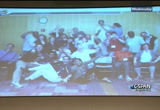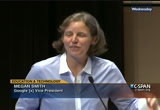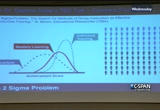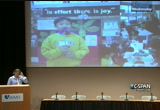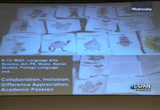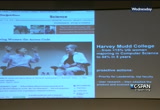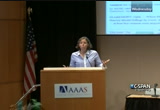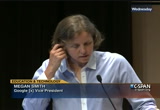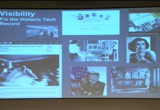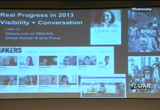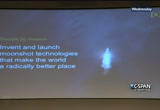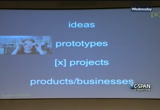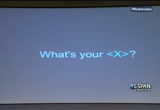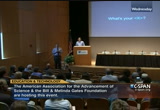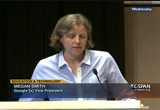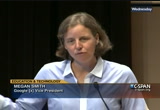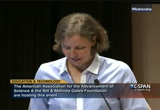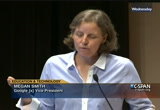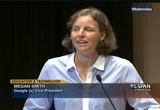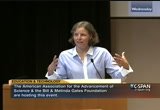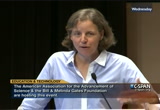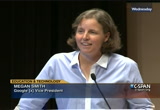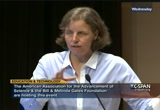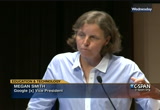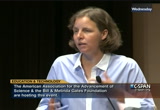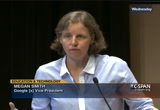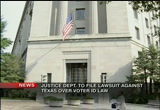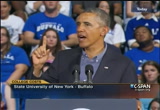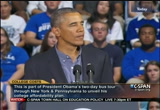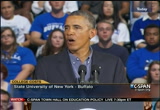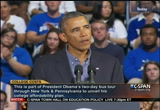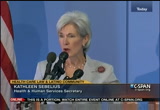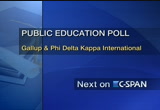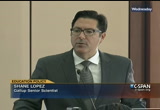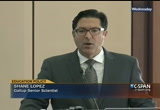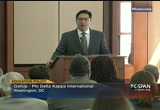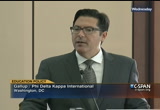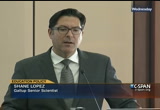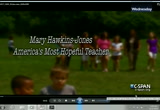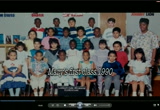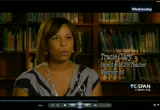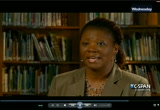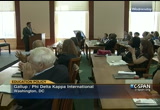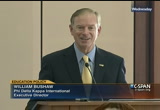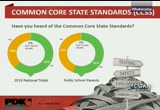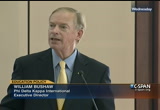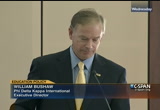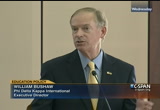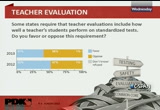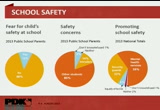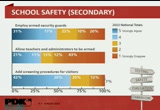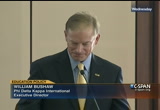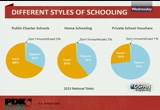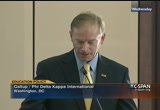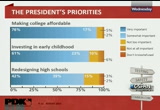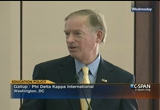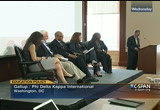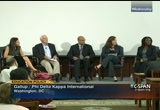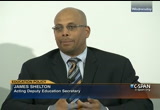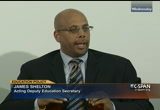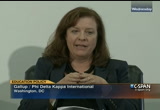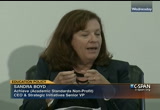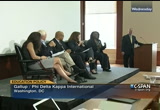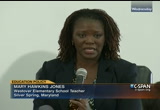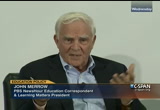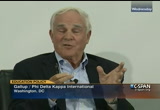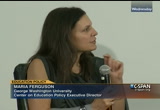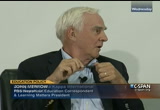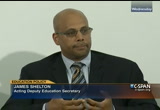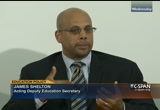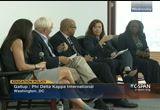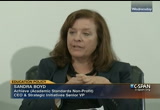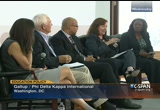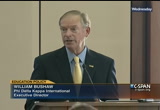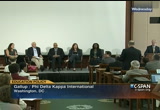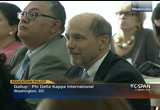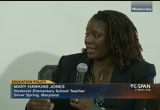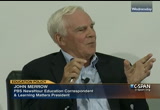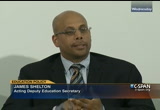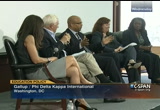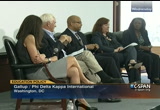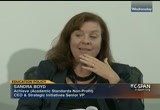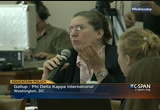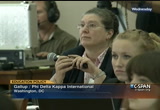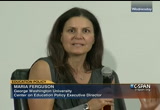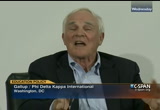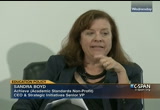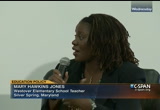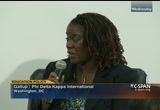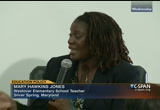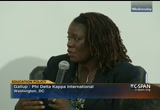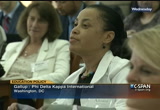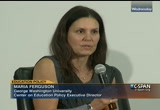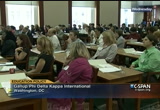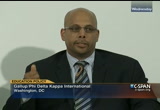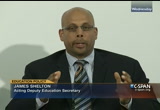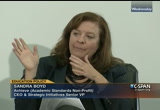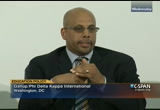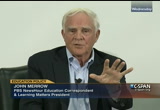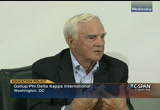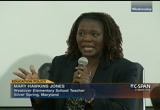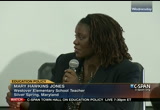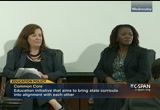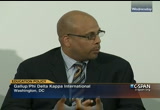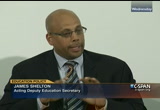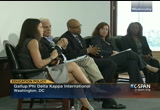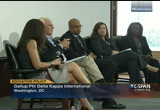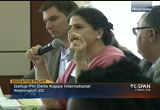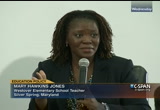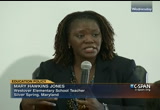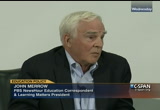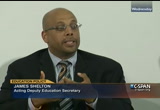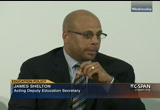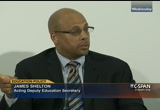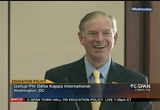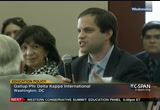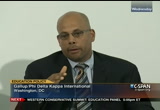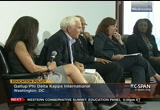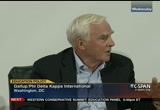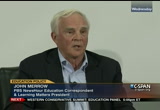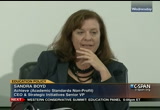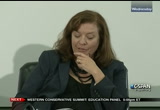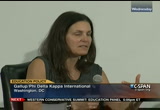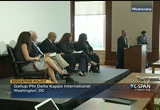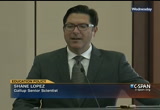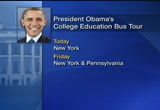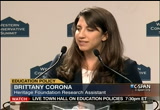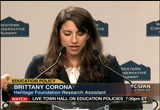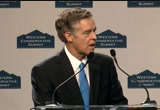tv U.S. House of Representatives CSPAN August 22, 2013 10:00am-5:01pm EDT
10:00 am
whether that production is sufficient. with thec ambinder national defence one, writing about the national security agency. thank you for your time. guest: my pleasure. >> health care coming up this morning here on c-span. in about an hour, our programming kicks up with the health and human services secretary kathleen sibelius.
10:01 am
this is being held in philadelphia. it will be live at 11 a.m. eastern time. president obama on his way to upstate new york this morning to start a two day bus tour. he will be in new york and northeastern pennsylvania. he is talking about education. some of the news coming out of this event says that the president is going to propose a new system for rating colleges. there is a reaction coming in negatively from academia. the speech will happen at 11:00 -buffalo.ime at suny it will be on our companion network c-span 2. education will be the topic of today's town hall meeting peter and we will look at the status of primary education. that is at 7:30 p.m. eastern tonight. here is a brief look at our .rogramming
10:02 am
>> 237 years after our finding -- after our founding, we have a fork in the road. we have educational freedom in the form of school choice. on the other side, we have the greatest push from washington in common core stations -- standards. milton friedman was the father of the school choice movement. the school choice movement was under the idea that educational opportunity, giving parents the ability to move their children out of the zip code confined areas would allow competition and allow greater opportunity. we have seen this and vouchers, tax credits, and education saving a house -- education savings accounts. the biggest threat that has now hit us, common core, is a washington leviathan. the idea that spending more money would equal more education out comes.
10:03 am
we have not. the $4.3 billion in federal incentives for no child left behind push by the administration are not likely to induce any kind of further educational outcome. the threat to school choice is also at stake. we see sat and azt standards being conformed to the common core. the common core national .tandard a few results just came out, the price had over the next seven --rs for common core outline common core outline the states. what does the common core contain? math standards that are poorly see -- poorly sequence. english see -- english standards that are in little of informational texts. america is seeing two paths. choice or centralized education by the common core national
10:04 am
standards. we have a choice to make. are we going to be a self- governing society or are a -- or society governed by despotism. a portion of one of the many education related events during c-span cost -- c-span's town hall program. we invite you to join the conversation. it starts tonight, 7:30 p.m. eastern time >> tonight on "first ladies." sofrances cleveland is popular. people are imitating her hairstyle. of her for piece themselves. we have always hurt as if we if we owned the first lady peered pictures of the first lady lady became extremely popular. you could purchase your own
10:05 am
picture to have in your home. she is used in campaigns. we also have ms. cleveland running for first lady. >> the encore presentation of "first ladies" continues tonight at 9:00 eastern leading up to our live event at 11:00 this morning with the help secretary, we will hear about health care from vic morris, the former linton white house adviser. he speaks for about 25 minutes at the western conservative summit. >> i am here for my victory lap. i promised we would come back after we defeated obama, and here i am.
10:06 am
fortunately, this session is entitled, lessons from 12 and what we should take into the future. my lesson from 12 is to not make predictions. i will spend two minutes on that part of it. when i made the predictions, i was right. all of the polls had romney ahead before sandy. cnn had him ahead, gallup had him ahead, cbs had him ahead. what happened, i believe, in the short term, was sandy. 15% of all voters made up their minds in the last 72 hours before the polls opened. they broke 3 to 1 in favor of citing his work in hurricane sandy. thank you, governor christie.
10:07 am
the seeds of this defeat were planted back in the spring of 2012. i think this is the lesson that we have to take away from it. republicans did not answer the attacks that were made on mitt romney. i once was in a senate race here in colorado. we lost with a very good candidate because we did not answer the attacks. always, always, answer.bill clinton and i had a role -- a rule --never sleep under the roof with an unanswered negative ad. when obama unloaded on romney in april and may and june with the bain capital negatives, they
10:08 am
struck very deeply. ads.s hate negative but in the absence of other information, they have to take it at face value. the campaign refused to answer that charge. part of it was they got themselves mixed up and answer the charges about outsourcing and about his record as governor of massachusetts. neither of those were the central thrust. bain capital went to the core of who romney is. they took the issue of the economy and jobs and rebutted it. not that obama was going to create jobs but that romney would create jobs, but not for you. they took that issue away from romney. why didn't they answer? the republican consulting community does not believe in answering negative ads.
10:09 am
they believe that is like a turtle going over on its back. surrendering the momentum. that is wrong. we lost four senate seats over the last two cycles because of that doctrinal problem. the consultants do not understand that you have to answer the negative in order to go ahead and throw your own negative and your own positive. those were incredible answers. i begged them to use it. united steel was being put out romney went in, he said, instead of an old blast furnace, why not put in a electric car technology that would produce the steel for less than half the price. these big ingots take specialties that can be used in high-tech industries. they got the money together,
10:10 am
they converted, and they are the fifth largest steel company in employees.0 the average pay was $85,000 a year. it never made it to television. i believe we lost the election in that moment. there were other, institutional reasons why we did not do it. we have to understand those and make sure it does not happen again. the romney campaign was out of money because they spent it all in the primary. they had a lot of money earmarked for the general election and they could not spend it until after the republican convention. all of the money could not be spent except for a portion of it on political communication. they've ran negative issue ads against obama tom a -- against obama, but
10:11 am
they never felt able to answer the bain capital for fear of the tax exempt status. i kept telling them the irs would cut you slack.but those accountants did not believe me. let's make sure we don't make the same mistake again because we can't afford to. i believe that one of the key things before us right now is that we have got to flip the latino vote from going against us to what they almost did in 2004, to go for us.-- to vote for russ -- to vote for us. lost and carry the latinos by only 10 points. obama carried them by 60 points. the distance between those was the immigration bill of 2005. when we killed that bill, we guaranteed a democratic congress in 2006 and helped guarantee an obama victory in 2008. we must not make that same mistake again.
10:12 am
there are two crucial pieces of i have run the last two successful presidential races in mexico. the mexican voters in the united states are conservative. they are pro-life, against same- sex marriage. they abhor debt. i am afraid the democrats are replicating the policies of the leaders we used to have in latin handouts in return for votes financed by debt. that ruined my country and i came here and i don't want to see it ruin this country. 63% agreed with that. 48% strongly agreed with that. these voters will be republican voters in the very near future as long as we don't drive them away. it is crucial that we reach out to them by passing some form of
10:13 am
immigration reform. i believe the bill is exactly what we should pass. we will reform immigration if you seal the border. we are not going to create this glittering opportunity and get a new class of illegal immigrants waiting for their turn to be legalized. [applause] it doesn't mean just best efforts or appropriating money. 90% of immigration has to be cut off before the legalization process can begin. latinos support that. the poll showed 57% support i was just talking to ted cruz, in texas it is 70% that of support -- that supports that
10:14 am
approach. they see no problem with putting it first. i think that what has to happen is the house has to pass the bill. the only way you're going to get this administration to enforce the immigration law and seal the border is you will not get immigration reform unless you do obama is not going to do it. if you hold reform hostage, he his feett.if he drags on it, his own latino base is going to force him to do it. as a party, we need to take the bold step of passing the cornyn bill. the republicans in the house will probably do that but they are scared to death when it gets to conference committee, the senate bill says
10:15 am
legalize now and worry about border security later, just spend the money now. and the cornyn bill says youhave to seal up tight before legalization begins, we we need toilled. understand the political dynamics that are at work. the latinos that the democrats rely upon will not accept the the anglos in democratic districts will not except going slow on border security. they are both going to say that we have a perfectly good path here in the house. because wenizing us
10:16 am
want the border security. latinos want the border security in order to get legal immigration. we are willing to support that. i believe the democrats in conference will not be able to sustain that opposition. that is the case i will be making over the next few weeks. when we look at the macro picture of how we defeat the democratic party and how we retake the senate, we need to let the consequences of obama's policies happen. we need to get out of the way and let every bad thing that will happen to the united states because of what barack obama has already done happen. and then when the country is totally fed up with him, totally sick of it, when young people understand they have to pay a fine if they don't get insurance they don't need and don't want,
10:17 am
they have to spend 10% of their income on it before they get it done.-- before they get a dime of subsidy. if the old people understand that they will not be able to get the medical care that they need. if all of us understand the premiums are going to double and we actually see them double, we understand the flow of innovation in medical devices being attenuated because of the taxes imposed upon them, that full-time employees are being fired and replaced with part- time employees to avoid the mandate of obama care, job creation among small businesses is cratering because they don't want to have to pay for health insurance. when we look at that, everybody is going to understand what is wrong with obama care. i believe it would be a serious mistake for us to insert
10:18 am
ourselves in between obama care and the american people by defunding it, by shutting the government down. because if we did that, it would become the story. and obama could go around talking about how important it is to cover the uninsured and all this nonsense that accompanied his rhetoric when he first passed the program. nobody will pay attention to the problems implementing obamacare. but if we don't get in the way and let the president screw this up on his own, people are going to understand all over the country, how flawed and terrible this program is, and the mandate for its repeal will resonate with heavy republican victories in 2014. and then we really will be able to repeal it because the country will have gotten so sick of this legislation. the other thing i think is going
10:19 am
to happen is that this economy cannot last going on as it is right now. it simply cannot continue. i believe we are weeks and perhaps months away from a serious global crash. one of the major economists i have been in touch with that was a major economic advisor in the 90's believes that by the end of the year, the dow will be down by 20%. this whole facade of recovery, and that is all it is is based on an upticking stock market. the reason it is going up is that the fed is printing money at the rate of $85 billion a month and it is shoveling that money with zero interest into all the big banks and all the big brokerage houses.
10:20 am
it is not getting into the mainstream economy. those banks are not lending that money.there is no job creation going on because of that. it is kind of like foreign aid. we give dictators all this money because we are idealistic and want to help people but it never goes to them. it goes right to the bank accounts of these foreign dictators. this is going into the pocket of the brokerage house executives making obscene amounts of money and the money is not flowing to the rest of the economy here it if all they did was make a lot of money, i would not care. the problem is that they gamble it, they take the money and put it in the stock market, the derivatives market. the markets become completely unstable. it creates a boom in the stock market going higher.
10:21 am
at some point soon, they will take the money out and the whole thing will come crashing down. everyone stuck with stocks will be stuck. at the same time, they are investing this money in the derivatives market. a derivative is simply a bet. i bet the rockies will win the pennant. somebody will bet against me and we put up the money. the derivatives is called that way because you are deriving it from another index. there is currently $1.4 on thellion bet on that. derivatives market globally. the gdp of earth is $80 trillion. this is 1.4 quadrillion dollars. what comes after trillion? don't tell obama.
10:22 am
the reason they are able to make these bets, if they win, they keep the money. if they lose, they are too big to fail and the bailout is an implicit guarantee of a government bailout.not just by the fed but by the european central bank and even the chinese. they know that they are too big to fail, so they are going to take incredible risks with the money the fed continues to shovel into them. that means there is going to be a crash. it just happens. because the boom is notanchored isreal economic growth, it a bust that is very imminent. by the time barack obama leaves the white house, he will be synonymous with herbert hoover. and a good deal more reason than
10:23 am
hoover ever had.it will be evidenced to the american people how ridiculous these policies are. they are a ripoff by a small group of elite such as we have never had before in this country. politically, it means the left and the right can meet at the other end of the spectrum because i am not very far from those one percenters. against the massing of wealth by these top level executives, i think it is destabilizing the global economy and will lead to a crash.they are against it because they are at that -- they are envious. we are both on the same side. similarly, my opposition to wiretapping is very similar to that of the aclu. and the recent vote in the house
10:24 am
where a lot of conservative republicans voted with a lot of liberal democrats to find the leadership of the political parties and might be a harbinger of things to come. i believe that fundamentally, we are right and obama is wrong. and the consequences of his being wrong will become more and more evident, to the point where while you could ignore it in 2012, you won't be able to ignore it in 2013. i just want to touch on one other topic. the nsa data collection. this is nothing short of laying the basis for totalitarianism in the united states. and those congressmen that voted to let the nsa spy on you, we had a perfect opportunity to stop that data collection, and
10:25 am
we missed it by a very narrow 205-217. i would urge you to look up how each of your members voted on that bill because to me that is the central dividing line between this get along establishment republicans and those genuinely concerned about our individual freedoms. i sharply dissent from governor christie when he said the libertarian streak in both parties is a danger. the hell it is. you don't need to wiretap. we are all against crime. if there were no search warrant required for searching, we could monitor every single phone call and listen in, there would be no more crime. we could stop it completely. there is no crime in a fascist state.
10:26 am
but we are not willing to pay and this is a price we should not be willing to pay. and while on the one hand, they are invading our civil liberties by this incredibly intrusive collection of data, they are ignoring terrorist threats staring us in the face. there was a hearing yesterday when the fbi director admitted that he learned four years before the boston bombing that this mosque was the center for terrorists. they asked him if he ever visited the mosque and he said it was part of our hispanic outreach program. rather, muslim outreach program. just like we do for all religions. how is your buddhist, jewish, and baptist outreach program going? we don't need to sacrifice our liberties to remain free of terrorists. look at what they do in new york.
10:27 am
we do not need this level of invasiveness of our most fundamental beliefs. before i leave, i want to pay tribute to a person in the audience where i have done this three times before. this is my fourth appearance. i want to pay tribute to senator bill armstrong. [applause] it was senator armstrong that introduced me to my friend, my companion and mentor, jesus christ. [applause]
10:28 am
i sat down with him in 2002, we98, somewhere around then. were working on a campaign together. we had dinner together. how can someone as intelligent as you believe in god? literally asked that question. and you know what? he answered me. ok, we are at the leader of our fortunes right now. as a result of the election of 2012. but we must cling to a fundamental truth which is that we hold our views not because some special interest tells us to do it.
10:29 am
not because we are acting in the interest of this group or that group or these funders. we hold these views because we think they are right. newt gingrich told me that there are a small group of people that agree with each other on almost everything and they are called republicans. everyone else is a democrat. we are correct and we are right that you can only achieve job creation by lowering taxes. we are right that you will not have wages and worker income until you improve productivity. you have to cut the capital gains tax. we are right that when you give money away at no interest rate, nobody will save or invest. nobody will lend and there will
10:30 am
not be productivity. we are right that climate change is draconian and is a menace that is never going to come to pass. i believe we will win the senate. i believe we will have the upper hand going into the 2016 election. as a prophecy, that is not a prediction. [applause] thank you. [applause] morris. welcome back.
10:31 am
thank you so much. let's take a question or two. some questions that have come in for mr. morris? the first one should be what the hell happened? how can we repeal obama care in 2014? since you have made some news by reflect -- respectively disagreeing with senator cruise and his colleagues, how should we do it? end of the day, the government is going to reopen and obama will be president. he is just not going to budge on this. side of the 95- 96 shut down. the entire strategy was thatcated on the idea clinton would back dear -- back
10:32 am
down. stock, and on the mounting public demand to shut it down. to reopen it. they ultimately caved and were impotent for the rest of his presidency am except over impeachment. i do not want that to happen here. i believe that obama care will destroy itself. it makes such impositions on the people of america. it will cost so much in premiums. it will cost so much in penalties. it will cost so much in medical care being the night. denied.ican -- being the american people will be sick of it by the time it is implemented. has 42 passed, it support -- nine it is going to or 68 orr 30 support
10:33 am
70 opposed. the trend will just continue. it will scare the hell out of the remaining democrats enough that they will force obama to or will voterepeal on an override. i believe very strongly, there is a time to shut the government down. there is a time to hold the line on funding obamacare. it is after the public has seen it. hold your fire until you see the whites of their eyes. [applause] our staff cartoonist and finds you leaning to your right. what could be more characteristic? take this home for the dick
10:34 am
morris art gallery. working in the white house, president clinton daytrip to the australia and send me home a a gift, a boomerang. you throw it, 10 degrees to the right. [applause] span's live programming will continue in about half an hour. kathleen sebelius is expected to talk about how the healthcare law will impact the latino community. president obama is on the road today beginning a two-door -- two-day bus tour. he will kick things off a little this morning. we will have live coverage on our companion network come a c- span2. we have a preview of his trip from today's "washington journal."
10:35 am
>> could you highlight some of the information the president will bring? >> this is the latest in a series of a speeches -- a speech that he is giving on the middle class. he is going to outline a revamp plan for how to reduce those costs. he calls it payment for performance. it's about delivering better education for better dollars. they willederal aid be eligible for. he's also going to talk about changing the students tell grant program so it will be tied more towards progress to a degree. a lot of students get their grants write up front for a semester. through the new planet will be
10:36 am
allocated through the school year as students make progress. he is also going to challenge what he calls innovation and competition among themselves. colleges to improve their education services and how they liver them. competition between colleges will do -- will reduce costs as well. he is going to talk about a new student debt program. also he is going to talk about how the debt loan has increased in previous years. way ang to talk about the student who takes out a loan can enter a program to wear his repayments would be no more than 10% of whatever his earnings are after he graduates. he will target college campuses and speak to students directly. with other issues also being concerned for students a large,
10:37 am
talking about healthcare, he is focusing on college this week. >> i am standing outside the basketball stadium at the university of buffalo and according to the white house they're already doing things with technology innovation to help lower costs. his talking about how colleges can lower their costs and still maintain a good education. he will start here and then he will go to a high school in syracuse. he would talk to students who are about to enter college and were abouthe parents to pay for. speeches onseveral different aspects of this program. he talked about jobs, infrastructure, housing. he says education is the key to the middle crap -- middle-class. he has a better chance of
10:38 am
entering that knowledge economy and making an income. he was basically on vacation last week and now he is getting back for the real grind. we are heading into september where we're looking at a lot of touch it fights. fiscal year ends september 30. the temporary spending bill that is funding the government also ends on september 30. if the president can agree on a thespending plan, government shutdown. these proposals that he has laid out, how much is that going to be dependent on working with congress to get the expectation done? >> leading into these, i thought he was going to talk about -- a lot of what he is talking about his prior congressional approval. is the one who provides
10:39 am
the money for college aid, so they would have to agree to a new system. congress would have to be involved as he changed the repayment of college debt loans. house --licans in the there are a number of issues. they are tied up on the budget. they are tied up on the debt ceiling. the healthcare law, a lot of disagreements. -- i can seeissue it getting lost in the shuffle. >> he is going to have to deal with colleges, administrators, and leadership. you will see quite a bit of pushback. i am starting to see e-mails from college groups saying that it is impractical and subjective. thatre going to argue college is expensive. providing an education is
10:40 am
expensive. you have to pay professors, equipment, subject matter. i think you will see some pushback from the education community. a lot of them supported president obama in the past. >> david jackson, white house reporter talking about that -- the president's bus tour. thank you. >> thank you, sir. >> president obama's two-day bus trip gets underway in about 20 minutes or so from the suny, buffalo. you can watch that on c-span2. waiting kathleen sebelius. she will be talking about the healthcare law and its impact on the latino community. more now from today's washington journal. most headlines in the paper this morning, manning given 35
10:41 am
10:42 am
gives you a little bit of perspective. there have been a series of opinions in the sentence that was handed down yesterday. you may have opinions of your own. here is how you can share them with us. if you live outside the united states, if you could also give us opinion on that. he made a statement and thoughts known on the release yesterday saying reprimanding betrayed his country. he putsions as a soldier. the lives of our troops and
10:44 am
again, with all that in mind, your thoughts and opinions on the 35-year sentence given to bradley manning yesterday. and as we start this morning, we will start in florida on the republican line. david. good morning. caller: i guess they had to give him something, but i have an issue with the fact that what we're doing around the world
10:45 am
cannot stand the light of day. there is a problem. there is a little saying that truth is treason is in the empire of lies. that is all i have to say. host: tell us about the role in this. what this says about those who will provide information about government activities. caller: they do take an oath and all that and they do have a chain of command. you are there to do what you are told. they know that going in. i guess there comes a point where your conscious and you want your soldiers to have one might override whatever they're being told. they say you have to follow orders but some are not always lawful. i can admire people when they stand up against what they believe to be wrong. i think we have a right to know
10:46 am
host: david in california is the next to join, on the democrat line. caller: i just have a brief comment. that is bradley manning probably deserves some time. i thought it was harsh. how about those people who lied to the congress that represents the people about the nsa activities and bold faced lied, saying they did not spy on americans? that is all i have to say. thet: what do you think about sentenced handed to bradley manning d what others would do if they provide that type of information? what about those in the future
10:47 am
that might provide this type of information to the public as well? caller: i would like to echo the previous gentleman's comments, and that is they did take an oath. at what point does your conscious do the right thing -- it is really a tough question. he did break his oath. at the same time, at what point is there a point when you should break the oath when it is for the greater good? host: usa today reflects headlines and other papers. nsa admits new privacy violations. kevin johnson writing about the top intelligence officials.
10:48 am
there are other accounts of the story as well. you heard some thoughts on the 35-year sentence handed down. you could make your thoughts known as well. kentucky up next. archie on the independent line. good morning. caller: personally i think they both deserve a government of freedom. this government no longer serves itself, it serves huge multinational corporations. that is all it serves. they have no interest in what we want and our rights as a citizen.
10:49 am
privacy is out the window. host: a presidential pardon is the goal of a new web site. in conjunction with the announcement, the support network has launched the website that connects to a petition written by amnesty international and a video with testimony from veterans and civilians from afghanistan. it will link to the official application for pardon as soon as it is available. a couple of thoughts this morning on pardon. randall says pardon him, but finally go out to the criminals that manning exposed. no one seems to mention them. brian jarvis had about 40 comments when we started the show.
10:50 am
that has increased during our time together. a variety of ways you can make your thoughts known this morning. republican line. victoria. caller: good morning, america. i have a major problem with this whole situation. the president of the united states who does not apply the constitution that we hold so dear to our hearts. then we have this young man and snowden and nsa. as an american citizen, i am totally disappointed in whole system. this guy supposedly exposed classified information.
10:51 am
i would like to know what major harm this guy has done with classified information. i am, in a way, glad that he exposed the american public to the nsa or we would never have known it. i am confused. the president better stick to his oath to uphold the constitution. he is walking all over the constitution. host: democrat line in new jersey. caller: my name is tim o'neill. i want to say bradley manning did not really break his oath. his oath was to protect the constitution, and that is what he did. in my opinion, he is just as brave and as much of the patriot as the men on the front lines.
10:52 am
host: even with the type of information he let out? caller: the type of the information he let out did not endanger the men on the front line. he let out information that should not have happened, that the government was hiding. the men on the front lines have more of a conscience than officers and generals do. they just issue the orders and try to hide mistakes. host: a photograph this morning out of damascus. the bodies of the people who syrian rebels they were killed
10:53 am
10:54 am
10:55 am
people. anybody, if you enlist today and you find that the government is violating the constitution, you have a responsibility to inform the public. in 1943 anyone who brought to light the massacre of the jews, they would say you violated your caller: i juster. wanted to, and that i thought the sentence was a bit harsh. he leaked a massive amount of information, that in light of what he released, it was a bit harsh. got handedt sentence down in light of the snowden constant -- controversially that
10:56 am
got handed down recently. say thatnow if i would there were direct marching orders to the judge to give him a harsher sentence, but in light of more recent paranoia among the government about leaks, i would say this is a culture more directed at securing that sort of thing. us for --can call with your opinions. this is our independent line, good morning. i somewhat agree with the previous color. vs -- previous caller. it is looking pretty good -- an
10:57 am
effective movement to pardon him. i am optimistic from a citizens standpoint. those of us who are actually constitution minded, regardless of partisan loyalty, we can know ,hat america is now officially terminally canceled. the constitution has been rescinded. and the of the oath technical aspects of what manning violated, it is like we -- now that a point we have secret laws, courts, jails, torture programs and so forth, it astonishes me that people are willing to drink the kool-aid in this current day when we have seen with post- , that it took a
10:58 am
decade or two for stuff to come out. it really was much worse than we thought. the things that were being said in. before -- many of them proved to be true. be more willing to suspect at this point. if they don't, they really have no room to complain. regardless of party politics, it is america that is broken. the most basic functions of government no longer work and are not accessible to the people. host: thank you. john from ocala florida. caller: i am calling as a veteran. i remember taking the oath to protect the constitution, rather than to obey my commanders.
10:59 am
any order from a commander that is thought to be a moral and wrong and against the constitution, i would have a moral responsibility to report that act. is, the of the matter commander that gave the order to shoot those civilians, she should be prosecuted to the full extent of the law. that was a war crime that was committed. you didn't hear anything about that. i think back to world war ii, we knew serving in the service you were serving the constitution, not so much the commander. many of those soldiers -- we manning for what he did. supported up the
11:00 am
11:01 am
scott or, you are up next. caller: good morning. i want to say snowden and this individual, manning, deserves what he it's and snowden deserves what he gets, also, because president wish told us a long time ago we are being monitored. they takedid was , andy sensitive documents these are our security documents, and it has nothing to do with them monitoring us. i wanted to say thanks. accepting doctors
11:02 am
11:03 am
out. i feel he should be shot and executed. in my father's generation they would not have tolerated this. there is a world of difference between what's noted dated and this little twerp did. one of his biggest motives was he did not like the don't ask hotel. bradley manning was a homosexual who had an issue against the army, and he is no hero. what he did was put people's lives at risk, operatives and iner countries who are now jail, if not dead. he should have been shot or hung. host: justin, democrats line, tennessee. thank you for taking my call. second off, i would -- i had a comment, but quickly if i could i would like to state something about what the gentleman just before we spoke about. i am actually floored, because i took an oath to the same
11:04 am
constitution, and i have heard a lot of people who have taken that oath who really feel as though they are concerned. the reason why we are concerned is we have been taught that america does not do certain things, and that is what has made us so great, and that is what has made so many people from different countries want to be here. -- sayou want to go back we go back to nancy germany time and under armour trials, right? if we were to be living during those times, people were trying to escape that country. i do not want people to try to aspartate america. i do not want able to be afraid. i am afraid for my safety, my baby toss safety sunday, because we have to think in terms of mass surveillance. what they are going to be i capable doing with these next supercomputers, there will be a lot of stuff that will happen.
11:05 am
whenever we think in terms of the information age and what our are secret do, these courts, secret laws, secret prisons. you or i could be hauled off into and be detained indefinitely without trial or aarge because of something secret court order who knows chooses to haul us off. host: a story this morning of looking at ups, making changes to help if it's policy. ups plans to cut off workings 2013,benefits starting in prompted by the federal health
11:06 am
11:07 am
whistleblower, and exposing the fact that our u.s. constitutional rights are being violated. i object to that because what he has done is he is -- has exposed hundreds of thousands of classified documents he in a war public,to the general including the enemy, causing -- and the damage probably still has not been completely assessed tocausing potential harm tactics and procedures, as well as capabilities, that would then cause the enemy to be able to take it even -- make it that more difficult to fight. we are fighting an enemy abroad, and that is what he did. he exposed classified documents. i think 35 years is nothing. he should be kept in prison for life without the option of
11:08 am
heole, and the only reason should not be executed is because he did it to the general public versus to a specific country for the purpose of that country's gain. but in reality, there could be linkage down the road as to how other governments use what he has exposed to their advantage in order to fight us or harm us in the future. thoughts on bradley manning from twitter. host: we have about 10 more minutes on this topic.
11:09 am
11:10 am
i am a retired government employee that worked in the capacity of high intelligence. this man manning should be given life, and people do not understand what this man has done. he has caused the lives of many people, americans, to be killed. has put a lot of people's lives at risk, and as far as snowden is concerned, they need to bring him back to the united states and execute him. you do not give out secrets of the united states of america to the people that are complaining about the nsa. first of all, you got to understand that we have terrorists here. the game has changed since 9/11. 's homeshese same people were bombed, they would be complaining to the u.s.
11:11 am
government. i do not care about anybody protecting my lines to keep me safe. i have no problem with it. it is the people that are not doing the things that they are supposed to do that are doing something that is illegal, the way i feel about it. i do not feel my privacy is being invaded. fbiou knew the -- that the and the cia have to experience, you would embrace the program that they have. host: the nsa and its activities will be the topic of our last segment this morning, looking at the internal workings of the nsa. join us for that segment. --ghing in this morning
11:12 am
art, louisiana, thanks for handing out -- holding on. caller: i want to talk about these who have been sending classified documents. i have been in the military, and looking at what is taking place, it is clear to me that the chain of custody of this information should never have gotten to the point where this private have access to just hand that's left over. what in the world happened there? i used to have chain of custody of everything that came in, top- officers wouldnd pick it up and we would go through the channels. everything is not commended an inventory. i do not hit it because how could this private walk out of like snowden there and nobody seemed to miss the documents?
11:13 am
these folks that are calling in and talking about their constitution -- they do not have a clue what the constitution is, what it means, and the only thing i can say for them is those folks in the middle east, they have that. rest of electronic equipment. if you can gary teen your self that -- if you can guarantee your self that they have it, because it has already been provided to them. ont: comments so far facebook -- host: we continue on. ahead from tennessee, republican line. caller: my comment this morning
11:14 am
-- i have two or three different things. if manning or snowden got a hold of these things at such a low level, it seems to me internal security in the agency is really terrible. that is a black spot on them. ask someonei would to explain to me the difference between radley manning turning these over and this administration supplying military equipment and financial assistance to the muslim brotherhood who are sworn enemies of the united states and have swore they would like to kill us and do away with us. if you read the constitution and provide that kind of help to them, that is treason. that is treason. no one has answered that question yeah. host: the topic of several stores in the paper this morning on the federal reserve, one is
11:15 am
11:16 am
host: randy up next in missouri, democrats line. >> that was a portion of this morning's program. we move on to philadelphia for live coverage of kathleen the new, talking about health care law and specifically what the administration sees as benefits to the latino community. following part of this event, there will be a sappy it -- separate media availability with the secretary. we will bring that to you as well. >> what we hope will happen today is we will have a closer understanding of the evolution of the affordable care act and the impact of our lives. to show you what you will expect this morning, there will be remarks and then we will enter into a panel, have an
11:17 am
opportunity to ask a number of questions. are sitting in the center on the campus, which serves 14,000 individuals each year, focusing on social services. we founded the state's first the mystic violence program and in partnership we run a qualified health center. level haverassroots programs with hundreds of correct -- with the ingredients so we fight childhood obesity. today our focus is on health. there are folks here who we are so grateful to be in the audience, and i would like to recognize joann from hhs. [applause] and we have a number of representatives from offices.
11:18 am
thank you for being here. i get the hor to introduce the first speaker, somebody i got a chance to work for for a little bit. some of you might know who he is. that is mayor michael nutter. michael nutter said mayors know nd problems they have with no medical insurance. access to health care is not only necessary, but will serve as a moral compass by which our nation will be judged. join me in welcoming mayor michael nutter. [applause] good morning, everyone, and, cynthia, thank you very much. let me state at the outset --
11:19 am
you know she was in the government and i was working for her. let's be clear about who was that,what with whom in and i was telling secretary sibelius that i did have the take fortune to kind of cynthia from where she was and then all of a sudden she was taken from a. it is all good, and i am very proud of heard. big round of applause. thank you. [applause] a couple of other folks i need to recognize, and i have some pretty brief remarks. our great equity mayor for health and human services in the health commissioner for chwartz isia, don s here with us. terry is our director of federal affairs. thank you. [applause]
11:20 am
cynthia mentioned our regional director of hhs, joann, thank you very much. i get the great honor and pleasure of welcoming again back i would likeia -- to say and i think there's not much dispute about it, that may be than washington, d.c., and her home city, i am not sure that secretary sibelius has been more thaner city philadelphia. i will say and she will not dispute it, and that is the way it will be. [laughter] please welcome the secretary back to philadelphia. secretary sibelius, thank you, very very much. and specifically, this is her second visit to philadelphia on the issue of the affordable care
11:21 am
act, in particular. as you know, we across the country are getting ready for health exchanges authorized under the affordable care act, and also affectionately known and pop positively -- and positively known as obamacare, because this is one of the signature items that president obama talked about, worked on, and many have discussed this, he actually got it passed, and we want to thank president barack obama for his tremendous effort in the affordable care act. and of course along with that act we expect to begin enrolling people this october. secretary sibelius'visit and the work she's has been doing across the country are very important to guard the affordable care act, and it is critical for philadelphians in particular and their health. that me share some stats with you. 52% of the patients in philadelphia health clinics are
11:22 am
uninsured, and many live below the poverty line, and that is also pertaining to our children in the city as well. unfortunately, pennsylvania has medicaid, expand leaving many of our fellow citizens an eligible for any -- inelegible. that means over 100,000 philadelphians who are entitled to healthcare under the new law will remain uninsured. that is a disgrace in the city and across the commonwealth of pennsylvania. and somehow, some way, our neighbors across the river in new jersey and delaware and maryland have expanded medicaid for their citizens, but somehow in pennsylvania and for the city of philadelphia, the birthplace
11:23 am
not have thee do same opportunity here. other states across the country with republican governments have decided to expand medicaid because they know is process will bring federal dollars into their states. yet, unfortunately, the governor and our general assembly will not be swayed to help many vulnerable pennsylvanians and philadelphians. as a result, our state is losing out on millions of dollars of federal funding that could be used to improve the health care right here in philadelphia and across the commonwealth of pennsylvania. this must change. there's no reason not to expand medicaid in pennsylvania and all of us to be talking to bauer asked to our members of congress about this issue. looking out for philadelphians, hence opinions, is the job of every official in this commonwealth, and access to affordable healthcare is our
11:24 am
right here in pennsylvania. [applause] public health team has been working hard to make philadelphia ready for open and roll month starting october 1. there are a few details. we have a reform link on the city's health department website. at can check it out www.phila.gov/health/commissi on... everybody got that? it is also on the homepage. we have benefits counselors in our centers already, but we are
11:25 am
working to train them to help foradelphians yet ready exchange enrollment. we are working to train the various home health visitors in the city about an oral month and to give them information about exchanges to help connect their home health patients to insurance and we will be cordon mating with the new negative -- navigators once again up and running. i want to point out that critics for navigatorle funding, but the city of philadelphia, we are putting our own resources into getting her patients connected to those navigators. our administration is preparing for october 1. we know (moment will benefit of americansions who deserve affordable healthcare. president obama and secretary sibelius are fighting a tough
11:26 am
after all, but it is the right battle, and ultimately americans will be the winners. congress has tried to repeal the affordable care act about 38 times -- 40. that is also a disgrace. maybe they should be working on voting to put more americans to work and passing the make america work act. maybe they should spend that time voting to increase funding program, to invest in infrastructure, maybe they should do their jobs so many philadelphians and pennsylvanians and americans can get a job. they have jobs, they have health care. they need to stop wasting their time and our time on these useless and endless fights about the affordable care act. it is the law, it was passed, we
11:27 am
won that fight, it is over. move onto something else. i want to thank president obama and secretary sibelius for their great leadership on this issue and many others. i want to thank all our local partners and all of you here today. the affordable care act is here. we need to utilize it and make sure americans are getting the health care that they deserve. thanks a lot. you saw that, right? , the greatgentlemen secretary of the department of health and human services for the united states of america, secretary kathleen sebelius.
11:28 am
>> it sounds like the mayor is fired up and ready to go. i like that attitude. thank you to cynthia and a great usm here for not only having here today and hosting this important community discussion him up but also for being a great champion for coverage. i know the outreach that is going to go on here throughout the community, thanks to this organization is huge. i want to thank the mayor for welcoming me act of philadelphia. i have not gotten the keys to the city yet, but i am waiting for that. it is great to be here. great to have a chance to visit with all of you once again. part of what we are focused on around the country is making
11:29 am
sure that latinos have a chance to reach their full potential in , as hugetry contributors to that adversity richness of the united states. the latino population has about 10.2 million nationally eligible hereninsured residents across the country. it is one of the highest uninsured populations in america, so outreach into the community to talk about what is available and what is coming is hugely important. insurance is not just that you have not bought a product of late. it is a public health crisis. we know that people live sicker and die sooner without health insurance. there is a direct correlation. we know that workers are less productive, that kids are less
11:30 am
successful in school, that families have a more difficult time taking care of their own businesses. health insurance is really about quality of life and about the ability for each and every person to have not only the security that they will not lose everything if they get sick, but it is about peace of mind, piece of health, taking care of our families, contributing to our community. that is why the full implementation of the four affordable care act is so critically important. let me give you a little snapshot. the law is about a portion of the population who is uninsured or underinsured or in and out of the mac place. let's talk with the other. let's talk about the 85% of the other people. most people have coverage, coverage that is relatively
11:31 am
affordable am a it does a good job on behalf of themselves and their families, and all that has happened with that coverage is it has gotten stronger, next to the healthcare law. people now have preventive services as part of their plan without co-pays and coinsurance, everything from cancer screenings to children's immunizations have to be covered. everyone will have an opportunity to make sure that if you are under 26 you can stay on your parents'plan. we have about 4 million young 100,000 thatnder you don't adults -- latino having full coverage. we note small business owners are already benefiting from tax credit so they can provide coverage to their employees, and those tax credits will increase. people a situation where
11:32 am
do not have to worry about being in the middle of a treatment and running out of coverage, which happens to individuals all the time because they are now -- there are no lifetime limits that can be imposed. next year there will be an out- of-pocket limit year to year, so people will not be even stuck with bills they cannot pay. those things have already gone to be in place since the president signed the law in 2010. the last piece of implementation is about to happen. starting october 1 out this year, as the mayor has already said, for about 15% of americans do not have health coverage, they will have new opportunities. they will have a new marketplace available to them, and because they do not have an employer paying a share of the coverage, they have health from the federal government. across the country of people across the country and pennsylvania who do not have it
11:33 am
coverage at all or who have unaffordable coverage or have some financial help paying for that coverage for themselves and their family. he will have a choice. for the first time ever in the united states, the bunnies will have to compete against each other waste on price and service. they will no longer the able to lock anybody else because of a pre-existing health condition. longer beman will no a pre-existing condition. you not can be charged more by your insurance company. very good news. and some of the rules which used outrice out or dumb people of the market are changing forever. here is why this is such a for the latino communities. latinos have the highest rate of uninsurance in the country. we also know that they make of the individuals
11:34 am
eligible for new coverage options under the law, and that will affect more than about 10 million people. in pennsylvania, about nine percent of the states a legible uninsured are hispanic. in philadelphia, that number is higher. the eligible7% of uninsured are latino. more of them are men than women. we know there are a number of young adults in the18 to 34 category who need that coverage. sons.he parent of two i know that getting health insurance is not their top priority. they do not think about health coverage. i'd am not sure what some days are thinking about. every sure it is not health insurance. eating the attention of -- is ang attention
11:35 am
priority. i would like to remind folks that we are an accident or illness or diagnosis away from what could be a lifetime of unpayable bills or treatment that could save a life. never before in this country have we had the opportunity that we have today. affordable coverage is within reach. to help individuals begin to think about enrollment, we have a website up and running. ours is easier than the one the mayor just recited. healthcare.gov. anyone can access the website begin to develop an account, get information about what is coming, get questions answered, and the website is designed to be consumer friendly and easy to access. it even has the kind of chat
11:36 am
feature you have when you are shopping online. if you pause to line, somebody will pop up and say do you want to have a conversation? 24have a call center opened hours a day, seven days a week, and we have translators available to answer questions up to 100 50 language. that is up and running right now so that people can get their information. you heard the mayor reference the fact that there are now in person helpers beginning to populate communities across the country, including philadelphia, so all community health centers will have outreach and enroll met of individuals. navigators will be available in communities. we have organizations and volunteers who will be training staff to help, and i was pleased to hear the mayor talk about philadelphia, putting their own resources -- because we know some people are tech savvy and can go online, some people want to talk to a live person, and
11:37 am
others need one-on-one help, and they may need questions answered over a series of months. that is why we have a six-month open and roman. that begins on october 1. a brand-new day is coming. hope thate mayor's the pennsylvania legislature and the governor will reconsider the decision to expand medicaid, because absent dedicated expansion, there will be way too many citizens who will not have any access to affordable care. that would be a tragedy. let me just tell you because i think this is often a myth that is circulated. medicaid-eligible uninsured individuals, over 80% have a full-time worker in the family. these are people who are going dowork every day, they just
11:38 am
not have employer-based coverage or do not have the income to afford 100% of coverage on their own. it is a big opportunity. the door is not closed by the federal government. there is no time that the offer runs out. the federal government for the first three years of medicaid expansion will pay 100% of the cost him a 100%, of all the newly eligible individuals, and over the next seven years, for a 10-year time, the government share goes down, but never below 90%. it is always at a minimum a 90- 10 share, and that is a good deal for the state of pennsylvania. here.elighted to be i am delighted to have a chance to participate in the panel. i am to hear from held the, -- from hilda, who is part of the
11:39 am
panel today. congresso is one of the champions we are working with today. and around the country. president obama likes to remind us that change does not happen overnight. it does not often happen in washington alone. it really happens nor to door, they today in towns and communities across the country, with neighbors and friends talking to one another am a with outreach going on, with people who are trusted. outreach you can be helpers. you can talk to your family members, you can talk to your neighbors, you can talk to your church group, you can go and put a link on your facebook page, reminding people that on october 1 there is some new opportunities. we need that person-to-person coverage. this is an historic opportunity that we have never had in the
11:40 am
united states. for 70 years have been trying to deal with comprehensive or form, republicans and democrats. aile it may seem this is political debate, the debate is really over. of law was signed in march 2010 by the president of the united states, and a year ago the supreme court upheld the constitutionality of the affordable care act, and president barack obama was reelected pretty overwhelmingly. this is the law and we are about implementing the law. it is great to be with all of you, and i look forward to working with you on a healthier, more prosperous philadelphia, pennsylvania, and the united states of america. so thanks very much. >> thank you, secretary.
11:41 am
we will transition to our panel, and i would like to highlight folks who will be with us. as mentioned by the secretary, we will hear from hilda. the secretary will be joining us. i would like to invite dr. don schwartz to come, and our mayor stays. have anotherto seat at the table for dr. schwartz. while we are transitioning, i rubbertart where the hits the road, about consumers. i have asked and invited hilda to share a little bit about her own experience as it has to do with the affordable care act and her own story and how the bits and pieces connect. hilda? well, as you can tell, i am latina. i am from the first generation
11:42 am
purdah reagan. i'm the first to graduate from high school, rhetoric, and undergraduate school in my family. can you hear me? i do not know how to do this. ok, which one do i speak into? do you hear me now? i need a booster seat. thank you. i will start over. i am from thisd area, north philadelphia. i am first generation purdah rican, the first to graduate from high school, from undergrad and graduate school. when i graduated from undergraduates, i was 22. between that time and and rolling in graduate school, i was annoyed full-time and no
11:43 am
benefits. when i rolled back into school, i was able to get back on to my parents'insurance because that was when the first revisions of the affordable care act came into effect. it allowed you to stay on until 26. this past june i turned 26. i age out again. again, i'm fully employed, a legal assistant, and no health insurance. ca has been a blessing for me because i will be able to shop for affordable and quality health insurance, and in october i will be able to enroll. as a young person, it is important for me to have health insurance because i can get hurt or sick at any time and incur health sciences i cannot afford. that is why it is important for me to have health insurance, and aca has been good to be. >> nice job.
11:44 am
you did great. >> thank you. a little nervous about today, but she did a fantastic job. secretary, you get to travel up to to run the nation, and interesting, your observation about hearing's hilda's story. what are some of the overviews that are critical for us to share? hilda isk representative of a log of the young adult population. one of the highest uninsured populations in this country. we made a big dent in that population with the provision about up to 26 you can be on a but hilda said if you are healthy, you go
11:45 am
beyond 26, and that your aged out again, or a lot of people do not have parents who have health insurance plans. .hey are still highly uninsured it strikes me that one of the things people need to know about is in the new markets there will be a plan specifically for folks under the age of 30, a catastrophic plan, if they want some coverage but do not want all the bells and whistles, and then there will be choices of four different insurance levels in a more comprehensive lan, at long with accelerated text credits depending on someone's income. people will find for the first coverage very affordable. we also know that while there is a myth about young people not wanting insurance coverage, every focus group, every survey, every market said that that is just not true.
11:46 am
3 million people stepped up right away and got enrolled over the last couple of years on parents'plans, and most of that happened within the first six months. we hear all the time, and i hear as i travel around, from folks who just said, i want a chance to really take care of myself. i do not want to put my parents in a situation were something happens they could lose their house or they could lose their job or i would be faced with a lifetime of hills. i want to be responsible. i just cannot afford it right now. this is a really good day, and it is just something that will take a little extra outreach. we know we will have to use social network sites in a more useessive way to tweet, or facebook. we have lots of partners who come out of the entertainment community, in the sports community, who make good messengers, to reach out to younger doubts. all of those are going to be used. >> we are very fortunate that
11:47 am
our equity mayor for the city of philadelphia is also our health commissioner, and were critical to the discussion, a physician. answer -- ie to wea would like to answer a question -- to ask a question as a doctor. why is health insurance so affordabled why the care act provides measures from a physician standpoint? >> health care is expensive, and as many people here and many of the people who know people here the majority of young people who are uncovered have health-- insurance, they do not have access to preventive care and care early in the course of a problem. that occur with minor
11:48 am
injuries. folks who are at work or outplaying playing, who have a minor injury, may be somewhat disabled or somewhat held back and cannot do anything about it to find out if it is serious or not. that injury becomes worse as their life and activities continue until they are at a point where they need much more andnsive and urgent care may even have permanent disability from that. for prevention, there are a --ies of prevents of preventive things, such as immunizations, but checking for early stages for risk for heart disease. hypertension. in philadelphia, young people very high- are at risk for hypertension. coverage for care means good advice, medication if needed, andassuring for loved ones family as people establish young families that not only day, but
11:49 am
their family can be covered. fundamentalarly, a part of the affordable care act in understanding was if we identify problems early and get people access to care for those problems early, we will avoid both disability and pain and suffering, but also the long- term costs for all of us if we see people and care for them early. >> sitting in the heart of eastern philadelphia, there is a concentration of the latino community. not all. you mentioned website is in spanish, madam secretary, and can't you talk about the amount of resources, including the application, being in spanish and other languages, and also the needs of undocumented individuals as it relates to the affordable care act. the bill is crafted in such a way that those who are undocumented will not have
11:50 am
access to the tax credits or shopping in the marketplace. that has been limited, which is frankly why another very key reason why we need comprehensive immigration reform. unfortunately, you cannot -- we will not fix the immigration system through the health care bill, but i think having the immigration bill that passed the senate, passed the house, would be a huge step. in the meantime, i would say for those undocumented residents, we have continued access to the , and any health centers expanded footprint. we have had additional financing competentculturally community providers, doctors,
11:51 am
nurses, and it's, mental health professionals who speak the language and can reach out to the neighborhood. we have doubled the size of the book health service corps, which is one of the great well-kept secrets in america. it is like the peace corps for health workers. if you agree to serve in an underserved area, the federal government helps pay off the student loans and debt that a lot of health professionals carry. what we find is when people take up service in the national health service corps, they stay in the communities that they are serving long beyond their assignment. there will be continued access for on documented, and there is no question that outreach to and, again, in language and answering questions in a culturally appropriate
11:52 am
manner is a huge part of this effort. it will not come out of washington, it will not come even out of a never heard that people are not familiar with. a has to really be a part of dialogue with neighbors and friends and family. that really will be -- and healthcare providers. that will be the most effective way to answer peoples questions, tell them what is coming, and help if people need help us to walk them through an application. i fail to mention, cynthia, that joann who is here is our thisnal director here in area. her office is right here in philadelphia. there's a team of people who are folks on the ground. she is the go to person to provide help and information and materials for meetings and help with outreach, but she does a perfect job, and i did not want
11:53 am
to not mention her again. >> cynthia, on the issue of dealing with folks who may not have all their documentation in order. i do not use the other terms that some other people do. for folks who are undocumented, a couple things. one, as dr. swartz reminds, we did everything we could to minimize the negative impact on our health centers are in a recession. we had eight centers across philadelphia, and they were last -- on any list to get any reductions, although we made cuts all over the city government. and i am committed and working with dr. swartz to maintaining a high quality of service and the funding that goes with our eight health centers. the second issue -- thank you. issue to go into more
11:54 am
of what cynthia talk about, regarding undocumented, i find -- i signed an executive order in 2010 that requires all of the executive branches of the government at least that you cannot deny someone service from the city of philadelphia just because you may be in an untapped committed status. i signed that order specifically to make sure that while folks are trying to deal with paperwork and dealing with immigration and all those folks over there on the federal side, that is not ours possibility. responsibility is to provide service to anyone who shows up in this city. and so, folks, people should continue to come to our health centers, and i want to mention that jennifer rodriguez and fernando are both here from the relatively new mayor's office of immigration services and
11:55 am
cultural affairs. so please let us make sure that we are doing our best to try to bride services to folks notwithstanding any language challenges, documentation status. if you are here, it is our job to provide best high quality service and care that we can't as a local government. believe it or not. we are coming elizabeth drake close -- we are coming to a close of our panel. just to highlight open and roll and i'm a did we miss anything, important dates? what is the website, complete could go through this again, from the federal level and on the ground here in philly. healthcare.gov, there is information right now available, and it will be state specific
11:56 am
information as we move forward. and on thetober 1, website is also the toll-free call in number as well as information about who the navigators are in this area. sowill begin to populate people want to go find an individual. willw that congresso continue to play an active role in this community with information, with their health with an romanon, and outreach folks, so that will continue to be a very key outreach opportunity. starting october 1, there is a --x-month open and roll it enrollment period. the insurance would start in january. it is an opportunity for people really to get information and make some comparisons and make
11:57 am
some choices that are good for themselves and their families. look at the information, ask so weons, go see someone, want to make sure that folks understand there will be help available on the phone, in person, on the web. partnershipsnced with libraries, and a number of local libraries are stepping up to dedicate computers and to have a trained research librarian as well as materials, so that will become available. i know that cvs pharmacies are training their employees, so when someone to comes in to fill that restriction, they will understand who has insurance and who does not and have enrollment information available. a lot of health care providers will have similar information. who cross blue shield has announced a ownership with walgreens. they will have outreach and and roman. we will see more and more is about presence as we move closer
11:58 am
to october, and hopefully people can find a way to get questions answered that they have, have someone, help them come together and really take advantage of this historic opportunity. i would say the medicaid battle has to continue here. he cannot forget that for the lowest income working pennsylvanians, if you do not expand medicaid, you will still have i think the numbers i was given about 95,000 individuals and in philadelphia, overall, about 200,000 individuals in pennsylvania who would not have any financial help at all. that would be a terrible tragedy as we implement this important law. >> i will give you the shorter one. i cannot even remember it now. phila.gov/health.
11:59 am
go to the health department's website. as the secretary mentioned, with october 1 coming up, we are hearing up to partner in many instances with the navigators, a littleon will talk bit about our efforts to make sure that people are getting the word out. 100,000 folks. one last thing the secretary said. it is -- i truly do not understand. i have read some things. i have not been able to have any understanding as to why the state of pennsylvania is not expanding medicaid. the governorcost, has figured out it brings money, it does not cost you any money. i truly do not know what this is about. i do not know if he can read between the tds about this one. any other governors, regardless of party, have figured out how
12:00 pm
to do it, and i know we are unique and special here in pennsylvania. >> just to put a fine point on what the mayor said, in the first five years of medicaid expansion, a $17 billion of federal funding would come to the state of pennsylvania to pay for what is now often uncompensated or undelivered care. those costs are being born by hospitals, health care providers to deliver health care and do not have reimbursements. $17 billion would be coming to the state to allow tax dollars to be spent elsewhere. to say, on the federal website now it is early information for people who will be eligible for the exchanges to help them but it. one thing icing we often forget
12:01 pm
is that someone whose income is 150% of the poverty level has a really tight budget. paying anything for health care, even though it will be a very small amount, it requires planning and budgeting. and homeence is visiting groups that going out to deliver information now, are finding people now are very interested in learning about what will this cost so they can start budgeting, and people's interest in signing up for the exchange is very much tied to, how much will it cost me if i go to the exchange? please get the word out that people can with no risk and no harm and no questions asked go to one of the web sites now and learn personally for themselves what the benefits are, and what the small but real costs are so they can get excited and ready,
12:02 pm
and then when we start real enrollment, we will have 100,000 ns whoed philadelphia in will all signed up. >> this concludes the panel and the event. i want to thank everyone for being here. we will be doing a lot of work. feel free to reach out to us if you have any questions. you will hear from us. thank you so much. [applause]
12:03 pm
>> how big of a challenge has that been for you personally and the implementation in general? could you talk about how your own experience as a governor has and for negotiations on that? >> i would say that even in states where we may not have a governor's full support, the mayors have been extraordinary. they are often on the frontlines of delivering health care services and picking up the cost
12:04 pm
for and reimbursed care. as i have found that every place i have gone, texas, georgia, florida, and other states with a governor may not be all-in, the mayors are all in and members of congress. face leaders and health care providers are very enthusiastic. there is always a team on the ground that is very yser -- eager to move forward. this law will work better in states where everyone wants it to work. challenging when there is more -- misinformation that it is put out. there are people that get up in texas every day that do not think the law will work in that state. getting through that information. i ran the medicaid program. . dealt with dual eligible
12:05 pm
i can tell you i would have loved to have had the medicaid deal when i was a governor. 100% of the cost of nearly injured people, we would have taken that up and a heartbeat. also giving us flexibility. also, people understand there is not one cookie cutter approach. we are eager to work with states. i am a former recovering insurance commissioner, so i know the marketplace very well. i think those experiences have been enormously helpful being in the position i am right now. the dow 40 days. and-- >> 40 days. >> in those 40 days, how will you raise awareness so people know the exchanges are aware -- are there for them? i think events like this.
12:06 pm
the secretary has done a tremendous job in bringing the message to the ground. people are really picking this up as an advocacy. we represent the community and working close with several partners to make sure the information is out. >> there are many mayors across the united states of america. i just finished a conference where we have a leadership meeting, and this was a huge topic of conversation for many of the mayor's. regardless of carter -- party. most of the time mayor's did not pay that much incentive to political parties. we have to make things happen. you want folks to get the health care and want them to be well and healthy. there is a growing group of mayors across the united states of america who are actively engaged in the process, and i will do my part here. >> it really is now time for us to activate the local advocacy
12:07 pm
community. the local outreach community, they-based communities. this cannot be done from within washington. it never has been the idea that it would be done. we need partners on the ground. that is why the navigator branch rolled out last week. every community health center in the country has gone resources to hire education and enrollment people. a lot of hospitals are training their own staff. we of train that several thousands that will be part of the network. intois now translated reaching out in communities where we know there are large numbers of uninsured. being available on the fun in the web to answer questions and encouraging people to take advantage of the offer to did opportunity of the they have. this was never appropriated.
12:08 pm
we certainly have gone back to congress a number of times for outreach and education funding. that budget has not been forthcoming. we're working with the resources we have, but knowing that makes partnerships -- they were always going to be hugely important, but they are all the more important because we're basically launching a new national product, and in the states were the federal government is running the market places, we are responsible for the outreach and enrollment. think about how insane that is. we have this law. congress has an -- has active. we are about to sign people up, and some in congress think we should not inform people about health care that is available and ready for them and can improve their lives. that is mean-spirited. if itot understand --
12:09 pm
wants to keep voting to repeal, that is their business. we have a lot and people are about to sign up. why you would not market the hell out of this is beyond my understanding. the secretary's line run the country and going to the cities. we will get the word out one way or another and get people signed up so they can have health care. withch state is different the demands you have been getting from around the country. we cannot clearly wait issues that are statutory. we have to work with and the law. having said that, the law, whether it is medicaid expansion or other features, gives us flexibility. we have some states we're partnering with a round of markets. they are running parts of it and we are running parts of it at the federal level. we have the ability to try to
12:10 pm
incorporate features that are really important to the state. in the state of indiana, they have a healthy indiana program. they wanted that to be part of the new medicaid out reach and enrollment. we fashion that the program to look like that. in arkansas, they are using the assistance dollars and companies in the private exchange market to provide medicaid services. we have oneat strategy that every plan has to look exactly the same. we are eager to have states take a look at this. in pennsylvania there would be $17 billion of federal funding in the first five years coming into the state to help answer some of the lowest income working pennsylvanian spirit that seems to me to be a very good deal. the return on investment analysis is an additional $3 billion in economic development would be produced by the
12:11 pm
12:12 pm
12:13 pm
he will travel to pennsylvania. education will be the topic of the c-span -- c-span town hall meeting. college costs and the value of education in general. here's a brief look at part of the program. >> 237 years after the founding we come to a port in the road in education. we have educational freedom in the form of school choice. of the the greatest push washington divide. national common course education standards. birthton friedman, his date is next wednesday. the school choice movement came under the idea that the educational opportunity, giving parents the ability to give -- move children out of six code -- zip code areas would allow greater opportunity. we've seen this in the form of vouchers and tax credits.
12:14 pm
the biggest threat that has now hit us, a common chord national standard is pushing the idea that spending more money would equal more educational outcome here yet we have not seen any of this since 1970. of federalllion incentive to states that signed on to the common core pushed by the obama administration, are not likely to induce any further educational outcome either. the threat to school choice is also what stake. we see s.a.t. and act standards being conformed. $16 billion would be the price tech over the next seven years for common core-aligned the states. what is the common core contain? standards that are poorly sequence, do not use standard algorithms and english standards
12:15 pm
that will mix classical education. we're seeing choice or centralized education by a common chord national standards. we have a choice to make. are we going to be a self- governing society or a society or people governed by despotism? it will start with education. of the a portion of one education-related events that we will focus on later today during c-span town hall program. we would like you to join your -- joined three phone calls, .witter conversations here di tonight, on encore presentation of first ladies -- >> francis cleveland is so popular. people imitate her clothes, hair style, but they really want a piece of her for themselves.
12:16 pm
and we have always felt we owned the first lady, someone we know. pictures of the first lady became extremely popular. you can purchase your own pictures to have in your home. she was used in the campaign. so what we have grover cleveland running for president, we also have mrs. cleveland running for first lady. >> the encore presentation continues tonight at 9:00 eastern on c-span. well-'s begin with a very known american novelist, james baldwin. what brought you to the march on washington? say because i was born in negro in this country. more concretely i felt there was no reason for me not to be involved was what has been the most noted and significant demonstration to free americans
12:17 pm
that has ever happened in this country. i up until very recently expressed my support of civil- rights largely by talking it -- talking about at cocktail parties but like many americans this summer, i could no longer pay only lip service to a cause that was so urgently right, and in that time that is so urgently now. >> sunday, american history to be marks the 50th anniversary of the march on washington with the historic round table discussion. a visit to the national portrait gallery. at 1:00 eastern, part of american history tv every weekend on c-span3. on tuesday, the good jobs nation coalition hosted a discussion on civil-rights and economic inequality.
12:18 pm
speakers urge the president to issue an executive order that would give contractors of all rights and benefits. they addressed dr. king's vision regarding racial and economic equality and the relevance today. this event comes before the 50th anniversary on washington where dr. king delivered his i have a dream speech that the lincoln memorial. this is just under two hours. i am going to begin -- let me introduce myself. -- joee at madison madison. a talkat some called show every morning. now called the urban view. for those of you that do have
12:19 pm
this, it can be found on channel 110. four hours of unscripted talk. what we are going to have here today is unscripted discussion. will talk from their hearts. you are here for what is known as dr. train -- dr. king's unfulfilled dream, economic inequality and the working poor, and this discussion is sponsored by the good jobs nation. i have in front of me about 12 were handedts that me. they might cause your eyes to glaze over.
12:20 pm
to humanize these talking points. one of them is we should not forget it years ago, march on washington was about jobs, just as much as it was about freedom and equality. 10ter of fact, five of the the original demands, and most after docnot remember ,- dr. king's iconic speech which was not in the text of the written speech, philip randolph stood up and gave up five -- 10 that demands. there were 10 at demands that were read to the crowd. they were aimed at reducing
12:21 pm
economic inequity, securing good jobs and livable wages. that was 50 years ago. years later, at the core demands of economic equality remains of the pope. the average income of white vs 49,004s $89,000 african americans and latinos. -- gap is even more pronounced. average well for a white family $103,000 fors african americans. said the difference between income and wealth is that in, is what you need to
12:22 pm
defeat. wealth is what you need to grow. are want to talk about both, but let me humanize this for a moment, and share with you before i have each of the individuals on the panel's introduce themselves and it speak, let me share with you if , inre on the air right now the past three hours this has been my experience here in washington. i go into walgreen's to get a prescription filled. i have insurance. it costs me $10. who is in front of me had to prescriptions. and sheher $23 each
12:23 pm
could not pay for those prescriptions, so she did not the medicine she needed, and she was on the medicare. it to come over here. i walked here, and i walk past the martin luther king jr. library. many people do not know that one of the backs is that when the library was built, there was an effort to prevent it from being named martin luther king jr.. the powers to be did not want it named after darden -- dr. martin luther king. i walk past on one side, the side where the library is and there is the line up of homeless people who are waiting for cars or trucks to take them to the
12:24 pm
shelters like they do every evening. aere had to be a minimum minimum of 20 or 30. -- there had to be a minimum of 20 or 30. across the street was catholic charities. i immediately had flashbacks to images of the great depression. one of the fascinating things was one of the homeless men recognized me and did not ask me for a handout. did not ask me for a dime. i have a question for you. remember dr. ron walters? talking that he was about? hispanics and black folk getting
12:25 pm
together. here is a homeless man who is intelligent and bright enough to be able to stop me and not ask areor a handout, but where we? what was wrong walkers talking about. sometimes i see homeless people going through trash and debris more than we do. -- ron walkers. then i get about three blocks down, and there is a woman, probably the age of my oldest daughter, and she says, sir, just one block from here, can you help me get something to eat? i am on my way here. something is wrong, dangerously wrong in this country, and it is getting far more dangerous
12:26 pm
than most of us in this room realize. what i want this panel to whorstand, folks out there are educated, i bet every last one of them have been where you have been. i bet you the vast majority live in neighborhoods where they had to fight to improve the quality of their education. front of young in now because they want to help -- they are sitting in front of him now because they want to help, they want to do something. i will close my opening remarks by saying that just as liberals got away, and i will ask clearance for help on this one -- there was this debate, should
12:27 pm
12:28 pm
they want to regress back to 1963 and beyond. they want to regress. they are not conservatives. they are regressive as. opposite of progress is regress. that is what we are facing. there is no bill o'reilly in this room. no sean handed the. no right wing conservatives. -- no sean hannityl. . i hope they're sitting at home watching c-span so when they ask the question, where is the leadership? look around this room and you will see it.
12:29 pm
we would be remiss if we reduce it to a just simply a commemoration. philip randolph, who really was the godfather of this march 50 years ago, he was the godfather. that is another talking points i have here that only 7 percent of are in theple now labor movement, a part of the labor movement. labor movement has been demonized. poor people have been demonized. that is what is going on.
12:30 pm
the thing that i always remember, and i cannot do it by memory, but i will paraphrase. philip randolph at the march on theington said look for dixiecrats, reactionary who are opposed to medicare, social security, federal funding of public education and minimum-wage. there you will find working with reactionary republicans to end the those programs. all you have to do is change one word, dixiecrat and replace it with teeth party -- tea party.
12:31 pm
it is the same thing. what are they opposed to today 50 years later? minimum wage. public -- funding for public , so security, medicare and medicaid. this march is a continuation. what i have been charged to do, and there are two parts. are people weel attempted to interview. these are folks i guarantee you see every day. every single day. walk into fast food, you see them. you see them sometimes when you walk into a building and are responsible for the security. you see them every day.
12:32 pm
sometimes you do not see them because they're working with you have gone home and start emptying your trash, cleaning your restrooms. they are making sure your offices are clean, cubicles are clean. you see them every day. we're going to allow each of them in their own way to tell their story, and then we will have a second panel that will be brought up. let me start at the far end. what you need to do is speak right into the microphone. relax. you are among friends and people who have been there. introduce yourself, and we will go right down the road. hethe row. >> good evening, everybody.
12:33 pm
my name is patrick turner. i am a family man. i have been working and have been struggling. jobs or iod paying have a pension and retirement and health care. because the means not under my ,ontrol i ended up losing a job so i end up taking whatever dog -- -- jobs in the long term i could provide for my country -- my family. now i am struggling. i am 54-years-old. i have to sacrifice myself to provide for my family so therefore i do not have health care. i do not have retirement. i was not always struggling.
12:34 pm
i had a good job. now i work for the smithsonian, and the job does not pay enough. my family, they are ok. things are kind of tight, but we are making it. i have too little grandson's i watch out for because the fathers did not play a part in their life, so i tried to fill the void by being there for them. i let them know when they do good in school, i try to reward them for doing good in school, but pricing is being kind of tight, i cannot do that. it is hard for me as a man, father, to have to tell these kids know, i did not have the money for it.
12:35 pm
my thing to you all here today .s we need help we need help because we're struggling. you have fathers that can barely provide and others doing the best they can. when i had a chance to meet the gentlemen sitting up front, he inspired me to keep on fighting, because that is what you do. did not give up, keep fighting. he said if you need me, call me, i will be there there i want to thank him for inspiring me to sit appear today and share with you and the people in this room the struggle that you had to go through and we're going through now. thank you. [applause] fred turner appeared that i
12:36 pm
had a good union job. per hour. you're now make? >> $9.90 per hour. >> robert daye. >> good evening, everyone. i worked at potbelly in union station, a federal building. i have been working there for five years. i started out making $8 per hour. today i make $9.75 per hour and no benefits. i had dreams and did not include me working at potbellies. i wanted to be a lawyer but could not afford to go to school and i had to survive. i stand up here today and say i am a survivor.
12:37 pm
with drughas suffered addiction all her life. not only was she on drugs, she was dealing drugs to support me and my siblings. and i remember one night the police came to my mother's house to arrest her and the police found the sleeping in my room. they thought i was a part of my mother's drug operation, so they arrested me, too. i was 19-years-old, and falsely convicted of possession of drugs. i have never sold drugs, nor do i do drugs. i was just at home in my room. after this experience, i was determined not to go down that path. i wanted to college -- go to college and still want to go to college but i do not have the money to pay for college.
12:38 pm
i knew i had to get a job to survive. i work hard every day to provide for my 11-month-old son but we barely exist. fighting to make this job better. electricity and he passed be paid. i am a hard worker and deserved a good job that allows me to pay the basic bills. how can a man like me get a head on poverty? no benefits. i can't. that is why we need to make dr. king's dream for economic just as real today. [applause]
12:39 pm
>> of the next lady worked not too far from here in the ronald reagan federal building as a sandwich maker. spanish]ing my name is carla, and their work in the subway at the ronald reagan building as a sandwich maker. despite my job title, i served as a prep person, a cashier and do any other tasks that need to be done.
12:40 pm
12:41 pm
>> about six years ago, by accident i cut a finger on my left hand while at work. the owner refused to pay for the costs of medical attention, and i was forced to pay more than $1,200 for a work injury. even worse, subway did not pay me for the today's i missed for the accident. that i the two days missed for the accident. peaking spanish]
12:42 pm
12:43 pm
12:44 pm
need to enjoy our time to spend with families and maybe one day per unite with our families. thank you. [applause] >> the next speaker, like every good script, there is always something that is left out. what they left out for me was that your name to properly , but i understand you are with wal-mart, or is that incorrect? take my name is barbara collins. i used to work at wal-mart. -- >> my name is barbara
12:45 pm
collins. decisione an upcoming that has to be made as it relates to walmart. they about the billions made worldwide. beyond our pay scale. multiple billions of dollars. 16 billion revenue. please. thank you for being with us. >> good evening. my name is barbara collins. 2 months ago i went on strike. i stood up against wal-mart, the world's largest private employer, calling on the lasting positive change. before i explain why, let me tell you a little bit about myself. i am a single mother, and i live in placerville, calif., with my
12:46 pm
two children. before i was illegally fired by wal-mart for exercising my freedom of speech and going on strike. i worked at wal-mart for over seven years. , i wouldother parents do anything to make sure my family had a roof over their heads and food on the table. the matter how hard i worked out wal-mart, i still did not make ends meet. it was hard to afford clothes for my children to pay for rent, and when it came to food, i would have to go to three different food banks in my county. despite the years i invested in
12:47 pm
wal-mart, i was never guaranteed 40 hours a week. i was scheduled as few as eight hours per week. eventually i had to turn to food stamps. sadly, i am not alone. when i started talking to my co- workers, it was surprising to find out much of us all struggled, scraping by on poverty wages. while we struggled, wal-mart continues to make 16 billion in profits each year. but rather than making changes for the associate, wal-mart retaliated against those for speaking out. is why last june i decided to stand up against a corporate giant injuring over 100 wal-mart workers and hop on buses and participated in the ride for respect.
12:48 pm
way to wal-mart headquarters in bentonville, arkansas. while in arkansas we participated in a strike against wal-mart, calling on management to stop the legal retaliation against workers who speak out on issues that affect us such as making sure all workers get treated with respect to, and -- affordable health care and party wages. again, instead of listening to our call for change, wal-mart illegally fired and disciplined for participating in the strike, including myself. up, andot giving instead, we are fighting back.
12:49 pm
we are filing charges with the labor board. we're speaking out about the legal actions the company is taking, and we're building stronger support every day. of us that were fired are here in washington to talk to local and national leaders about the jobs at wal- mart. the truth is the jobs at wal- ist are not what the company telling people on television or behind the closed doors and meetings. problem for all of us. at wal-mart and every american taxpayer. the company's largest employer is creating jobs that forced employees to rely on public assistance.
12:50 pm
such as food stamps and subsidized housing to make ends meet. better, and do americans need to demand wal- mart to do better. [applause] , and ilast panelist attempted to make him first, so i apologize. let me introduce jonathan rope elfs. >> hello, everyone. i work at the restaurant associates at the smithsonian of american history. i am a single father and i make $10,000 per year. i read our room with my
12:51 pm
daughter, which we share, because i cannot afford to get another room for us to live. and on my off days i do handyman work to get enough money to pay rent, food, clothes, transportation and other necessities. restaurant associates has a federal contract with the smithsonian institute that did not pay employees like me enough to survive. the workers to have just heard from joined the good nations campaign to ask the president to guarantee companies doing business with the federal government pay their employees living wages and treat them with respect. unione gone on strike at station, ronald reagan and at the smithsonian institute. all are federal buildings, which means the president is the landlord of the building. there are a million more low-
12:52 pm
wage contract workers like us across the country. the president can help us with this executive order. back in dr. king's days, our country was being torn apart by racial tensions. 1965 banning discriminations by the government and government contractors by the work force. the president can follow his lead. in closing, i think it's ironic i work in a building that n.c.ins the greensboro lunch counter at in which a brave young men and women participated interested in and forced the companies to change its racial discrimination policy and items from the 1963 march on washington. now, almost 50 years lat as we
12:53 pm
reflect on the march of washington, we must realize some of dr. king's dreams is not being put filled. thank you very much. -- fulfilled. [applause] , and i'dou have heard just made a couple of notes as we conclude this part of the discussion and as we come up and , could you give all of them are round of applause. please. [applause] coulduess the other panel
12:54 pm
start to come up. i will close out my section, and . believe there will be q&a while they are making the a couplen, i will make of remarks. just observations. one of the things i want us to understand, in the makeup of the panel you solve, there is often an attempt to suggest the problem, whether it is food stamps or what they call entitlements, they usually indicate it is them. a professor from washingtonm
12:55 pm
university in st. louis. year study on a 42- poverty in america. 42 years they followed a few thousand people. one of the conclusions they came to was it is not them. it is not them black folk. it is not them hispanics, it is now us. just saw in the representation of the panel. also, verynoun, but interesting letters, u.s. man --gates, the young robert daye, a talk with him earlier and he said his biggest was getting involved,
12:56 pm
andding up, even speaking being on the c-span for the world to see was fear. fear. fear that he might lose his job. the other thing that really moved all of us was the pain. remember hearing congressman elijah cummings once get a speech and he said payne leads passion hasn, and to lead to a purpose. passion. brings about
12:57 pm
we felt the pain and saw your faces and felt the pain. to take the pain that brings passion, but the passion has to be what? it has to have a purpose. that leads me to the final point , professor ron walters was , what isd by students the difference between a moment and the movement? because he lectured on young people, and they have these moments, the momentum going here and there and going over there. he said the difference between the moment and movement is sacrifice.
12:58 pm
what you see here on the panel are people who had made the sacrifice to keep the movement going. introduceat, let me the young man who will continue and bringd panel moesha up and introduce the panel, and then we will have duende and discussion with everyone involved. thank you. [applause] >> thank you, joe. hello. 1968, when dr. martin luther king was tragically gunned down he stood
12:59 pm
at the intersection of two great forces for enhancing human dignity, the civil-rights movement and the labor movement. it should be remembered king was in memphis to help support striking black sanitation workers who marched with him, carrying plaques with the iconic message, i am a man. sanitation workers were being -- for six of being referred to as boyd. in addition, as garbage collectors, they were tired of being treated poorly by management and others who looked down on them. oftengarbage collectors -- the bus drivers would not pick them up after work and often had to walk home. managers failing to recognize the basic humanity of individuals refuse to install safety features on garbage trucks, and to sanitation workers tragically died in an accident.
1:00 pm
this led to the strike everyone knows about in 1968 for 1300 workers, one of which is on stage today, marched with dr. -- saying i am a man i am a man. the one message they held on their signs spoke to both. king told the strikers there were going beyond addressing civil-rights to fight for fundamental human rights by focusing on economic justice. these courageous strikers should since that time, we lost ground on reaching the goal of economic justice as inequality has reached record heights. the american labor movement has become a fraction of what it was with less than seven percent of private sector workers members of unions. in the 1950s, it was over
1:01 pm
one/three. we need congress to raise the minimum wage and reform labor law and we also need executive orders. when we recall the victories of the civil rights movement, we remember actions taken by commerce to pass the voting rights act and the civil rights act but presidential executive action was also critical. president johnson signed an executive order in in 1965 ending discrimination in government contracting and advancing minority hiring standards gone beyond the requirements of the several rights act and 96 to four. this simple act opened the door of economic opportunities for millions of low-wage americans. the workers we just heard from are calling on president obama to issue an executive order that would give low age federal contract workers a living wage and benefits.
1:02 pm
to put that in perspective -- a recent study i the think tax says if they signed that executive order, 2000 low-wage workers would be lifted out of poverty. that is 2 million people whose lives would be made that her by simple executive order, not going through congress, not having to justify why it cannot be done but issuing an executive order saying that all federal contractors deserve a living wage and benefits. the civil rights veterans onstage to they were part of a movement that succeeded in winning concessions from congress and the president. workerstalk with the who are continuing the struggle for economic justice today. with that, i will let them introduce themselves and i will ask a few questions and open it up to the audience. mr. turner -- turner. my name isal
1:03 pm
i was one of the original sanitation workers in 1968. in 1968, there was not a starter strike. the starter strike was in 1960. it was 1300 employees and only 33 went out on strike. when i would say that i am behind you, i mean it. anything i can do to help you let me know. in 1960, 33 people went on strike. of 1300. we knew that was -- that we would need a whole lot of cleaning up. [laughter] we had to get with these people
1:04 pm
and show them how they were being mistreated. in 1968, it was about two weeks before february 13. we went to every employee that was working. employees agreed that they were being misused and they had agreed that they were not going to take it anymore. how we had them out, the 13 we wentfebruary to each selection.
1:05 pm
we told them that we are not going to work anymore until our demands are met. and we did. that thehe first time city was shut down. they did not move. what i will tell you today -- it toht take time but go back your employee and give your coworkers and explain to them how they are being misused. explain to them the thing that dr. king said in our meeting. it is a sin for a person to live in this rich nation and receive starvation
1:06 pm
wages. we had employees that were working eight hours per day, five days per week, and on welfare. that was not right. all of ourwed employees how they was being used and mistreated, then we did not have any trouble bringing them out. truth, they did not know we were going out on strike. when they knew, we were out. [laughter]
1:07 pm
they said go and help them do what they can. we stayed on strike for 65 days. after we was on strike for about two weeks, dr. king joined us. king, in his last speech, he went to the mountaintop. and he saw the promised land. this was his last speech. he said i might not get there with you but we will make it. believe we have made it.
1:08 pm
we've got some cleaning up to do. but we made it to the promised land. look in the white house. that's a black man. speech, you that did not have too many black mayors. look around and see how many black mayors you've got now. the first thing we've got to do is to register and vote. knew what was coming. he knew that the promised land was --
1:09 pm
had a lot of people pulling you back, trying to hold you back. what we need to do is register. you got a bunch up there and right here in washington who are working against you. you've got a bunch -- they is working five days per week andng to hold you back these are some of the main reasons that minimum wage is what it is today. the president wants to give it to you but he has so many people that is against him and working against him and they don't want to pass nothing that he is for. suggest is get to
1:10 pm
everybody you can, that's what i am doing, get to everyone you can and try to get them registered to vote. aboutwe do something these people who are against others, until we do something about that, we will still be in a slump. we are going to overcome. we are going to overcome it. keep the faith. we are going to overcome it and that ike i told brother am with you. i will be with you anyway i can help. way of what has happened to me. we never would have made it if we had not had help from the
1:11 pm
1:12 pm
it is difficult to put into words the struggle that these men went through and the sacrifices they made for their struggle for respect and dignity and mr. turner is just my hero. he is my hero. we heard from five other people. we heard their story. that -- i would neither -- i would point out that they did not ask for a handout or any special treatment , just the opportunity to earn a decent living and care for themselves and their family. that is everyday people. the president can deal with this issue. he can help 2 million people find a ladder out of poverty.
1:13 pm
poor people work every day. handsimply need a helping to level the economic playing field so they can earn a decent salary and can work with a degree of respect and decent treatment. week, and the remainder of this week and next week, we are going to hear a lot about dr. king'sst dream -- dr. dream and rightly so. the optimism and hope expressed by dr. king when he talked about himself and his people and their dream is really the thing that we all pray for. what we will not hear is a lot about what he talked about before he got to the dream piece. dr. king said earlier in his hadch that in a sense, we come to the nation in the
1:14 pm
marches, to cash a check. when then to say that republic was written of the wonderful worlds of the constitution and declaration of independence, they were signing a promissory note. this note was a promise that all men, black, white, brown, whatever, would be guaranteed it inalienable rights to life, liberty, and the pursuit of happiness. having a job that pays a decent wage that allows you to provide for yourself and your family is the cornerstone of freedom and rights. dr. king also said it is obvious that today america has defaulted on its promissory note insofar as her citizens of color are concerned. remember those five people who were up your before.
1:15 pm
and had dreams and hopes aspirations to all kind of things but the key to all of that is a job that allows you to receive a decent wage. friend of mine named charlie hayes said the problem we had -- there ain't a problem we have pretty good job cannot cure. he was right. i believe dr. king would be situation where the federal government is complicit in the perpetuation of poverty among people who work every day. these are not people looking for a handout. they are just looking for a fair shake. we have a vendor and contractor relationship between multimillionaires and billionaires with the federal government. yet, the workers earned property wages. these are not folks who will not work hard. i am looking at one here who
1:16 pm
worked as hard as any man ever worked. raise yourself out of poverty unless the playing field is level, unless you have an opportunity to sit down with weber makes decisions on your well-being and you are equal across the table. no employer that i know of had ever paid workers what they were entitled to at the time they were entitled to it. used to do studies that said last year and the year before, the wages were such. that has nothing to do with right now. you heard people say they earned wages which did not allow them to pay for the basic necessities of life. there is something fundamentally wrong with that equation. workers should be given the opportunity to organize come up bargain collectively, and let the results be what the traffic will bear. there is nothing special about the government.
1:17 pm
it is an employer. workersys more low-wage than any other company in the country. including walmart, including mcdonald's. issuet stands behind this that we are the government. let's think on that for a minute. the government makes more billionaires than any other entity in the country. the vendors that run the buildings that these five people work for make hundreds of millions of dollars yet pay their workers minimum wages, sometimes less based on the number of hours you put in and what you receive for it. make millions and the companies make billions and yet the workers who contribute survive on minimum wages come and no benefits, and none of the special perks that
1:18 pm
come if you are represented by an organization and negotiate with you with wages and benefits. the president can solve this problem. executive order, there is nothing new about them, nothing different about them. contractors private who work on the basis of prevailing wages. there is nothing new about it. johnson did it 65 with his executive order 11265, i believe it was. it said there will be no discrimination among workers working with the federal government. that can be done tomorrow. these workers can begin to see some daylight and their lifestyles. --ould and with this point these battles are not about the wages and benefits so much as they are about the respect and to get to that should go with workers and what they contribute. aey should be able to live
1:19 pm
decent quality of life by virtue of the work they do. turner into join mr. whatever we can do to help. we will win this battle. we will win this battle. [applause] we have the restaurant who run the restaurant around here and they earned three point $12 billion last year. -- 3.2 billion dollars last year. there is nothing legal you can do to make that kind of money, i believe. [laughter] vendors are equal in profits. what is to keep them from treating their workers fairly? what's to keep them from sitting down and establishing decent
quote
1:20 pm
wages and benefits of people can live with some degree of dignity and respect? that is the battle we are in. that during the course of the march saturday, someone would mention these five people and the kind of work they do and remember and keep in mind 65-workers who shared that day experience to fight to change the quality of life in the city of memphis, tennessee. thank you very much. [applause] >> thank you, bill. larry? >> my name is larry rubin. i wish everybody a
1:21 pm
we are just a small sample of what we will be seeing on saturday. people will be coming in from all over the country. thatars ago, being at time, firste first experience i had that really allowed me to feel like an american. for snvk, working student nonviolent coordinate a committee. -- coordinating committee. we were fighting the elected officials, the people that said that
1:22 pm
assembled in this country to that time came together and we saw, no, we are america. saturday we will come together again. substitute the tea brothers andkoch goldman sachs and the policeman in the south. look what they are doing to america today and that's why we have to get together again. voting rights is under attack. ground.t to stand your whose ground? the regressive, i like that word, and the racists want us to believe it is their ground. but it's not. it is everybody's ground.
1:23 pm
what they want is to legalize the right to shoot somebody or kill somebody because their skin color might be, to them, suspicious. we used to call that lynching. laws are your ground new pro-lynch laws. why is all this happening? i believe it is happening because the corporations, the people that are running , want to treaty workers however they want to and pay them whatever -- however little bit they can get away with. rights today have fewer than they had when the march on washington took place. the right to organize has been
1:24 pm
diminished. the promise of a secure future has virtually and destroyed. -- been destroyed. when king spoke in 1963, the federal minimum wage was $1.25 per hour. adjusted for inflation, today that would be $9.54. just to keep up with inflation. onlyinimum wage today is $7.25. america has taken a step backwards. position as the world's greatest land of opportunity. a recent study has shown that there are some 40 other nations that have greater upward mobility than america. a few individuals are making billions. but most of us are just making do.
1:25 pm
together in unions has is,ys been, and still only wayri economic equity a fairness. that all the bad things that are happening today just have one purpose -- to keep us apart from each other. to keep us from joining together , from joining in unions. march, ime of the dr.ed dr. chang, it -- king, instead of having a dream, would say i have a plan. today, we are working on a plan. begins with- it americans coming together again like saturday. it begins by all of us sticking together no matter what we do for a living, no matter the
1:26 pm
color of our skin or religion or ethnic group or how long we have been here. it doesn't matter. unions,ogether and with every job in america will become a good job. said, you should be paid for the value of our work. sanitation workers have saved more lives than all of the doctors and hospitals combined. the reason we have sanitation is to prevent disease. it is these workers who are keeping us alive. unions, with us coming together, america, american families, american workers will indeed overcome. thank you.
1:27 pm
[applause] >> thank you, larry. clarence? >> good evening. i love down-home audiences because when you you say good evening, they say it back. i appreciate that. you have heard from people who are making history or who have made history. i am an observer. i am a journalist. a 16-year-o, i was old kid in high school in middletown, ohio. that is john boehner's district. i was a minimum-wage worker. john boehner was, to, i learned years later. when john boehner went to work at a factory and got a paycheck for the first time, he looked at his paystub and saw how much he was paying in taxes and he became a republican.
1:28 pm
a very well-known move in america. i, 50 years ago, since 1963, actually 1964 when the civil rights act was being voted on, barry goldwater voted against it. he was nominated to be the republican nominee for president. i decided then that i was not a republican. familyrown up with a that was very republican. i am grateful to the republican party. everett dirksen from illinois, we couldis leadership, not have passed over the segregation of southern democrats. it is a different world. kid, we would go down to what our family called the old country and most of you know as alabama. and we're in in
1:29 pm
a five and $.10 store. i said i want to get a jack of water and i went running off for my parents. -- a drink of water. dad, you said to my must follow him. he found me standing between two water fountains and one was marked white and one was mark collard. -- one was mark collard. and i wased colored turning on the one mark collard and was disappointed that it came out clear. time i heardrst the word segregation. we had segregation in the north we just did not have the signs. -- i used toember go up to date into lakeside amusement arc because colored
1:30 pm
people could not go to lashores ville. you never forget these things. this marks our generation. 50 years ago, watching dr. king on television changed my life. i decided i want to be an eyewitness to history. adviserschool newspaper , mrs. mary kendall, said i thought i had some talent in this business and i am happy to morehat we are celebrating than one anniversary. this weekend, i am going back to and mrs. mary kendall turns 100 years old next week. [applause] let's hear it for mrs. kendall. if any of you don't like my journalism, lame her. she got me into all this.
1:31 pm
back when i got the pulitzer the middletown and dayton reporters were calling me up to do stores and i found my your book and opened it up. i found mrs. kindles picture and she had had autograph my yearbook and said remember me when you win a pulitzer prize. i did not forget. dr. king's speech was, in some ways, too successful. it colorized property. -- poverty. in the early 1960s, you said the word poverty and you had an image of maybe bobby kennedy in appalachia with a poor white family. after dr. king's speech and the march on washington, civil rights act, voting rights act, the riots in watts, and over 400 [indiscernible]
1:32 pm
poverty got a decidedly blackface. you start thinking about a black family in harlem or the southside of chicago or the west side of chicago where dr. king moved into a tenement apartment to dramatize property. dr. king became a leader in the anti-poverty movement. this had an effect. we, in the media, have our path ologies. one of them is an oversimplified view of the world. certainpens is that people can identify with certain others and certainly there are forces of reaction that come up. joe, you are right about the regresses also known as reactionaries. i call them the radical right. was influential in shaping today's politics as anybody because he led the forces of white backlash in the mid-1860s. civilr. king moved from
1:33 pm
rights and race to poverty, it reminded me of a story my daddy used to tell me about a preacher who was preaching the 10 commandments on a sunday morning. maybe you've heard the story. he said that shall not kill. the deacon in the front row set right on. he said that shall not steal. the deacon says right on, reverend. the reverend says that shall not commit adultery. >> the deacon gets up and walks out. before he goes out the door, he turns and says now you've stopped preaching and gone to middling. -- meddling. that's what happened when dr. king went from race to poverty. in chicago, in new york, in the northern climes. mayor daley in chicago, read your history if you did not live through it. that was dr. king's greatest failure was the chicago project. why?
1:34 pm
he got bamboozled by mayor daley. the mayor kept putting him off and said ok we will sign the covenant. once king went back to alabama, richard daley went back to what he was doing. we get bamboozled and politics and the media and as a society. today, poverty has a decidedly blackface. or hispanic face. in fact, most poor folks in this country are white. "u've heard of that book what's the matter with kansas" - the center of populism of working-class people, rising up against those forces trying to press them down. what happens to them? george wallace happens to them. populism today is the tea party. it was co-opted. it was colorized, the whole issue. yet, charles murray, who wrote a book called " the bell curve,"
1:35 pm
i won't go into that -- he regained himself with me one year ago with another book about two nations. goods about white america he got in so much trouble writing about black folks he stayed away. it was about the wage and income gap in white america. it has been growing since the late 1950s. same amount of time we have been talking about civil rights. there was a de- industrialization of america. the steel mill where i worked and made enough money in the summertime to pay for college in the wintertime at ohio wheresity, go bobcats, the tuition was -- i had to go back and check this because i thought my memory was failing me -- my tuition was $770. that was 1965. to go to ohio university. i set up my journalism career.
1:36 pm
over 10 times that now. where are the steel mill jobs? they are not there. that is upward mobility. that's what larry is talking about. my father was a janitor, my mother was a cook. mobility inrd america, i was able to take advantage of opportunity and move up from minimum wage to a much higher income. over 1/3 of america moved from below poverty to the middle class between ice and 65-1985. i defy you to find any society on the planet that huge that make it advances that fast once they were given the opportunity. that is upward mobility. as you have also just heard, they actual wage has gone down in that amount of time. changed to i thank tipping me off on the story that is going on and why i recently wrote a column about this issue and plan to do more.
1:37 pm
more work has to be done. i was happy to see the " new york times" has come along but i beat them to the story. they caught up on this issue. most of america has not. i am with you, too. for the sake of the next generations, for keeping upward mobility alive in the country -- i have talked enough, don't get me started. thank you very much. [applause] >> everyone here starting with joe and everyone on the panel has discussed the parallels between the 1960s and today. i was wondering if each of you could talk about what young people can do today to try to build a mass movement for economic justice? let me take us back maybe a
1:38 pm
year or so ago when young people were occupying stuff. youngsters raised the fundamental question in the context of this nation -- how we can tolerate the incredible wealth at the top and the unimaginable poverty at the bottom and still go on with business as usual. who are much more idealistic than us oldies really ought to be having a discussion about the inequity in the workplace, about the unfairness in the workplace, about the shift from what roosevelt created with a level playing field where workers had the right to organize and bargain collectively with their employers to what we see now which is an attack on workers rights, trade union rights, and it's an attack on just average
1:39 pm
people. what we saw in wisconsin was a tragedy in the context of the assault on the fundamental right and that is to have the right to organize and bargain collectively. we went on with business as usual. a seven or eight percent number in the context of workers represented in the private sector. low, tradet that union rights almost become irrelevant. join the ranksn of those who want to organize workers, organize communities, and have people fight back for their share of the american dream. thank you. >> i think we need to recognize that the situation today is different than it was 50 years ago. ago, the march for jobs
1:40 pm
and freedom, what was meant then was that african-americans and other minorities were being kept out of the workforce or, if they had jobs, they were being paid less than the whites doing the same work. system made huge profits then. now they have come up with a new way. now, they have divided jobs up into teeny pieces, only a few people in a workplace get to think. they have teeny little pieces. they are hiring as many temporary workerse woers as pos. we are being told, and it's true, that we are coming out of the recession to the creation of jobs.
1:41 pm
that the jobs being created are just private sector. the only sector that has ever created any jobs as government, ever. through subsidizing the big corporations if nothing else. the situation is different today. ist we are headed for americans have to learn to make do with less. that is the word going out. it is different today. it is not just unemployment or jobs. it is more complicated. that what young people should have in their minds and what they should be putting out is what i was saying
1:42 pm
earlier -- we are all america. you take away from the march in washington in 1963, you take away the crowd, not a speech. but all these people coming together. to bring people together, you have to understand that it is to their interest, their economic interest, to come together. low wages hurt us all. boatsng tide might raise but an avalanche of rocks sinks all boats. people need to understand that it is to their interest to get together. going back to what clarence was saying, the study shows that the poorest states in this country are thereddest states. that is weird. people are voting against their
1:43 pm
own interest. >> americans always do. that's another story, but go ahead. >> i think young people and also all -- and us all need to reach out to the average tea party person, not the leaders who are fooling the others, not the big corporations that are financing them but the average isson in the tea party making a lot less than they used to. what peopleng told in all fascist systems. in germany, unemployment, it is the jews. here, you've got unemployment, it's not the corporations. it's not goldman sachs. it's immigrants. need to reach out to folks
1:44 pm
and explain to them that it's not the immigrants. it's the folks telling them that it's the immigrants that are the problem. maybe i amng -- showing my age here -- speaking directly to young people, i think it's important -- when we're were in the movement, we did not mistake a mimeograph machine for the movement. the mimeograph machine was a way of getting the message out. >> you are showing your age. [laughter] >> today, >> today it would be twitter. >> that's my point. social media is the way to get the message out. it is not the movement itself. young people have to get out from in front of their computers , work together, get out on the streets, and raise hell like
1:45 pm
frederick douglass said -- i am paraphrasing -- if you want freedom without agitation, you want crops without seeds, tyranny has never relinquished its power without hesitation or without organizing. [applause] >> one piece of advice -- two young people today -- keep your eyes on the prize. you have to figure out what the prize is first. this was my frustration and other people's frustration with the occupy movement. whenever you ask them what do you want, they could not articulate it. they all wanted something. does that mean the movement was it was important
1:46 pm
because a change the conversation in this country. before occupy, all you had was the tea party expressing discontent and they wanted to dismantle government. they wanted to take government out of peoples lives and the services that have helped people. they saw that as some kind of sin. occupy was just the opposite. they wanted to talk about growing wage gap, etc. that worked. as someone inside the media, i saw it every day. suddenly, we had a different story to talk about and a different dialogue was going on. particularever a goal that they were trying to achieve. when i was writing about minimum wage restaurant workers here in dc, there was a very important was getting the president to sign an executive order. i i seldom see that mentioned in the news coverage. you had coverage on radio and
1:47 pm
twiddle and twitter and all the new gadgets but seldom do i see it mentioned and i mentioned it in my column and people talk about my column but did not mention obama or the executive order. i have to do another column. i have to bring the point home again. to run your job movement or put your message out for you. it is your job. the peopletant that who are involved in this be able to remember the late great tim russert in dc who used to always come after a speech or debate say, what is the bumper sticker? if there is one thing that the right has achieved better than the left liberal progressives of recent years, it's the bumper sticker war, being able to change the conversation. for example, the death tax. it used to be called the estate tax.
1:48 pm
it was because grover norquist and the others ran it that way and shifted the conversation. that one.are, i love no one talks about the class warfare of the koch brothers or the people at the top. it is some socialistic communist it what ever. these things matter, words matter. thing that needs to be stressed. focus on what is your goal and articulate that over and over again. that, whatff everyone has been talking about with executive orders and how we can get president obama to act on that -- i wanted to start with alvin if you have any thoughts on that. i believe the president has
1:49 pm
spoken on that. what is happening is congress, that is the problem. president put that sign around his neck, standing beside me, acknowledging that he was a that ifhe acknowledged it was not for the stand we took in 1968, he would not be president today. believe if we get together , i let him know how we feel
1:50 pm
don't know if anybody did or not, but that is the thing that be to first -- that has to the first step we take. let him know and see what he says and see what his action will be. don't, he will disappoint may. [laughter] -- he will disappoint me. [applause] >> a few years ago, a discussion about a living which was nonexistent. folks were thinking that we are dreaming or owns something. just as we made the living wage issue a topic of discussion nationwide, the issue of improving the life of low-wage workers, the same issue can be
1:51 pm
attached to it. it is in the interest of the country that low-wage workers be brought up. these folks are not going to buy stocks on wall street. they will spend their money in their communities improving the economic life of the community as well as their own. i think we've got the means of a movement here. it simply has to be pushed to the hilt. the face has to be put on people who work everyday and still struggle for a decent quality of life life. we can make that argument. getink we simply have to our social justice movements, get our religious communities, get our trade unionists, and activist together and make that case. [applause] >> ted kennedy wants was explaining why a senate session was taking so long.
1:52 pm
" everything that needed to be said has been said but not everybody has said it." at the risk of just agreeing with what everybody else has need is allies, massive number a of people to express to the but, att their opinion the center of it all, is the jusers themselves a and keep on keeping on. those demonstrations at union station brought the issue to the public like nothing else. speaking tobe elinor holmes nor to and about this and she has been pushing the president to sign the executive order. she was moved by the demonstrations taking place in washington.
1:53 pm
that needs to continue and it needs to be redoubled. [applause] >> i will add that i am reminded of a story about franklin roosevelt and organized labor. in the oval office. me of the convinced facts, now go out there and make me do something about it. >> exactly. you've convinced me now go make me do it. in other words, put the pressure on. president obama gets pressured by a lot of as you may have noticed. he has a lot on his platter. this is not the biggest issue facing him right now. but the issue has to be brought up in a way that indicates to him that the public cares about it.
1:54 pm
a fuss outyou raise here. make as much noise about it as you can. your eyes oneep the present figure out what the price is and what's the the message you want to get out there. i was watching the documentary on public television about the 1960s in dc last night. said he was in charge of the sound of the washington march. he was 28 years old and they gave him this job because he was dispensable. if he screwed it up. the march, thee sound man calls up the technician and said somebody has screwed up everything over here. we will not have sound in time for the march. bobby kennedy and said we have to do something. i need the signal corps over here and they got the signal corps over there and 15 minutes before the scheduled speeches
1:55 pm
were to begin, he hears " testing 1, 2, 3." he had to get somebody to call bobby kennedy. a fact. ask anybody who has dealt with barack obama in chicago or here. he is not a glad hand or or and lbj. he does not go in the hallway and buttonhole people. he is an inside player. they don't call him the professor for nothing. he has a tight circle of people he talked to most of the time for good or ill. he gets cut off sometimes and sometimes he stumbles as a result. it is not going to be easy necessarily but he is reachable. i think he is on your side, certainly he has been publicly stating he wants to raise the minimum wage but not high enough in my view. she has put it on the table.
1:56 pm
now got to go out there and make them do it -- he has put it on the table. you've got to go out there and make him do it. >> i wanted to take this seat because the question is a very good one. the c-span to , assuming i am also speaking to people inside the administration. there are two things that are going to take place this weekend -- and this related to the march on washington. is saturday. this is you all come. this is the plan. this is the demonstration. and at that demonstration, whoever is speaking, and whoever , they should
1:57 pm
demand, encourage whatever adjective you want to use, that this executive order be issued and signed by the president of the united states. [applause] we would do a disservice to the memory of those speakers -- they were 10 of them -- and in particular, not only to dr. king but to a. philip randolph if we did not demand that with the stroke of a pen you can raise 2 million people? out of poverty? and you don't need congress's approval? the only one that will object will be congress. they cannot do a thing about it.
1:58 pm
directly to the president of the united states, to his inner circle, you are speaking on august 28. where martind luther king jr. stood and talked about his dream. on februarynnounce 28, at that speech, that you will make the dream of 2 million people come true by issuing this executive order and signing it. [applause] if you are watching, that's what
1:59 pm
you should do. other than that, it's just a ceremony. and we don't need anymore ceremonies. [applause] >> on that note, i want to see if anyone in the audience had any questions for our distinguished panel. yes, sir. wait, there's a microphone. foster and is mr. wanted to ask anyone up there to answer. took what i was getting ready to say. i believe that dr. king was living today and he saw someone looking like him and the white house, and he could remove 2 million people out of poverty, i think he would have marched more in the last four years than he
2:00 pm
ever would have marched. that is what i believe. if the dream was to come true, if we can put afro-americans in the white house, the powerfulest man in the world but we still have homelessness and people starving, then the dream is nowhere being reached. nowhere. ?> anyone >> could any of you address some of the other issue that is hopefully will come up such as the crime of mass incarceration of people of color, the voting rights act, how do those relate to the economic struggles you are talking about? >> i think both of them are
2:01 pm
directly related. if you look at the level of incarceration in this country and who is incarcerated, you can see the direct impact on the economics of our community. have you young people serving critical sentences for non-violent crime, three strike sillness and families who are in deep trouble as a result. this is clearly an economic issue. the issue of voting rights and our ability to participate in the democratic process is essential to our well being. decisions are made every single day that affect our economic enter and if people can't fully participate we're on the losing end of that argument. clearly the recent decision that is the attorney general has spoken to on what appears to be a moving wave across the country of taking a whole new
2:02 pm
look at how sentences are done, that gives some hope of change. but we still have 2 million or more people in jail, a substantial number of which have no reason whatsoever to be there. >> i'm glad you brought that up because mass incarceration like same sex marriage are two issues we've seen the pendulum swing entirely over the last 10 years and obama came nout public and said something on same sex marriage and on mass incarceration we seer rick holder taking action. we see a bipartisan coalition around mass incarceration. i just got through talking with a bunch of well-known conservatives in a group called right on crime who are involved
2:03 pm
in this. newt gingrich, the list is long , my mind is slow. and also talked with the head f the naacp. working together is this possible? yes. they were down in texas testifying. georgia has cut back their spending. arkansas is closing jails. ten years ago it was the opposite. we were talking about three strike, lock more of them up. but there is a meeting of the mind and of the wallets here. because you want to cut government spending, great place to do it. non-violent offenders. so it is possible. we can build consensus in this country. there are a lot of sensible people out there in the middle. they just need to be spoken to and nudged.
2:04 pm
>> the reason they don't want people to vote is because they are afraid people are going to vote for their own interests. and i believe the issue of incarceration, mass incarceration has a lot to do with the privatization of the prison system. it's a business. people are making huge profits .eeping up with folks in jail >> one of the things that you just said that we have to remember is that we want to use that money to enl kate them. .nd -- educate them and when the states want to get the money back but they are not talking about what they are going to use the money for. and i think that education, e've all said that that's what
2:05 pm
we have to have and i think we are forgetting that. i have been to all the marches and i'm very excited about it. but one of the things that i don't think we're stressing ough is that obama was a community organizer and my son was recruiting people to register to vote in illinois. somebody recommended obama to him. obama got more people registered. now he didn't do it all himself. in illinois than anybody else who worked for my son. i think that we can't forget that. >> thank you. [applause] >> my question is directed to mr. turner.
2:06 pm
earlier this evening you said sanitation he strike and the march in 1963 that there were people who tried to tiss courage you or tried to stop you or just didn't join you. what advice would you give to someone like myself and others that are trying to make a positive change right now? what advice would you give to us in dealing with people that try to discourage you, that don't want to jump on the obvious bandwagon for positive change sm >> the first thing you have to do with these people is get th them and show them that the treatment that they have received is just as unfair to them as it is to you. show these people that they've
2:07 pm
been misused. this is the step that we took. , didn't but 33 out of the 1300 went on strike. what we did, it took us from 1960 until 1968, so it took us eight years to get with these other people and show them what they had -- how they had been mistreated. they was mistreated the same way as me. and we got to them and showed .hem that they was mistreated 1968, they ry 13,
2:08 pm
come out, everybody. it was 98% of the people. so we going to win this thing. we are going to win it. it might take -- i don't know how long it will take but we have to get the message out to them. and even to the president, and let him to him now that -- well, he ain't running no more but we going to get the message to him. and if he don't sign, now he he was ersonally that
2:09 pm
working hard for the little man. he told me that personally. d if he don't, he disappoint me bad. [applause] > i agree as larry said when we talk about this it's more complicated as just jobs. keep your eye on the prize, just know what the prize is. my original comment is to recognize the importance of financial literacy. economic inquality in 2013 is just not about jobs, but it's also about having the knowledge to manage the money you earn. home ownership, retirement accounts, tax credits from obama care are all critical
2:10 pm
components of financial literacy in 2013. as the districts chairperson of the literacy council, i wanted to share that comment to us all and to welcome you to the district of columbia for the march on washington and let's keep the dream alive. [applause] >> since we're on the verge of celebrating the anniversary of the march in washington, i would like to quote dr. king. he says now the other thing we have to do is this, always anchor our external direct action with the power economic with drawl, the american negro is richer than most nations of the world. we have an annual income of $30
2:11 pm
billion a year which is more than the exports of the united states and more than the budget of canada. that's power if we know how to pull it. we are asking you tonight to go out and tell your neighbors not to buy coke cola in memphis, tell them not to buy milk. tell them not to buy hearts bread. as jesse jackson said up to now only the fwar badge men have been feeling the pain. now we must redistribute the pain. we are choosing these companies because they haven't been fair in their hiring policies and we are choosing them because they can begin the process of saying they are going to support the need and rights of these men who are on strike. think about implementing that in this day in time. >> i don't think there is any
2:12 pm
question about the accuracy of it. i think selective buying has been the key to any number of movements. it's a part of local strategies or regional strategies our ability to affect commerce is real and we should make selective targets where companies, individuals that might not deal with our communities fairly. no debate whatsoever. >> the term is selective buying campaigns. for example, you have entertainers that are selecting ot to entertain in florida now because of trayvon martin and stand your ground. i'm really impressed because once again, what you just did -- i don't know if you realize this, that is a part of martin
2:13 pm
uther king's speech that nobody ever quotes as his last speech. we always here i've been to the moup tan top just like the march on washington, we always hear i have a dream. d this just leads me to what clarence talks about when he says word, words. this is one of the reasons i so appreciate what everyone up here has done, you've got to understand winning the bumper sticker war, they are able to change these words. and what i would say to this young man too and say to all young people, you don't know what a minimum graph machine is . t you sure know how to tweet and you take what you just
2:14 pm
said, it's amazing if we older folk understand that with just one finger or a thumb action you literally can communicate a millions of people in animous know second -- nanosecond. everybody is sitting here with a smartphone. this is not just a gathering. this is information we should be taking notes. we should be sending it on our cell phone. we should be sending the message immediately to the white house and demanding. and this is once again, a president who has told the world, he told the world when he was in africa i believe he was or at some point, he said make politicians do it. i am a politician, make me do
2:15 pm
it. and so i just close by saying that young man is part of what ey call the joshua generation. we're all up here part of the moses generation. but remember moses showed the way, jorble ewe had to do the fighting. and we need the moses generation this weekend working with the joshua generation and dobt let them divide us old versus young. you need to be shown the way because some of this language we have heard before. tea party is nothing bus dixie corporates. and it was lee at water made that point. the architect of the southern strategy who said and i've got it on tape, you can't say
2:16 pm
ither like you did in 1960 and 64. you have to use terms in the abstract. nd that's how he was able to capture the southern vote and they became republicans. went from dixie corporates to republicans. it's the same thing, it's just they speak in abstract. but america is getting smart. everybody up there is right. it is no longer saying them, it's now us. and these folks who are against medicare and social security, they are kicking their grand momma tupped bus. they are kicking their own people under the bus and i think mr. turner is absolutely right. we are going to win this because folks aren't going to is it back and stand for it.
2:17 pm
it's a small minority. hey are starting to kick back. >> folks are starting to speak up now and say wait a minute. what are you going to replace obama care with. >> and they don't have an answer. >> i think we really need to pay attention to something that mr. turner said though when he was talking about the history of the strike that it took years. and once we start the boycotts, once we get that information. it's not only a question of getting together, it's a question of staying together even if we're losing. you can't mistake -- just because you can get information in a nanosecond doesn't mean ou can win the battle in a nanosecond. what are you going to do with
2:18 pm
the information? somehow or another the system has put out there these techniques of instant gratification and we need to fight that. martin ke to bring up na white. she is at the front lines of this. someone who benefits from the combecktive order we've been talking about. -- executive order we've been talking about. >> hello, i work at the mcdonalds. on behalf of good jobs nation, thank you for joining us tonight. in 1967 dr. king gave a speech titled where do we go from here. he said the civil rights movement must address restructuring the whole of
2:19 pm
american society. there are 40 million people, poor people and we must ask the question why are there 40 million poor people in america. and when you begin to ask that question you are raising the question about the economic system and the board of istribution. -- i'm sorry, and a border of distribution of wealth. after high school i trained to be a medical assistant but couldn't find a job so i ended up working at mcdonalds like so many others, i'm stuck. so where do we go from here. i hope and pray that president obama fulfill dr. king's dreams for economic justice. he can start by signing the economic order to lift two million low wage workers like
2:20 pm
me out of poverty. you can help as well. there are going to be organizers standing around the room with petitions. please sign our petitions. and for those of you watching u can go to jobnations.com and sign a petition as well. e workers of job nations are inspired by civil rights thank you for leading by example. everyone for being a part of this great event. together we shall overcome. thank you. [applause]
2:21 pm
2:22 pm
2:24 pm
department today. a response to the recent supreme court ruling regarding voter i.d. laws in texas. eric holder released this statement we will not allow the decision to be interpreted as open season for states to pursue measure that is you is press voting rights. we'll continue to follow this story and bring you updates. >> earlier today we had live coverage of president obama to talk about education policy. he spoke at the state of new york. tomorrow the president will continue speaking in new york state before traveling to pennsylvania. and education will be the topic of the town hall meeting today. here is a brief look at some of the president's comments from earlier today. >> let me just talk about each
2:25 pm
of these briefly. our first priority is aimed at providing better value for students, making sure that families and taxpayers are getting what we pay for. today i'm directing our secretary of education to lead an effort to develop a new rating system for america's colleges before the 2015 college year. right now private rankings like u.s. news and world report puts out each year their rankings and encourages a lot of colleges to focus on how do we gain the numbers and rewards them in some cases for raising costs. i think we should rate colleges based on opportunity. are they helping students from l kinds of backgrounds succeed. [applause] >> and on out comes, on their value to p students and parents. so that means metrix like how
2:26 pm
much does the average student leave with. how easy is it to pay off? how many students graduate on time? how well do they do in the work force? because the answers will help parents and students figure out the true value of the college. there are schools out there who are terrific values but there are schools that have higher default rates than graduation rates. and taxpayers shouldn't be subsidized people to go to schools where the kids aren't graduating. that doesn't do anybody any good. [applause] and our ratings where measure how successful enrolling students on pell grants. and our ratings have to be designed to increase, not decrease the opportunities for higher education for students
2:27 pm
who face economic or other disadvantages. this is going to take a little time. but we think this can empower students and families to make good choices. and it will give any college the chance to show that it's making serious and consistent improvement. they -- a college may not be where it needs to be right now on value, but they'll have time to try to get better. and we want all the stake holders in higher education, students, parents, businesses, college administrators, professors to work with secretary duncan on this process. he's going to host public forums around the country to make sure we get the measures right. over the next few years we're going to work with congress to use these ratings to change how we allocate federal aid for colleges. we are going to deliver on a promise i made last year.
2:28 pm
[applause] we are going to deliver on a promise we made last year which is college that is keep their tuition down and providing high education are going to see their funding go up. it is time to stop subsidizing schools that are not producing good results and reward schools that are delivering for our future. >> and that was president obama earlier today. a brief portion of one of the education related events we'll focus on in the town hall program later today. we invite you to join the conversation. that gets under way later today at 7:30 eastern. ladies, t on first francis cleveland is so popular, people are imitat her
2:29 pm
clothes and hair style. they want a piece of her for themselves. we felt we owned the first lady, she was someone we know. so pictures of the first lady became extremely popular. you can purchase your own picture of mrs. cleveland to have in your home. and she's used in campaign. while with have grover running for president, we also have mrs. cleveland running for first lady. that is tonight at 9:00 eastern on c-span. >> google vice president says while she does not have a teaching background she believes it is beneficial for those in the science industry to collaborate on how to get students excited about careers in the field. this program is about an hour.
2:30 pm
[applause] >> i'm going to introduce our keynote speaker. in the eight years i've known her, when you think you know all there is to know, there is yet one more to learn. currently megagan is on the leadership team at google that takes new technology to development. oject that is may or may not include driverless cars. she's working on several projects there. before that she led the business acquisition and . velopment team before joining google, she was he c.e.o. of a premiere lgbt media site at the time. she is a mechanical engineer.
2:31 pm
she got her master's and bachelors at m.i.t. and did her these sis work there. these accomplishments are impressive in and of themselves but she brings many other aspects of her experience that directly relate to today's topic. she's on the board of m.i.t. and an advisor at mex. she co-created and host at google x the solve for x. it's a forum to encourage tech based thinking and collaboration. i suggest you check it out. there are some great ideas pert tonight today's conversation. she helped start a fund dedicated to finding innovative solutions to empower girls around the world in disadvantaged communities to educate themselves. she's an entrepreneur, a tech advantage list, an engineer
2:32 pm
catalyst and a connector. she is all of that of course and excellent at all of them. but these last two catalyst and connecter is what i want to emphasize. she is one of those rare people that has a lot of amazing ideas but also knows people well and has a knack for connecting people and ideas in such a way that cat lieses solutions to today's challenges. d like to introduce you to megan smith. [applause] >> thank you. a quick switch. i have some slide and images i want to show you guys. it's good to be here. and thank you for putting this together.
2:33 pm
we have an awesome program. i love there is a maker session. we have portable digital and lots of other topics. what i wanted to do is note as we start that we have this weird problem of supply and demand where there is probably 80,000 to 100,000 jobs open in our cun friday in stem areas ether in google, more of the pharmaceutical areas and for some reason it's not pulling people in. so i wonder what is going on. i think it's an open question for all of us to really consider why are people not coming to these jobs that are there and are exciting jobs. they are fun jobs. they are decrurel jobs. some is readiness. americans are not coming
2:34 pm
because in our schools we're not teaching them how exciting these jobs are and not preparing them in some way. for people in other countries we're blocking them from coming. . 're limiting visas so those are two big issues. and so our approach is somehow not working. so i want to us dive into that. a lot of today is trying to debug and figure that out. i'm not an education expert. i'm a mechanical engineer and entrepreneur type. i can't speak specific to education but i can talk about -- i've got on the work on extraordinary projects and what motivated the people i've worked with. i want to cruise through some images of things that i think have changed and things that
2:35 pm
are the same and areas that we might consider as we move forward. i wanted to start with this image because i think this is indicative of something that has changed. this is an image one of our engineers hooked up that shows search traffic. the colors red is english. you see spanish. portuguese in the lighter green. you can think of it in an internet way whether it was facebook or twitter, people are online. people are networked. this has never happened before at this level. so it means we can really think differently about how we approach these problems and that we're available to each other in ways that was never true in history to solve problems together and to collaborate in extraordinary ways. so i wanted to flip a couple of images of things that show that. sometimes i call it ajains si.
2:36 pm
things have become next to each other digitally that were never next to each other before. this is a group of entrepreneurial youth 80 miles fwrt iran border. they just finished computer science undercombradge watt opening d are hear startedup companies. now these folks are part of that developer culture that is emerging around the world. this is the computer scientists who are cross wired to each other. when we run google i.o. for the people who write apps, we have not only the people who physically gather in san francisco but over a million people on live stream who are
2:37 pm
in parties all around the world. sometimes i think of it like the ted exmovement. the amazing ted conches, ideas worth sharing now has a ted exmovement where people are meeting twice a day throughout the year. it's extraordinary. this is the developer culture and there are 18 million developers in the world who are coding. these guys are part of that world. so we're connected to them. i got the chance to go visit them but now i'm digitally adjacent to them. i can talk to hem at any point, i know them. this is an idea of what people know in their minds. everybody knows wikipedia. this is a mapping idea. similar idea. one of the engineers in google knowing only 30% to 40% of the world have map metta data. much of the world is not mapped. have you ever had the speerps where you're going to a country
2:38 pm
in an emerging world and you look on the maps and there is a line but there are a million people and there are two lines and you're like where is the daltta. this is where the people who live here draw themselves on to the map and label it. this is what the people in pakistan did across six months. as we think about these daunting chalclengs of education, how are we collaborating with the world, of the country, of the teachers, of the youth and students to cause amazing things to map. this is the activity that's happened on that tool across the world. people are putting themselves literally on the map. >> this is interesting. i combot to work on the beginning of google book search. engineers had this idea here are all these web page that is you could search but you couldn't search books.
2:39 pm
idea was to scan books and make them searchable in a card catalog digital way. one of the things i would have never guessed coming out years is on this tool which google.com. "new york times" arm. scholars can search against trends on the web and trends in books. this is someone did a search on the word women from 1800 to 2008 in english books and you can see the use of the word women doesn't start until the women rights movement. here is another one that became adjacent. the satellites have watched our planet since the 1980's.
2:40 pm
there are bites of data we could use for helping ourselves with issues with the planet, water issues, planning, etc., climate change. this is an image from a small area in brazil from 1975 up until 1981 you see the logging roads coming. there is a project at google earth where they take all the data we can get ahold of paid for by taxpayer dollars around the world so amazing scientists can now run algorithms against these data sets and figure out what the happening with our planet. think about data being adjacent in that way. here is another, forever we've worked on trying to end violent extremism. his is an idea we had which is to find people, people who had
2:41 pm
gone to wrong direction as youth. so they gathered 50 former violent extremist, former al qaeda, former gang, from all continue nents and 20 survivors t, a woman who lost a leg in a bombing and had a conference. and now that group of people is called the safe conference against violence extremism. these people have met and now they are digitally connected. and they have a lot of prison time from these people. these people have been through a lot of difficult experiences, did some terrible things in their life and came full circle and are working to solve problems. now we can work with the people who have been there to help our youth not go in those directions. it's an interesting way to think differently about a resource of the former violent extremist to help our youth not go in these directions. violence against women and respect for women.
2:42 pm
this was from a famous play right. there was a program on value tinies day last year, millions of people working on this issue together. so that collective action and point of view and trying to change something together. one of the things i want to note while we're doing this quick snapshot and then i'm going to jump into some education stuff is that we worked like crazy except where we're not. as the globe spins around, you see that there are parts of the world. there is europe and here is africa. it's not time of day africa is online. t's a lack of the plumbing layerer of the network. i found this image. it's a 2005 image. i was shocked by this. you see on the right-hand side the cable is the pink color.
2:43 pm
i can't imagine a continent not having an undersea cable. this is aon thishing lack of getting infrastructure in there and focusing on the network so thal nt of that country can rise and participate. it's changing. the invasion in mobile phone sector is something we're going to talk about today. you see the explosion of mobile through all market regions. 60% 80% mobile penetration in markets. but the irblee lives right here where you see this satellite image. most of these places are text and voice and not data. the good news is this is what africa looks like now and this is old. there is now undersea cables and people are cross wiring. we are doing this project loon which is to fly balloons.
2:44 pm
e are flying balloons at the strat fear level. the idea is to network the i.s.p.'s and mobile networks together and provide access to farther remote areas. there is a small test right now with 30 balloons and 50 down links and people enjoying the internet for a proper pricing for the first time in these regions. this is kenya, the best mobile phone payment markets in the world are south korea, japan and kenya. fabulous invasion coming out of here. interesting for countries that struggle with corruption. people are using the web for transparency. this is truckers bribing so you could figure out where the hotspots are and people can police their own communities for the first time.
2:45 pm
one of the best social invasions with twitter and facebook. if you haven't been in haiti earthquake or pakistan flood or other things you may not have stheen tool but it allows people to quickly message. in haiti people were under rubble texting to others and people were posting it and then people could go rescue people under ground. it's an amazing new tool. and you see things. new media companies emerging just like in new york city. lots of e home boys, digital media. one of the other trend that is interesting is joe who runs google in east africa told me that some of the london ad agencies are out sourcing their credit toif places all over the world. if you go to london and you are
2:46 pm
being presented by an agency, three or four things are being presented might have come from another country and from people in the emerging world. one of the greatest changes is to see how significant the n.g.o. community is being impacted. here you have this guy who is a n.c. student who founded .aroline na for caberra running a youth soccer program. instead of people hear coming up with ideas and bringing them. the idea was to go live in a shack as a student and see who was around and he noticed these fabulous entrepreneurs. same way we work in silicon valley gel investing. because nothing happens without who and what. these are the who and what they want to do.
2:47 pm
and then people come up underneath them. the network is allowing the entrepreneurs in location to rise. i'll flip to education and i wanted to start with the most extreme. we work on the month la la fund and there are so many kids who never have a teacher or a school. 50 million to 100 million. this is a simple project that dr. wolf pick chured of the multimedia lab. they've taken simple android tablets and loaded them up with all the best apps that we give to our kids and they just went to this two villages actually where nobody could read within miles. and they gave the tablets to the kids and these two guys come and switch the similar cards and they didn't tell them anything other than they showed one adult how to use the
2:48 pm
charger. and the kids within a week used 50 apps on their own. and they are teaching themselveses to reed. the research question is for these kids on the most extreme edge could they teach themselves and as the network comes could they join us? i love to put them with the kids on the bottom right because these are the kids who won the google science fair last year. this year we had thousands of kids enter from 120 countries. and winners from many countries in the end. i feel like these kids will be these kids in short order if we just connect them and let them do their thing. so flipping to education. ese are these incredible science high school teachers. teachers working on collaborative curriculum. how do we help our teachers
2:49 pm
help us? it's who and what. it's an interesting thing in d-12 because at the university level the faculty gets to decide what you're going to learn. but at the k level other people are deciding. i love the stat in waiting for superman that says 85% of our teachers are good and 15% of those are astonnishing. we have a large amount of incredible people to work with. we don't let the teachers decrument us. we have to figure out how we are going to do that. and using technologies to get these teachers connected is going to help us a lot. this is an old image but i wanted to use it because of the density. here is one teacher who started teemping. it's an amazing accomplishment and there are moments in our industry where you are rolling a rock uphill and slowly making
2:50 pm
progress and someone shows up and there is just a little energy and you're going somewhere. and it doesn't mean that they should teemp everything. maybe he should, maybe he shouldn't. i'm so glad he started because he gave us a kick in the pants to say let's get started and now everybody is out there doing their thing. >> i grabbed a screen shot because i encourage people to watch this talk. her main this section about personalized learning and moving and flipping the classroom. instead of having to go to class and is it still and be lectured at, you need the content but can we move the content to homework time and it could be personalized. instead of half of the kids hearing the lecture, why should it be that way especially in elementary and high school where we want them to learn everything? couldn't we shift it so more kids learn and we could
2:51 pm
intervene. hard to intervene for half a class. could you flip that. this is first robotics. it might as well as be football friday night live. it's amazing. 10% of the incoming m.i.t. class did first robotics. the first thing i think about for stem is how are we going to lempling this content to -- the lecture to get the content out of the classroom and how are we going to get the hands on design thinking and debate and theater and performance and all of this stuff into the classroom so it's much more fun? if we think about why all of us do technology, you can remember the moment wherever it was, elementary school where you did a project and you loved it and you realized not only is this
2:52 pm
fun and science is not the history of science, it's what i do. and that not only what you do but it's what i do. people learn they don: . kids learn they do it. we need to get it into class. i'm lucky because tray's daughter is in the same class as our older son and this is from their third grade class and i love their teacher. as her goal in effort she knowses she has to teach the core and they have to know about plans and science fair but that's her goal. if we think about this as teachers and educators we want the kids to love learning and love effort and love being involved in their world. they no longer have science class. they call it project time. it change it is design center. it means we are actively doing
2:53 pm
projects. project time needs to enter all the schools. this is an image from our younger son's second grade class to learn social engagement. it's he has about the content. you can get the content and learn it. it's about learning to learn and collaboration, inclusion, difference, appreciation, academic passion, working with each other. 50th oing to be the anniversary of the i have a dream speech next wednesday. and i think it's amazing to reflect on what martin said. he said that he had a dream that the children, his four children would not be judged by the collar of their skin but by the content of their character. if you think about 21st century skills they are about the content of your character. they are about are you able to work with other people.
2:54 pm
are you passionate, are you engaged and able to learn. that's what we need to be driving for and not filling their heads with the content and giving them so much homework but let's teach them to love this. they have lots of time. they can get the content if we teach them how to work together and how to be engaged. the other critical thing i would say is around inclusion. we've talked for a long time in a way that only seems to get a certain group of kids excited. and that's not a good idea because we need everybody excited. .his is a wonderful article they put their best faculty on computer seasons being 15% women and solved the problem in five years. they have 44% women in computer seasons. not only that they have more people in computer seasons.
2:55 pm
they did it by putting top people on it and asking the users why weren't you doing it and the girls said it's not interesting, boring, i'm not going to be good at it. and they said i don't want to work with those people. so stereo types. so they addressed all three. the first one was the kids didn't really understand why this stuff had impact on the world. hey would say i want to help to world and help poverty. they say do you know the invention of the mobile phone has had the biggest impact on poverty. instead of walking into the puzzle they walk in and say we need to get drug delivery to all these people. give some applications and explain why and pull more kids in today puzzle. then second thing they did was their colors are blue and gold. they had blue track for kids
2:56 pm
who had lots of experience. when you get to college some kids have five years of experience. some kids have have none. the i'm not going to be good at it went away. they coached kids who were showing off to become helpful. so the showoff kids gained a lot. when they go to work they are not going to be considered arrogant and a jerk so it helped everybody. the last thing they did on the stereo types is they knew they were up against a lot of challenges so they got kids into the industry fast. they got them intern ships and took them to the conference in the fall. they got summer jobs so they could feel the industry. because they are up against stereo types. children's television is 3 to 1 men and boys to girls on screen. 80% of the jobs held in
2:57 pm
television were held by male characters. there were almost no characters that played any kind of stem role on television. we're up against boys think boys do this and girls don't do this work. this is a catalog. we are selling dressers here. everybody gets butter flies and books but the boy gets the microscope. that is not even accurate because biology is balanced but look at what we do to our kids. even in history i've been working on visibility of lost histories. these are women in exuenter science. most people on this screen you have no idea who they are including the founder of this. the first person to write the idea of programming something. we need to go back and fix the textbooks and tell the kids that maybe women were a mirntety but they were there. maybe they were a small percentage but they were.
2:58 pm
i just heard about katherine johnson, nine-year-old woman orn in 1918 african-american went t -- scientist and on to calculate the trajectories for john glenn's flight. why don't we know about her? she's amazing. john glenn before he went said i want to make sure katherine has checked it before i go. we need to know about them. we need to know there was a core of women astronauts who were not allowed to fly but they were equal. so we need to do that work. we are starting to. shout out to cheryl and her work which is surfacing these incredible stories. we've been doing work at google getting if women who are making our products up front so people can see them and minettiss who
2:59 pm
are doing this. we created a subseries about women makers at google and other companies are starting to do that. quick last peek. this is the kind of environment i work in. this is google x. this is project time. this is project time all day. that's what we do. and we work on the coolest things. this is what silicon valley and this tech world is. it's so fun. desks look like this. and we're a little more hardware. google x is a little more hard core. my friend who runs lots of google x, he likens it to willie wonk a. shouldn't it feel like that. what if school is like that? our particular mission is to launch moonshot technology that is can make the world a better place. what if kids got to do that
3:00 pm
from elementary school? a huge problem in the world, some break through technology that might make some radical solution possible like the self-driving car. we have safety issues and waste a lot of billions of people waste so much time, and now we have a texting epidemic. so, how can we use technology to actually have the car drive itself? that is moonshot thinking. and maybe we cannot get there right away, but you can begin. so, we have ideas and prototypes. by the way, in terms of prototype the first was built, not in a month, but in an hour and a half. they just ripped it apart and put it together?
3:01 pm
why couldn't school be like that? why couldn't we do design thinking? we have a little thing i borrowed from improv which is, when we are working on , "yes,ng, let's say make it a place to celebrate moonshot thinking. often, we are looking historically at who made it, but let's celebrate people who are taking crazy risks. world forward in moonshot radical proposals. last, i guess i would end, i think it is so important to help kids find their passion. what is your ex? instead of asking kids their and college, you could ask, what is your problem?
3:02 pm
what are you solving? what are you researching? lucky to that, i was take a class with an amazing teacher and he always said, you guys are great performers, but you have to find your passion. if you find your passion, you will be unstoppable. that is what i encourage us to do. all of this death needs work, but it is going -- all of this stuff needs work, but it is going to take all of us. let's go make it happen for everybody. thank you. i believe we are going to do some questions.
3:03 pm
>> hello, thank you very much for that. not to be a cynic, because i love all of your ideas, but i also come from the classroom. what isou implement your passion and peer problem- based learning and all sorts of stuff in the current culture of testing, testing, testing on math and reading. >> i totally agree. it is a nightmare, right? and it is a mistake. it is interesting. one of our engineers just came back from vietnam. they are teaching computer science in second grade . he went to an 11th grade last and the kids were programming. google and said,
3:04 pm
what level of interview do you think this is. he said, level one. half the kids in the class were getting the problem. we need to do a few things. the people who know best are the teachers. we need to put ourselves into a position to listen to the teachers and help them help us solve the problem. like every industry. have thee -- they solutions. it is almost like, instead of more research and work, we need to be journalists and go and find the best teachers. i met the governor of delaware recently. he has some very interesting programs around learning circles. it reminded me a little bit about microloans. i think your point is completely the issue. it is amazing to me.
3:05 pm
we are just so stuck in the way we are doing things. i think it is between 15-30% of the top university graduates tried to do teach for america last year. dartmouth was at 15 %-18 %. maybe there is some other way to get that energy. i don't know what the solution is, but i know we need two thirds yes ann's and get the teachers to do it. a google is do survey ourselves every year. inould love to see that done the teaching community. what is the pulse. what is working and not working? >> thank you very much for your comments.
3:06 pm
in terms of textbooks, and having more information about minority groups, how do you get that wedge to the textbook companies that are making all of that, who are producing all of the information that kids are absorbing? >> i think we should measure it or demand it. it has been incredible to me to begin -- the reason why i started this. i was in 10 downing street, and a bunch of our entrepreneurs over here went and worked with entrepreneurs over there. of these kids got to come to 10 downing. ande was a portrait, somebody said, of course you lady loveless. i said, of course i don't. she was the founder of my industry. she did the first mechanical computer. we need to go get these stories. i did something with women tech makers. we are finding the first digital
3:07 pm
programmers in the u.s. were women. during world war ii, there were women called computers. they would do ballistics trajectories. six of them were given wiring diagrams and told, figure this out. and they did. to higher grace hopper, who am piled the first -- who invented the first compiler. these people are completely unknown to us, to our youth. that is a problem for boys and girls. i think part of it is going on a discovery and then thinking in moonshot thinking. getting to the textbook folks, getting teachers to have a bigger voice, or getting hollywood to make more films
3:08 pm
about these girls, which i hope to do. >> any other questions. >> you mentioned the saturn rocket going to the man after so many technological innovations. can you single out any particular educational technology that you think would be worth putting all that effort into, like 10 man years, 100 man years, that would really change everything? is there a particular technology that you think would really deserve all this focus and attention? >> the web. and eachas everything other. what is so interesting about the web is that it is the content and us. extraordinary things will happen. as you have all different kinds -- evenibution
3:09 pm
wikipedia. most of us surf wikipedia. some of us edit a little. some people do crazy amounts. wrote a story about the making of the oxford english action area where somebody and a psychiatric ward wrote an amazing amount of words. where they don't have teachers, they would get to juggle teachers. they would have each other. digital teachers. they would have each other. there is an open standard for online learning. these guys had a small group of
3:10 pm
friends in mongolia who took an electronics and circuits class. been. for many years has putting course materials online. these kids wanted to continue. so, they took the online course and made up their own class and figured out how to do it together. kids will start interacting in ways that will blow us all away. teachers will start interacting in ways that will blow us all away. i really believe networking the network, bombing the network of network of us the will really make a massive difference to everybody. >> thank you. work on technology and learning here. to me, one of the biggest
3:11 pm
impediments is child protection, safety and privacy. you say use the web. that is not hard to do. but making sure a kid is talking to another kid and not a grown up pretending to be a kid, and that the things they are sharing are not going to compromise their safety, that is a pretty big hurdle. >> i think there are two things to do. have very particular websites that you greenlight. for example, there was a site s, which was an amazing community of classrooms. it was classrooms network. you knew it was classrooms. team that does youtube.edu has stuff that has been look that by people, blessed and green labeled for use in
3:12 pm
education. you can think through very cleverly how to do that. craigslist was good early on in having simple buttons next to the pages that said, this is in the wrong place, this is inappropriate, this person is doing something commercial, and letting the immunity help you police. with kids, you just go an extra step. teachers in our is in palo alto, california. she is a journalism teacher. she teaches 500 kids. flipped theletely classroom. she has a proposal for a media literacy course, a six month lass, think of it as freshmen english, that is really reading and writing for the web.
3:13 pm
kids would be able to have a blog or a twitter account to learn how to use this medium in school. i think both more fencing and policing type ideas, but also educating kids about the world, the physical world and the digit al world. we need to educate them about both. by high school, we should be letting them know where they should and should not be and help them become powerful. only about the web stuff, but also in stem, i think right 60 millionre about kids in school and there are about 1,000,000-3,000,000 getting these kinds of classes. we need to make sure all the kids have access to it. >> thank you.
3:14 pm
>> across our whole company, there is a huge amount of work going on in education, kind of being smart about what we are good at, which is platforms, and using teachers. i would say most of the real innovation in education is happening on youtube. some of the apps where people share.ng platforms to one thing i think is really change this country is instead of kids being told, don't look at that paper, don't copy, is being told look at that paper. work together. just to search itself find great resources, that is where i think most education
3:15 pm
innovation -- there are a couple do a lotic groups that of stem outreach. we ourselves are trying to get the hollywood industry to have better stereotypes about our world. some greating with people to get computer science into all of our schools. we need all kids to be able to be digitally literate and know how to code. we want to see them all as makers. thank you. [applause] [captioning performed by national captioning institute] [captions copyright national cable satellite corp. 2013] the supreme court this afternoon, a response to the recent supreme court ruling
3:16 pm
regarding voter id laws in texas. attorney general eric holder released this statement. earlier today, we had live coverage of president obama in his first stop on a two-day bus tour to talk about education policy. spoke at suny, buffalo and is scheduled to stop in syracuse later this afternoon. he will be traveling on to pennsylvania. the topicwill also be of today's c-span town hall meeting. we will look at college costs and be value of education in general. here is a look at some of the president's comments from earlier today. >> let me just talk about each of these briefly. our first priority is aimed at providing better value for students, making sure that families and taxpayers are getting what we pay for.
3:17 pm
today, i am directing arnie duncan, our secretary of tocation, to lead an effort develop a new rating system for american colleges before the 2015 college year. right now, private rankings like "u.s. news & world report" puts forth rankings every year. actually rewards colleges in some ways for raising costs. i think we should rank them based on opportunity. are they helping students from all kinds of backgrounds succeed? and on outcomes. on their value to students and parents. like, how metrics much debt does the average student leave with? how easy is it to pay off? how many students graduate on time? how well do those graduates do in the workforce?
3:18 pm
because the answers will help parents and students figure out, shall you a college truly offers. there are schools -- figure out how much value a college truly offers. there are schools out there that have higher default rates than graduation rates. taxpayer should not be subsidizing students to go to schools where kids aren't graduating. that does not do anybody any good. [applause] and our ratings will also measure how successful colleges are at and rolling and graduating -- and rolling and graduating students on pell grants. enrolling and graduating students on pell grants. this is going to take a little time. empowerhink this can
3:19 pm
students and families to make good choices. and it will give any college the chance to show that it is making serious and consistent improvement. so, a college may not be where it needs to be right now on value, but they will have time to try to get better. we want all the stakeholders in higher education, students, parents, business administrator's and college professors to work with arnie duncan on this process. over the next couple of months, he is going to hold forums to make sure we get this right. over the next couple of years, we are going to work with these ratings to change how we allocate federal aid to colleges. we are going to deliver on a promise we made last year, which theirleges who keep
3:20 pm
tuitions down and provide high- quality education are going to up.their federal aid go it is time to reward schools that are delivering on higher education for america. >> just a brief portion of one of the education related events we will focus on during c-span's town hall program later today. we invite you to join the conversation with your phone calls, facebook messages and tweets. -- #c-spanchat. kathleen sibelius talked about the health care. we will have her remarks, plus the news conference that followed. that is later in the program. here is a brief look. >> it doesn't happen overnight, and it doesn't often happen in washington alone. door,lly happens door to
3:21 pm
day to day, in towns and communities across the country with neighbors and friends talking to one another, with outreach going on with people who are trusted. so, all of you can be outreach helpers. you can talk to your family members. you can talk to your neighbors. you can talk to your church group. you can go and put a link on your facebook page reminding people that on october 1 there are some new opportunities. we need that person to person coverage. this is an historic opportunity that we have never had in the united states. as the mayor said, presidents for 70 years have been trying to deal with comprehensive reform, republicans and democrats. while it may seem that this is a political debate, the debate is over. the law was signed in march of 2010 by the president of the united states. a year ago, the supreme court
3:22 pm
upheld the constitutionality of the constitutionality of the affordable care act, and president barack obama was reelected pretty overwhelmingly. this is the law, and we are about implementing the law. it is great to be with all of you and i look forward to working with you on a healthier, more prosperous philadelphia, pennsylvania, and the united states of america. thank you very much. [applause] >> gallup and phi delta kappa a poll onnal released public education views yesterday. among the findings, parents are more concerned about their children's safety with other students as opposed to outsiders. most support making higher education more affordable. the poll also looked at the impact of common core state standards, which aims to align state curricula.
3:23 pm
there was a discussion of the poll results and what is needed to improve the american education system. this is just over 90 minutes. >> good afternoon and welcome to "which way do we go," a discussion of the results of the dk poll on views on public education. i am your host for the afternoon. before we talk about the results of this year's poll, these indulgent me. i would like to tell you a little bit about the work we have -- please indulge me. i would like to tell you a little bit about the work we have been doing at gallup. in the last year alone, we have polled americans to discover who is happiest at work. that might seem like a fluffy concept, and this might surprise you even more, given that it is
3:24 pm
a fluffy concept. teachers are one of the happiest groups in america. i figured you would like that. teachers are second only to in happiness at work and happiness in life. the struggle is -- happiness in life. the struggle is, they are not so happy at work. they feel they are losing their sense of autonomy and are not getting their needs met in the workplace. but overall, their life has much happiness. a big groupd from of americans. we found out that the folks struggling with engagement the most are college educated folks. the people who have a college degree and go into the workforce are not as engaged as some of the folks who are less educated here in america. we have been puzzling about that one, trying to figure why we ink so hard to keep people
3:25 pm
school if they are graduating into workplaces that are not so engaging. we also heard that over half a americans in k-12, plus a bunch of college students, about half of students are hopeful. about two thirds are engaged. almost two thirds of them are pretty happy in life, which is good news. there is an engagement slide that starts in middle school. but you are pretty engaged in elementary school. that engagement slide makes school a hard place to be for a while. that kind of balance is off later in high school. what is happening with those students during that time is something of great interest to us, so we have been trying to dig deeper into those numbers and make sense out of what might be causing this engagement slide, or at least might be related to this engagement slide. one thing we are trying to make sense of his american teachers
3:26 pm
and how engaged they are. of american teachers are engaged at work. you heard me say two thirds of american students are in gauged at school. in terms of involvement in an at school, teachers are less engaged than students. we look at our children, one big driver is being at a hopeful school. school lookspeful different than being at a less hopeful school. kids at these schools believe the future will be better than the present and they are able to make it so because they are surrounded by teachers doing a hopeful job. we will talk about this for about the next hour and 15 minutes. many of us, including myself, will forget that there are people behind these numbers. we will forget that there are people behind these numbers.
3:27 pm
for this poll alone, we talked americans, asking them about what they thought about public education. they are representing us. they are speaking for us. so, that is important to remember. i believe it is also important to remember that when i talk about engaged teachers, we have millions of people out there who have dedicated their lives to teaching. they are not as engaged as we would like them to be, but they are happier than most. and we did find very hopeful teachers this year. i would like to introduce you to one of them so you can put a name with the numbers. is mary of that person hopkins jones. today, she was given an award. she is the most hopeful teacher in america. mary. [applause]
3:28 pm
so now you have a name to go with some of the data you hear gallup talking about all the time. we looked for america's most hopeful teacher, and we found her. you will hear from her later on the panel. thatso want to remind you there are other folks behind the numbers and a whole bunch of kids affected by decisions we make as policymakers and educators. a we can get to know mary little better and also some of her children, i think it will keep -- give us that reminder that we need to picture names and faces behind these numbers. >> each and every year when i am given that classroom, i studentd
3:29 pm
for greatness and i know that they were given to me for a purpose. i am hopeful that i will help them to find that purpose and help them move forward in their goals in life. talented kidse and say, that is great. you want to be an engineer. you play the piano nicely. she takes it that next step. she encourages it. >> marion spier kid. she inspires them -- mary inspires kids. she gives them hope for what they can do, not only when they graduate elementary school, but when they graduate high school, when they graduate college, when they go out into the world. >> her first year teaching, she said something i will never forget. she said, the children will remember this year with me. >> she taught me the value of
3:30 pm
hard work and dedication. >> my parents are both immigrants from el salvador. i started with little to no english. an environment that was welcoming to all students. i have an issue that they build that confidence .ithin them look deep inside to find what you want to be, and i will help you develop that. >> she works at a school that was -- we saw high poverty when i was in elementary school. that did not discourage her. she had the same expectations for us to succeed as any other teacher would.
3:32 pm
my grades and to succeed in school. us get better in that subject. takes it another step further. she put scaffolding in place. she gives the accommodations to help children realize they can reach that goal. wish.ger is it just a >> she helps them to develop that path way of thinking. next step high school.
3:33 pm
next up college. next a phd. it is whatever you can imagine. >> she gave the message that in order for us to succeed, we have to work hard. it was going to take a little bit of work and a lot of dedication, but we could get through it. >> she gives them confidence to move forward. it gives you a growth mindset. it allows you to sail to the highest height that you can. everyone needs hope and everyone has hope. you ms. jones for such a wonderful year. >> you are the best i ever had. i will never forget you. >> you have made me into the person i am today. >> congratulations, ms. jones, on winning the most hopeful teacher award. >> congratulations. [applause] today, i do, i want you to
3:34 pm
analyze the results. i want you to critique the results. i want you to discuss them. i want you to share them. but i never want you to forget that there are names behind these numbers. there are people behind these results. results,ights of the my codirector of the poll. [applause] this had an opportunity morning to participate and share with mary in this award. i should begin to tell you that we believe one of the most important findings of this year's pole and the last two years is that over 70% of americans have trust and confidence in the men and women who teach in public schools for the very reason that mary and others like her do the work that takes place in the classroom. shane, thank you. my plan is to do a high-level summary of some of the findings.
3:35 pm
there is a lot of information in this poll. i am not going to go over all of it, but some of the findings, and then we have an esteemed panel that we will bring up to the front, and then we will open it up to questions and answers. so, to begin, just real briefly, research procedures. this is a standard national poll of americans ages 18 and over. it is all americans, not just parents or teachers, all americans. the sample was conducted in may. sample is weighted to represent the current demographic of americans in the united states. thes begin and talk about common core state standards. we led off with a few of these questions. of course, i think all of you in this room know that 45 states plus the district of columbia thevoluntarily implementing common core state standards. it is arguably one of the most
3:36 pm
important initiatives in education in our time. the first part of the initiative was launched in june of 2009 as a bipartisan partnership between the national governors association and the council of states. recently, there has been controversy over whether the standards challenged local control. americans to ask about the standards. first, we asked americans if they had even heard of common core standards. we were surprised to find that only 38% indicated that they had only -- that they had ever heard of them. among parents, it was slightly higher, 45%. then we asked some follow-up questions. we asked to see how much knowledge americans had about the standards. whether they were required by the federal government. many americans thought they were
3:37 pm
, which is not the case. whether they were based upon an amalgam of state standards, whetherey are not, and there are standards in all the academic areas, which there are not. we ended up asking this question, whether americans thought the common core would have an impact in helping students learn global skills. you can see from this that there is relatively lukewarm support for the standards. only 41% of americans thought they would make inferences. in general, regarding the common core state standards we discovered, number one, a lack of awareness, number two, a lack understanding, and number three, only lukewarm support. ands talk about testing teacher evaluation. there has been a significant increase in student testing in our nation's schools, mostly as
3:38 pm
, result of federal legislation no child left behind. we asked americans if they believed this increased student testing has helped, hurt or made no difference in the performance of their local public schools. only 22% indicated that it helped. indicated that it had actually hurt the performance at their school and 41% said it made no difference. when we last ask this question in 2007, we see a shift. in 2007, 28% said it helped and 28% said it hurt. we have seen a shift in just five years with a larger percentage of americans believing that the increase in .tudent testing has hurt
3:39 pm
that question, we asked last year for the very first time, a question -- let me read this one. this has to do with teacher evaluations. some states require that teacher evaluations include how well on standardized tests. do you favor or oppose this requirement? last year, we ask this question for the first time. that is the lower bar, 2012. a majority of americans, slight majority, 52%, felt that they supported the use of student standardized test scores in evaluating teachers. but in just one year, and that is the upper bar, you can see that that opinion has changed relatively dramatically. 58% indicated that they do not favor the use of standardized test scores for
3:40 pm
evaluating teachers. following the tragedy in newton, connecticut, we wanted to know people felt students were while at school, and how they felt we could improve student safety. we asked this question of parents only. you can see that parents do not worry about the physical safety of their children while attending school. , you can see that if parents are concerned about the safety of their children, it is a concern with other students as opposed to intruders. right,n finally, on the
3:41 pm
the chart shows the response to this question. let me read this question to you. to promote school safety, some school districts are considering adding more security guards, while others are considering increasing mental health services. which do you think would be most effective? you can see from the chart on the right that by almost a two- one margin, americans believe that increasing mental health services would improve school safety over adding more security. strictly on focus security and safety. we asked americans, and we used a scale of 1-5, strongly agree, strongly disagree, whether number one, school should employ armed security guards, number two, whether teachers and administrators should be allowed to be armed, and number three, whether schools should have
3:42 pm
screening procedures similar to those used in other government facilities. shows agreement. orange shows disagreement. you can see that on the top evenlyamericans are divided on employing more armed security guards. bar, you can see that americans strongly oppose allowing teachers and administrators to be armed, and on the lower bar, you can see that there is relatively stronger support for implementing security procedures in school similar to what we have in other government buildings. switching topics, different styles of schooling. americans are becoming more receptive to different styles of schooling as well as different types of teaching and learning.
3:43 pm
the chart on the left shows that american support public charter schools and that remains relatively high at 70%. questionirst asked his 13 years ago, support for charter schools was slightly over 40%. support13 years, that has increased quite a bit. for the first time this year -- i am a little surprised we have never asked this before, but for the first time this year, we asked americans if they support allowing parents to homeschool their children. looking at the chart, you can see that 60% of americans do indicate their support. furthermore, an overwhelming majority of americans favor having public schools provide services to homeschool children, including services for disabled , opportunities for students to attend public school
3:44 pm
part-time, and opportunities for students to participate in public school athletics and extracurricular programs. turning to the chart on the their we asked americans students toallowing choose a private school to attend at public expense. attendance at charter schools this year increased by 80%. 21st century skills. this is one of the passions shane has, and others. teached if schools should skills like critical thinking, communication, setting goals, cooperation. within education circles, these are referred to as 21st century skills.
3:45 pm
it was not surprising that american support teaching of these skills. what was surprising was the level of support they have, particularly critical thinking and communication. what is interesting for us, these are the very kinds of skills associated with the .ommon core standard if americans knew more about the , based on their embracing these kind of skills, we think that would be very helpful. the last slide we have therefore you, before we work with our--we for you, before we work with our panelists, we asked americans about the president's three priorities, to college more affordable, invest in early childhood education and redesign high schools. far and away, they support
3:46 pm
number one, making college more affordable. and again, there is much more information in this report. the entire report is included in this magazine. one of the things we do, and we have been doing this for 45 report, wein the provide you with the question that we asked americans verbatim. that gives you a chance then to take a look at that question, how it is phrased, and do you accept the responses you see based on the phrasing of the question. we believe that is very important. the other thing we have managed to do, because we do this every year, or have done this every year for 45 years, we've routinely go back into our archives and pull out questions we have asked in the past. that gives us a chance to ask those questions again and to see opinion aboutic
3:47 pm
education. certainly, i mentioned public charter schools. the other one on testing, even the one on using standardized test scores and teacher evaluation. with that, i am going to ask our panelists to come to the front. and while they are coming, i am going to take introductions. who is maria ferguson, the executive director in the center on education policy at george washington university. we did not assign seats. i apologize. what was i thinking? i taught junior high school. i know better than that. sorry. we should have little tikes, right? little nametags. boyd, chief operating
3:48 pm
officer at the cheese. merrow, education correspondent at pbs -- chief off rating officer at achieve. merrow, education correspondent at pbs. ourmost important, or in -- most hopeful teacher of the year, mary hawkins jones. i am going to take the prerogative since i have the microphone of asking the first question of all the panelists. as we learned from this poll, most americans have never heard of the common core state standards, and even those that have heard of them, many of them have misperceptions about the standards. we see that there is really only lukewarm support for the standards. my question is, is this a problem, or will it work its way as the standards are
3:49 pm
implemented in the newest estimates are used? >> i think jim shelton should take that. >> i think that is only a problem if we don't address the issue. first, as the new standard start -- as people start teaching them and we start to assess them, communities are going to find out that their kids are not prepared. when they find out they are not prepared, people are going to react. my kids are not .coring very well all of a sudden, my child's school does not look so great. in the context of not knowing anything about the standards, the second issue is there is a misinformation
3:50 pm
proactively being spread about the standards on both sides. has been a full contact, everybody in the game opportunity to spread misinformation. you can expect that there will be a push back. without people understanding what the standards are, what the benefits are, what bill schmidt looking at states with the highest correlations with the common core standards, their students have the highest probability of doing well, that kind of data is not out there. it.voice is muted on there is not a clear set of folks able to take the message out in a strong way. even though parents feel very
3:51 pm
different about it, i do worry about misinformation in the general population. >> let me pick up on that. i think you are exactly right. .et me try to get some context i think there are reasons why the results look the way they do. not as if common core was branded. in the 19 states that have adopted -- that have the common core, common core does not appear in the standards. they call them something else. have adopted the standards along the way and are implementing them on their own timeline. that is another challenge. states are all over the place in terms of implementation. last school year, when you would have asked these
3:52 pm
questions, there were only seven states that were fully implemented in k-12. not everybody is using the moniker common core. , you hear aat disconnect. common core is this thing that is a political football. i am 100% sure if you had asked me 10 years ago -- well, it would have been different in virginia because virginia has a catchy name, sol. you're not likely to forget that. it does not mean what you think it means. but parents did not usually know what the standards were called.
3:53 pm
every state has raised expectations significantly in the past couple of years. there are good reasons for that. only a quarter of kids who take the a cte are ready for college -- take the act are ready for college or the workforce. that is a good bar for parents to understand. been raised. results may look different for a while, but the goal is the right goal. we are not doing anybody any favors i giving false information about how prepared we are. -- by giving false information about how prepared we are. >> as a classroom teacher, i work in the state of maryland. i have lived in tennessee, arkansas. i have friends in north carolina
3:54 pm
and all over who are educators. we talk about the standards. we talked about the common core. there are a lot of different names, but overall, it is the expectation. i think the message we need to get out there and make it the forefront of education is that our expectations are changing. we need to let parents know that expectations are changing. each state may have a different name for what they are trying to accomplish in the curriculum, goal, to the same increase the expectations in order for our students to thrive in the future. and we get that message out we are allowing parents to see that -- because, you know, if i would have looked at common core , i might not have said oh, those are the new standards. because you have to be involved in the educational arena to understand that. i feel that once we get it out once we have our
3:55 pm
meetings with our parents and continue the conversation -- with our parents, we can have a meaningful conversation. also, our students have to understand that expectations have changed. they are our message carriers. we want them to go home and talk to their parents. we want them to say, things are being done differently than they were in the past and show them that there is a new expectation. our standards are pretty low educational he. there is no question that raising the standards is a good idea. that said, i think the common core faces an uphill struggle. the name is a problem. in america, they could not call them national standards or federal standards, because americans don't know the difference. they probably should have called , butamerican standards
3:56 pm
they couldn't, so they called them common core. ,he man with the bully pulpit secretary duncan, cannot use his bully pulpit because that reinforces the belief that it is washington doing it all over. every time he opens his mouth they lose support, which is a shame, because he is a very likable man. the real challenge with the common core and why i think it is not going to go away -- you guys have a real battle -- but i think the testing process is a built-in contradiction. the federal government insist that the data be able to be used teachers and principals, but the common core standards, the skills and capabilities are things that have to be judged by teachers. a machine cannot test whether students were well together. well together or if a
3:57 pm
student can't speak persuasively. we have to trust teachers to do tests as designed do not trust teachers. and if teachers know that those tores could perhaps be used fire them, they will go right back to the drill and skill and all of that stuff. i say it is a real heavy risk. >> i will add something that touches on what everybody has said. we are trying to figure out the difference between the heat and the light right now, what is an issue versus really what is not an issue. people who wrote the standards, the people pushing them through, the districts implementing them, teachers,
3:58 pm
terrance, all the way down the line, the strategies for six -- teachers, parents, all the way down the line, the strategies all ofcess is unique for them. people don't understand testing. to be a very strong effort to help people understand what these are and what they are not. because every step of the way it is confusing for a different reason. >> that is why the poll results are fascinating, because the poll results indicate that the public trust teachers. but the policy makers and they insist on do not trust teachers. thats we work contradiction now -- >> i would say, first of all, i want to say, i think what mary said is right on, which is, somehow we have to get people to understand that all standards representation of
3:59 pm
our expectations of our children, and if we do not figure out how to align our expectations to what life is really going to expect of them, we are going to see them pay the price. when we get that message out there, it resonates with parents. i want to contrast the broad audience poll with a poll done specifically of parents and how parents think this will make a difference for their kids, how they think it is actually important, how they think it is important for them to know how their students are doing, whether their kids are meeting standards, and all of these things are important. i think the reality is that what all of us are trying to do is figure out how you create a system where you trust but verify, that provides the information back to the teachers in the classroom and the students about what they know
4:00 pm
and don't know and what they need to do to get better. what the school is doing well and not doing well. what the system is doing. what the state is doing. how to providee support, how to provide resources, and where we are working. we cannot act like this is simple work. it is not. youhe question is how do come up with a system that is balanced enough, assessments that are good enough that when you put them in context they meet the needs that we laid out? the first generation will not do it. it will be a start, something really important. it will create a context that ,ill be much better, i think when pittsburgh started deciding to share the detailed information and feedback on who kids did.ow these no information attached to it
4:01 pm
yet, but they were hungry for the information. they engaged with each other. when i spoke to teachers and they get together and talk about the data, they are excited about having that information in front of them. they were very excited to have the information. we have to figure out how to use that to create a very different type of context. it's easy to understand why people think it is distressed, but when people look at the ability to provide that kind of information, they think it is just a "gotcha." there are some people who seem to enjoy the notion of punishing people. that's not what it's about. >> i'm going to pick up on something you said that i think is really important to distinguish the creation of new assessments and the standards from the purposes from which they might use and the development work is incredibly hard and incredibly complicated. i'm not surprised at all by the
4:02 pm
results from gallup on the tests and i don't think you would find anyone out there where the annual tests are being given by states. there are few people who say that they are great instruments. if you are a parent, you are lucky to get results by the end of the summer. they don't seem to be connected to your work. if you are a teacher, the kids are gone. they don't help you or give instruction. withtunately, there multiple-choice instruments which are are, obviously, easier to spend time a lot of test practice and that sort of thing. the challenge of creating new assessments to really match the promise of the standard is a lot more critical thinking that allows them to show their work, have a lot more writing, much more complicated and it's really hard work. that work is being done at least by the assessment consortium with teachers, with higher red faculty. it's a collaborative effort.
4:03 pm
everybody wants to get to the point for these tests are to teachers and meaningful for kids and will tell kids and parents whether they are on track or doing a good job. if you look at some of the , thoseent items assessment and sample items and if you look at the released consortium,ther they are not the kind of items that are going to be easy to drill and kill over. you cannot learn how to critically think two weeks before a test. really, for such a critical moment in time, to really move the field, i think the question is whether everyone will hang in during the transition and be serious about the implementation or whether we are going to get the struck did by, frankly, some of the things that maria talked about.
4:04 pm
it up for your questions. you have had a chance to see. i started my career as a junior high teacher and you see already that i have clearly lost my skills because i did not have a seating chart. [laughter] i have further evidence of that because -- ok, we do have roving microphones. ok, good. i did not check with joseph on that. we want to open it up for your questions. here is what i ask -- one, wait for the microphone. c-span is recording and streaming. we will not be able to -- we will be able to hear your question clearly. secondly, introduce yourself and tell us your agency or who you represent. and then feel free to either direct or question to the panel or to one or more of the panelists. finally, one last thing, if you have a statement or a question,
4:05 pm
keep it as concise as possible to we can get in as many as possible. here we go. tom. and we have one right here. blue tie, third row. >> first of all, thank you for this session. it's a very interesting. i'm with the national school boards association. words are important. it strikes me around common core, i hear a lot of confusion really about standards and curriculum. a lot of people use these terms interchangeably and we know that's not right. i am really struck by the results. the public asked about the elements in the common core and it suggests that words are a problem there so why would be interested in your reaction and if i could just sort of take that same thought and change ibjects just a little bit,
4:06 pm
wonder what the results are on charter schools, to what extent the public really understands what charter schools are and with that level of comfort about how they operate in how they are funded and so forth. >> a quick comment on the charter school one. i found a really interesting. there was one finding that they believe the quality of education in a charter school is higher than the quality of education and regular public schools and i really thought about that last night. the questionff before that talked about the question that charter schools are not constrained by the same regulations and maybe there was betweent of correlation quality education where one a school is free to do what it wants but it really surprised me. i'm actually curious to know what others read into that. i have not really made any conclusions of my own. >> for me, charter schools come a it was an answer to a question i have always had.
4:07 pm
terrence want something different. if is a clear indication when a parent -- parents want something different. why they placed them in a charter or a private school, they say they wanted something different, better, more. the expectations are higher and the children will get something more that they are not getting in a public school. looking at the assessment and saying we need to make changes, we do. we do need to make changes. one thing we do need to do is make sure that parents are getting information through the year instead of just at the end. having one test at the end of the year to tell your child was proficient? how about knowing at the beginning of the year, this is my benchmark, this is how we continue through the year. are better informed by giving them information continuously than at the end of the year. i will not see my fifth graders again. i wish they would come back and visit, but i won't have the
4:08 pm
opportunity to discuss with my parents how they performed and what we could next. that was an assessment continual and i had the information that i could sit down with the parents and let them know with what we could improve, that is was some of the schools are providing, continuous information, keeping them informed about what their children are doing and how they are performing. >> my sense is that result represents the year earning parents. they know things could be better . i spent a lot of time in charter schools when i was in new orleans for six and a half years almostatrina and it is entirely charter schools down there. are probably the good ones, where they have a high bar to get a charter. some places just hand out the charter like halloween candy.
4:09 pm
and arizona, you get a charter when you cross the border. bar, thoset a high schools are nowhere near as good as they could be because everyone is ruled by test scores. same there is all this imagination and talent, but they are ruled by doing scores at the end of the year. the parents know that things could be much better. switch to the rest of the question because i do think that the words are really important. the disconnect between the importance of critical thinking and communication to parents, how much that is a part of what the new standards actually emphasize yet the relatively low opinion of the new standard says there is a fundamental disconnect. unfortunately, that is not uncommon.
4:10 pm
unless you're close to the work of education, close to frankly any issue, most people are misinformed about a lot of things. if you ask people what percentage of kids actually have to take remedial classes, i bet it would be wrong by two or threefold, more optimistic than we ought to be. not be shocked that people don't have a lot of information that we do need to recognize that we have not closed that gap. i want to follow-up on that there is a fact between -- there is a difference between ignorance and misinformation and there are those who are concentrating standards with what you actually teach. i keep tabs on all of the different groups to be able what people are thinking on things. it was supposed to be a joke among but basically the story was the nfl takes the obama approach to standards, but
4:11 pm
really what it was, it said every team is going to use the same playbook which basically was clearly an analog with curriculum, notwithstanding. said, really, every field is 100 yards, every touchdown is six points, etc. it lets us be clear about what winning and losing is and in that context you can have as much diversity and innovation that you want because everyone is clear about where they are headed. thank you for such a strong and compelling argument for having standards that are high and, in some cases, common, but that common misunderstanding is something that i think is going to be a problem if we don't fix it. >> one thing we found in our polling and we ask the same first question, knowledge about
4:12 pm
the common core and we get about the same results but then very quickly with just a reef description of the common core, people who did not know anything , the core five, they said it sounds good, 77% and the pole last year says like that should be the goals for our schools, so i think there is an openness and certainly people want to hear, especially if you are a parent, what to expect for their children. thiswill my child learn year? are we on track? how are we going to get them there? that is really what the standards discussion is about. the most important thing is that at least in our polling teachers, despite all the stuff about testing and how the results are being used, are overwhelmingly supportive of the common core. they have had the chance to dig into it and really like it. the
4:13 pm
more they'll know about the common core, the more they like it. to me is really encouraging. parents are going to get most of their information from teachers and that's a good thing. that is who they should get the information from and i think parent gap will close. it remains to be seen. >> another question, yes? back here. >> from george washington university. can you hear me? >> yes. i wanted to see what you think people think about the common core little differently. we have had 30 years of
4:14 pm
standards and high-stakes testing. we are still being told we are going to hell in a handbasket. are people just weary about all of this? the parents now are the ones who went through that in school. they went through the various standards and high-stakes testing themselves as children, so was that one problem? abouthe poll was talking 21st-century standards for employment, we continue to see jobs going overseas to cheaper labor markets. parents and citizens are snappy about this. maybe we should perhaps think about common core in terms of not human capital but democratic citizenry. >> who wants to jump in? >> tough one. i think it really does get to the question on the idea of messaging and how anytime you're
4:15 pm
asking people to do something that is hard, different, or knew you have to take into account all of the issues that you just raised -- their own history, their own experience. we all have an opinion about it. probably has a branding issue akin to a root canal. most people, the idea of being tested makes them nervous him especially when they think about their children and they are concerned about fairness. you have to think about the history and where we have come, but i don't think it can stop you from moving ahead with what you have to do in the hope is that it makes you a lot smarter about how you do it. been 30 years of conversation about standards, form, and testing. let's look at that, think what has come to pass and let's use and as sandyantage said, they do support the common core.
4:16 pm
they just released a survey as well where the majority of state the train hasers now left the station and it's how well we do in getting there. train to get apparently where it is supposed to go, if every american adult could spend just one day and a mindschool and see how numbing it is, that might win the day for the common core. we had a piece on the news hour last week and a middle school in class andn an english you saw what was going on. it was fascinating. that there were kids in the middle arguing their points from the text but on the side, they were passing post-its to the team.
4:17 pm
that used to be called cheating but that is part of the deal, working collaboratively. people said to me afterward, that's kind of fun. the teacher was going around and judging how they were working collaboratively, but as i said, if you could get people to see and go experience in american high school, it will tell you that the 30 years of school reform made things worse probably. >> here is what i think of the difference of time. i'm a little more optimistic. in the past, we said standards were important but you have to have test at the end, good luck. good luck, state, district, school, teacher. this time, the attention is being paid at every level to implementation and thinking about professional development. we are not there yet, by the way. look like,essons teachers working together as
4:18 pm
part of a collaborative team to do lessons that reflect on the common core and the way the market has changed with open educational resources, i just think the implementation piece of it is that thing that is the most promising. if we get it right, having just the goal of having the test at the end that is a disaster for everyone in the middle and we actually paid more attention to the implementation -- >> have you read the standard? >> yes, i have. >> were you able to stay awake? >> what we did at our school, the leadership team, we took it apart. team,t of the leadership my principal wanted us to be able to have a conversation with our parents when it aimed to the standards. i first looked at it, i went to the internet and i was going to download it and i said,
4:19 pm
no way. this is not going to happen. then whenever we started getting information, now it's time to read this and we take this section. we took it in parts in order to analyze it and digest it. doing this for several years now. >> you have to do it in parts. >> this year is the first implementation year for fifth grade. have watched my colleagues. i've spoken with my colleagues. i have gone up and sat through the grating and reporting. even though it was not for me last year, i went to the class. i sat there and listened in order to get the information and then i started having conversations with the parents last year talking about the fact that this was what we were going to do in the fourth grade teacher started having conversations but this year in alreadyade, they have had conversations. they already know the grading is going to change.
4:20 pm
>> you are not trying to do it as one shot. >> it cannot be a one-shot deal. this is a process. if we get the process correct here at the very beginning and if we take our time to make sure that we are pulling all of the parties and, one thing we don't want to forget about are the students. the students have to understand that we are going to ask different questions. these are how the questions will be formed later. people often ask, you are teaching to the test? life.say i am teaching to no longer are we going to ask the question, if you're going to ride on the bus and you have this bus, how many people would fit on the bus? now but if you have a bus, a van, a car, which would be most cost efficient? i asked that once before and i was playing to plan a family reunion and we were all going to drive in and i knew that it would be more cost-efficient and
4:21 pm
i proposed the question to my class. these little fifth-graders saying things like you should take the metro. and then someone says you should not take metro because then you have to -- this course in the classroom started them just thinking about what it would be and i told them, cost-efficient, looking at cost, the overall cost, which is going to be the best? if we get them to start thinking like that and having them programmed within the learning itself, it's part of learning. like the classroom that you visited, it was exciting. it makes them want to come to school. we will not have the attendance issue. i don't want to go because i'm not learning anything. they don't feel my connection when they go to school. if you make it real and you are showing the parents that it's real, an application for life, not just for the end of the year when we take that test. me the mosts
4:22 pm
hopeful advocate in america. [laughter] >> up here, coming back behind you. >> i'm with the national education association and i'm really enjoying this conversation. my question to the panel is how do we actually promote and support the importance of a well-balanced education? being a science teacher, i'm well aware of resources being diverted but even though i have a bias toward science, the same thing holds true for performing arts and social studies, so how do we address that? thank you. >> good question. i was thinking about that very issue, not just science, but band, sports, art, all of these other subject when we were watching the video, no one is
4:23 pm
talking about standards and assessments in this video. they talk about all of this other stuff and this experience that the students are having and what goes into that to making it and it's a combination of exactly what you were talking about. i think the legacy of no child to thend with the teach test mentality and devoting limited resources to getting this test is to what they need be is going to take a while to deconstruct. i hope that schools and districts will be able to figure out ways to do a range of things. there are new science standards coming up the pike that they will have to deal with as well. our survey data of state leaders constantly shows that resources of how states and districts use their resources is the most vexing of all problems. i don't think there is any easy answer to that question. ok, john has the answer.
4:24 pm
4:25 pm
value,we measure what we as i say, i think it is simple thing that would not be easy to do and it just seems to me we ought to be rating schools. we spend all of this energy trying to rate whether he or she is a good teacher, we should be rating the unit am of the school and you can set some criteria for what matters to you. ok, do both of those things. we need to measure what we value and then have an argument. what do we value? what do we care about? >> i agree with that. todefinition, when you go the federal level, the idea was that you could not make it too big. you have to pick a few things but if they start asking about all of these other things we have a problem.
4:26 pm
i think that is probably true. what kind ofis accountability and where should it sit that looks at all of these other things? i'm going to have a different take on what our problem is. no child left behind had a lot of problems. i think one of the bigger problems we had was a flawed hypothesis. the flawed hypothesis was, and is still, that the best way to do better on your reading, writing, and math scores is to just do more of the same old reading, and matthew were doing before. i have been in some fine schools that did the double down strategy but i have not been to a great school yet that did not have a well-rounded curriculum, that did not pay attention to how they were engaging students that did not have some outstanding program. maybe they did not have a ton of them, but outstanding extracurricular around art,
4:27 pm
music, band. they have very focused attention on what they are doing to support teachers and how they retain them over time. great andols that are manifested in even the best test scores, they have those attributes. as we begin this work, we could very easily once again have people with a very different set of indicators that still operate off of the same basic hypothesis and make the same it mistakes again. >> i think what you're saying is really true. i think the reason for the focus on math and english to begin with, they are foundational subject and they are the two that you could get tested on as you enter a community or four your college. those subject to the gateway to whether you get to go to credit- bearing scores his -- courses or remedial. the way to reinforce english and -- not just english and
4:28 pm
math but the broader curriculum so you begin to see, for example, in the next-generation science standards the connection to math and science. they are really excited about how they can reinforce what is how ning and other classrooms. they will use the mathematics and do really big assigns context at the same time. we will see math and english scores improve not just because there is more math and english but it is a broader-based curriculum reinforcing each other. >> in order to do well in school, the first thing you have to do is show up. are lots ofs, there reasons you show up in the school. you show up for that art class where you get to excel. you have a coach, team members
4:29 pm
that you know if you want to play, you have to perform in this way. >> they should no longer be called extracurricular. they should be co-curricular. words matter. recognizing that they are not the main thing, we have to pay attention to what role they play in allowing us to create the tod of context for students really excel in the main thing. that is what i'm saying. >> may i? you posed a problem to your class about a family reunion. was a real problem. if you look at the calmer and core, the shepherd has eaten -- blah,p, blob blob blah, blah. ton you all look it, you had go to school because that is where they kept the knowledge. that's not true anymore. there is flowing down.
4:30 pm
the job at school is very different. it is to help kids sort through this 24/7 information and figure out what is true so school should be teaching kids how to ask questions but most of them are answer factories. the common core may begin to address that but it may not be radical enough. school.kids to you went to school to be socialized. today, there is an app for that. [laughter] school has a very different function. you have to help kids understand technology. 80% of parents and what they were worried about was bullying and that's a staggering thing. that happens when kids are not kept busy, not cap energized. correctly, with the corners and so on, they are energized but in a lot of classes they are not and that is
4:31 pm
when idle hands to the double's work. where the common core may make that up so we do not have all of these answer factories where they are teaching kids to sift through this stuff and figure out what is true. myi make sure to keep students not busy but engaged, engaged in learning. that is what encourages them to come to school everyday. when i do science projects and and we do science every single them tomorrow we are going to make mystery meat. and they are like, what's that you code your have to to school to find out. when i did this particular lesson, we were doing liquids, solids, gases and that is where the mystery meat came into play. we have a dental appointment and it's been on the books for two months. can you do mystery meat
4:32 pm
tomorrow? this child was engaged. we've been talking about solids, liquids, and gases for a while, and iis engaged the child could not go to the dentist because i had to see what this was all about and then to talk about co-curriculum, students go to school for different reasons. some students even come to school to have lunch but making those identifications and encouraging them, showing them how to connect to other things, football, it definitely ties in with math. one thing i do with my students who play soccer, we talk about the density of the grass and the role it plays in how the ball moves across the floor. when we did this, they decided they were going to play on the opposite end of the field to get density was different. it's not all crowded together.
4:33 pm
they got it. but when i do a density less all class, the eyes were glazed over. ok, that didn't work. we have to try something else, but soccer gave me a new idea as a teacher. >> question over here? i was in the department with no child left behind and it really was a dipstick with the two subjects and did it not plan on being what it became. if we had teachers like you in every, the common core would we wanted toy what be, but how are we going to help teachers develop the content towledge and the pedagogy really implement this, particularly when the fear of teacher evaluation is hanging over their head? what can the department do? to try to help with this instead of suggesting that they might lose their money if they do not implement teacher evaluations.
4:34 pm
[laughter] >> the secretary have already said on record the worst money we spend is on professional development and it is not well applied to give teachers the skills that they need and usually when he is in front of audiences of teachers and asks them how much they think we spend, they cannot believe when they say to win a half billion dollars that we in our resources. is reality is where this going to happen, where we will be able to make the difference, that is going to happen at the system and school level. schools and systems getting ready to take apart the standards, really understand what they are, understand what toources they are providing make sure that they are well aligned and not just with the
4:35 pm
label on the front to align the common core. it's going to be being the opportunity for teachers to see those who already have many of these pedagogical skills and understand well enough to be able to teach in these ways and it will take all of the different technology and resources to that when it is not there handy you can access it when you need it. these three-day workshops at the beginning of of the year will not cut it. we're trying to transform transform the way that people do their work for the first time probably in generations, the way that teachers need to teach is not the way the teachers who taught them talk. it's going to be completely different from what they experience so they have very few models two years of what it's supposed to look like. as the federal, government, we can play a role in being much more thoughtful about what we ask of the resources that we deploy. it would be much easier free
4:36 pm
could get a reauthorization and it would be much more thoughtful about how the resources go out around this stuff and we will be having great conversations with where there are thoughtful in their proposals around waivers and flexibility. as they have started to do the tok and they are looking move those waivers, we will be asking questions about how they think about building the support systems and that will be important for them to be able to articulate how they are doing it but the reality is that work is going to have to happen out there, not with us. we are going to be facilitators, cheerleaders, and invest directly through the states and the ecosystem that supports them but it will have to happen in the field. >> great question, susan. i was part of a discussion earlier this week when we're are talking about research around the common core, what will be studied and how it will evaluate whether it is successful or not and someone made a really good point that it is almost going to
4:37 pm
take evaluating teacher practice first before you look at actual student outcome because until we have evidence that teacher practice is changing and that teachers are getting the training and the support that they need to actually embark on that change, there should be virtually no expectation that student outcomes are going to improve because they are the linchpin. not just teachers but frankly district leaders as well. these are the people who were crucially important to this whole process. unless it is some sort of investment, we cannot just look to our friends in the department who are doing i'm sure whatever they can but there will have to be others that come into play here because if you talk to any other state leader, the job of doing that is overwhelming. >> new york city provided training for several hundred teachers, but they have 75,000 schools. it's a big, big job.
4:38 pm
4:40 pm
getting a greater understanding of it. it takes time. we have to put the work up front. someone here on the panel said we needed to book more work upfront and developing our teachers and to get others inside,, we have to let them know that now they are a part of education. people get their education, they leave, they become engineers and all of this. what can you give back you tell if you are a journalist, ken and teach a writing session. and teaching writing session. what can you give back to it? encouraging the outside community to become teachers, to come into the classroom and take an act of role in what we are doing in the classroom today. >> and the issue of teacher
4:41 pm
prep, i do not -- some of my best friends work in schools of education, but i would not look to them for salvation or even leadership. most of the men and women who will be teaching five years from now are in the classrooms now and what we need to do is treat teachers better. 15 years ago, 20 years ago, the median years of experience for a and nowm teacher was 15 it is two. we have more two-year teachers than any other kind because we are driving them out. as you look to that and figure out ways to provide the professional development that you talked about, that real help theat is where i think schools of education may follow along or may not. my own view is we ought to treat
4:42 pm
schools like the british soccer leagues where you are relegated to a lower tier if you're not doing well and put out of business, but that's another subject entirely. >> i have to agree with the point that john made that this will be made or broken by teachers we have already but what we know is that our teacher preparation is not working for us already. there is a great opportunity right now to say if we need to rethink the way we prepare teachers, we need to know that they need very different skill sets than what we had before. the tools available to them and a way that they need to teach is that different, then at this particular moment, this is when every teacher preparation institution whether it is traditional or alternative ought to be retooling, re-strategizing what they are doing. my senses not that it is
4:43 pm
happening. is thee is that it equivalent of putting a new label on the front of the textbook is what's going on. we really need to think hard about what we are doing of these preparatory institutions in order to get them ready. everything we needed to know today in the video and we listen to the kids that mary talk about. , marylevant question established this in a very particular way, identifying for each student what they want to do but the big question is why? why am i doing this? ien this gets hard, why am going to do this hard stuff? sometimes it is because they love marianne they trust that she is asking them to do something that is important and the other part is they know she knows what's important to them. if she says is going to help, they believe her. sometimes, it's just really interesting.
4:44 pm
ourle who are working -- world is inherently challenging and interesting and yet we somehow managed to make it boring as all get out when we take it to school. you remember, john talked about high school. the two things that students say, not surprising, the first word is boring and the second one is not that it is too hard but it is too easy. it is too easy, they want to do something meaningful. we used to talk about relevance and relationships, we had it awkward. relationships, relevance, rigor. they all still matter, but when you hear high school students in are talkingthey actively about, i will do her work, but i will not do his? that's about relationship. but then they also want to know, why does this matter? a quick lead-in and we
4:45 pm
have one more question. is a professional association of 28,000 educators across the country. we publish a great magazine and a lot of people know every year we have a wonderful partnership with gallup to better understand theican opinions about public schools but nobody knows sponsors delta kappa the future educators association, the only program in the country that operates in high schools to get the next generation of great teachers. our last question is going to be from the new director of the future educators association. >> hi, everyone. see me after the show. [laughter] quick last question. i'm a nationally board-certified teacher full of hope, not as hopeful as mary, but full of hope for the common care.
4:46 pm
-- common core. the time has passed and it's clearly what needs to happen. the fact that it could fall apart, john yoo said it's an uphill battle at this point, that is just not except the bull. i know we are in this augusta room with a light company, but that feels like a hugely emergency. in the data points in this poll peoplees opportunity for in this room to really, really recommit to being active in promoting why this matters. thinkingtion, critical skills, these are things that we know are needed in life, are popular and americans want and it's really at the core of the common core, justifying and articulating a point of view using evidence, that is at the bottom of most of the standards. i'm curious if you see this as urgent as i do and who needs to
4:47 pm
do what's really make sure this thing gets a chance to take root and bad actors and misinformation don't win the day on this? get out of government, i will have more to say about the bad act others. [laughter] he just left the department does a teacher ambassador fellow. i will respond first. it is absolutely urgent. honest, i'm not as concerned about the common core as i am about people backing away from the more rigorous standards period. on thelowing through assessment, but if they follow through on the assessment, not following through on what scores they set so they continue to lie about whether the kids are ready or not. i think there is a tremendous opportunity for us to use the various channels that we have but to be honest, we wind up in rooms where we are talking to each other, like this. what needs to happen is that the
4:48 pm
reason you see the disconnect between parents, their views, what they think, and the general population is because they have a distinct and vested interest right now and they're closer to it. we have to find a way, and i don't know what it is, to reach people who don't. there are smart people in this room. i see you out here. i need you to figure it out. duncan, who ie think is the most sincere and honest person that i know -- literally -- cannot talk on this issue and not have a negative impact. someone else has to do it. >> do i think it is as important as you do? i don't think i can get there. thatnk it is important standards are raised. it's complicated.
4:49 pm
one, this is a marvelous moment in time, judging from the pdk poll, this war on teachers has taken a turn for the better. there is a highest level of trust for teachers, i think, ever in the highest grades for schools ever but people have flipped on using tests to punish teachers. that is a moment that policy makers and educators can take advantage of. there is a token, very disturbing data point in of those said they do not think students should be allowed to move at their own pace. it was 30% 10 years ago in 1980. the more people say kids should not be allowed to move at their own pace, i find it incredibly
4:50 pm
it if thereecause is one thing we know, kids are different. if you have more than one child, you know that. kids togy today allows move fast or slow without being judged. you have a whole room for the classroom. you don't want them to move at the same pace. the technology allows that. the common core calcify's age segregation, the only form of segregation still legal. then we are in big trouble. need, in my view, to watch the language. they should never use the word "rigor." look up her rigor mortis. rigor means harsh, unyielding, etc. .ids respond to a challenge we need to mobilize this technology that allows us to
4:51 pm
move and that is what the common core, to excel, that is what can happen. >> i just think it's worth reminding ourselves of how the common core came to be and why. the fact that after years of state sometimes working together, sometimes on their own because of the business communities and higher red communities were telling them, they decided that they are clearly not doing young -- well enough and not enough kids graduate from high school and numbers are the much higher than this and they need to have remediation before they can even do any kind of credit-bearing work, that thought stops those people cold. only a quarter of kids who took the hct are witty for college or the workforce. -- only a quarter of kids who took the act are ready.
4:52 pm
that is the problem that they hope to solve. it was a big thing to take on and it was not everything that had to be taken on. it was the goal setting. it was done looking at standards from around the world and the best examples from here in the country and was research-based. the fact that 48 states got together and trudged through that to get k-12 standards in english and math was something really extraordinary. point where 45 states are still on the pathway. this not a surprise to me, really, that there would be a push back to that. we are talking about, fundamentally, changing the status quo, expect and more, hoping for more, giving kids more opportunities. it strikes me as interesting that to fight against the common core, to me, is to fight for the status quo. if you think you're doing well
4:53 pm
enough, we can go back to what we were doing before, but we are poised to do something big here if we stick with it. i'm with you. will all collectively figure out how to get this thing done and not lose another generation of kids. can i add something quickly? i start looking at it from the other side, one urgent thing i have always felt needs to happen and i think the common core has ,t least got us started on this most americans don't really understand the public education system and they are remarkably naïve about whether we do or don't have standards. our public education is funded district havel more than others and the controversy of the common core and the test, if nothing else, it has made people pay a little bit more attention and learn more about our nation's public education system. the difference between regular
4:54 pm
public schools and charter schools, what it really means. why kids in montgomery county are funded in one way and kids in alabama where my husband is from our funded under other. i think that -- i don't want to say laziness because it sounds like i'm being harsh, but i do think that people need to learn a little bit more about the system itself and then the details of the common core to be able to put it all together. >> thank you. i fear this next comment is going to get me in big trouble. >> we've been doing this for several years. we have had several panels appear, but i think you will agree, this is the best panel we have ever, ever had, so thank you very much. [applause] >> please don't tell the other panelists that. before a turn it over to shane, i would like to thank some folks
4:55 pm
in here, gallup university and all of your support in making this partnership continue to blossom. we love it. val, one of the senior scientists that works out of the omaha office. our codirector here, shane lopez, and all that he does. greg patterson, the managing editor of her magazine, does a great job and ashley kincaid, director of communications, pulls this together and makes it happen. we thank all of you. thank you to c-span for covering us today. we greatly appreciate it. shane, i turn it back to you. >> in the 1940's and 1950's george and celia gallup would sit around the table and talk about education. ophelia. and boy, he would have been excited today. this is one of the best
4:56 pm
conversations about public education that i have attended in a very long time. as the go forward, and please join us at the reception out in the atrium, i want you to remember that there are names behind the numbers and people behind the results. thank you so much. [applause] [captions copyright national cable satellite corp. 2013] [captioning performed by national captioning institute] >> earlier today, live coverage of president obama in his first stop of a two day the story talking about policy. he stopped at suny buffalo. president continues his speaking engagements in new york state tomorrow before traveling to pennsylvania. education will also be the topic of today's c-span town hall.
4:57 pm
we look at college costs, the student loan program, and the value of education in general. here's a brief look. >> 237 years after our founding, we come to a fork in the road at education. on one side, educational freedom in the form of school choice and a degrading push of a washington leviathan, national, and poor education standards. milton friedman, his birthday is next wednesday, was the father of the school choice movement. the school choice movement came under the idea that educational opportunity, giving parents the opportunity to move their children out of zip code- confined areas, would allow competition and greater opportunity. we see this in the form of vouchers, tax credits, and education saving accounts. the biggest threat, the common , it is aonal standard
4:58 pm
washington leviathan and the idea that spending more money equals more education outcome. we have not seen any of this since 1970. of federalllion incentives and no child left behind waivers for the state to signed on to the common core, pushed by the obama administration, are not going to issue any further. the threat of school choice is at stake. s.a.t. and a ct standards are being conformed to the common core national standards -- the sat and act standards. $16 billion would be the price tag over the next seven years for common core-aligned states. what does it contain? are poorlyrds that sequenced, don't you standard algorithms, and english standards that amid classical education in lieu of informational texts only.
4:59 pm
there are two paths, choice or centralized education by the common core. we have a choice to make. are we going to be a self- governing society or are we going to be a society or a by skepticism? it starts with education. click that is part of what you will see on the c-span town hall nader today. we invite you to join the conversation by phone, facebook, and twitter. @cspanchat. evening atnderway 7:00 p.m. eastern -- #cspanchat. in a few minutes, president obama's remarks from earlier. first, part of the western conservative summit. this is about 15 minutes. >> we have seen two ways to do the panel. -- just now we have
5:00 pm
seen the young voices panel make an opening statement at the podium. mr. president, would you rather speak from up here? ok. >> hello, everybody. on this compliments conference. great speakers, great subject coast tond a wonderful coast audience. this is terrific. i am honored to be part of it, and am aware of the fact that there is a crisis in higher education. textbooks cost too much. it is a fact that tuition is too high, and that is a problem, not a crisis. is a serious problem, although not a crisis yet, that students graduate from college with way too much student debts. a problem, not a crisis.
210 Views
IN COLLECTIONS
CSPAN Television Archive
Television Archive  Television Archive News Search Service
Television Archive News Search Service 
Uploaded by TV Archive on

 Live Music Archive
Live Music Archive Librivox Free Audio
Librivox Free Audio Metropolitan Museum
Metropolitan Museum Cleveland Museum of Art
Cleveland Museum of Art Internet Arcade
Internet Arcade Console Living Room
Console Living Room Books to Borrow
Books to Borrow Open Library
Open Library TV News
TV News Understanding 9/11
Understanding 9/11